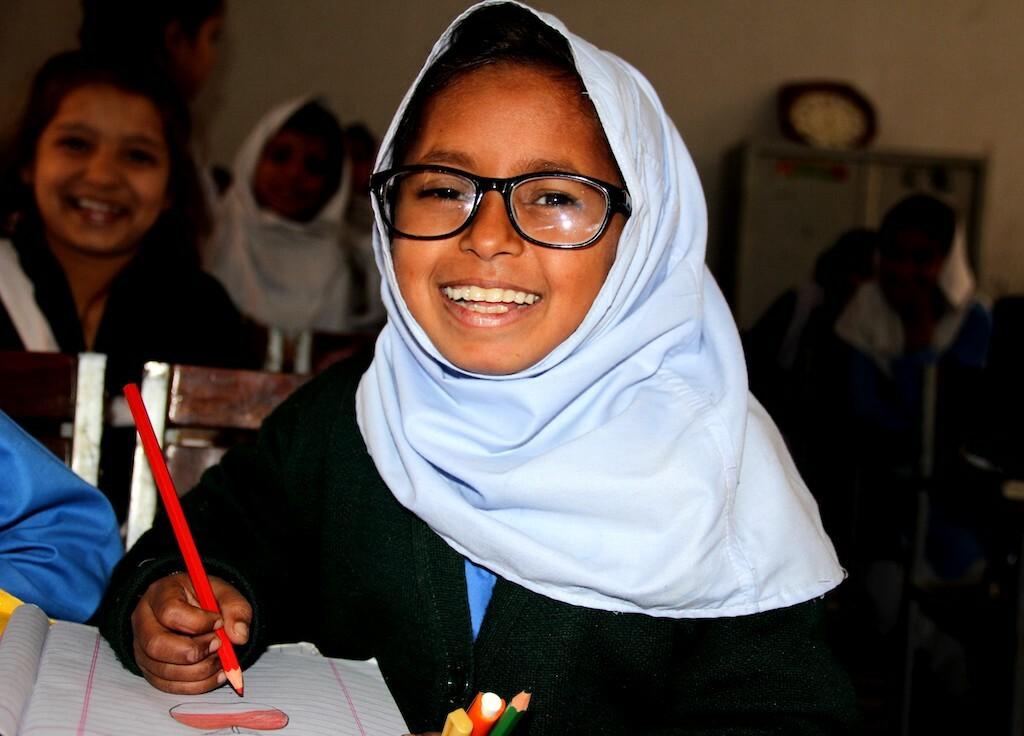

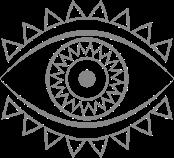

Real Stories, Real Lives





















































One
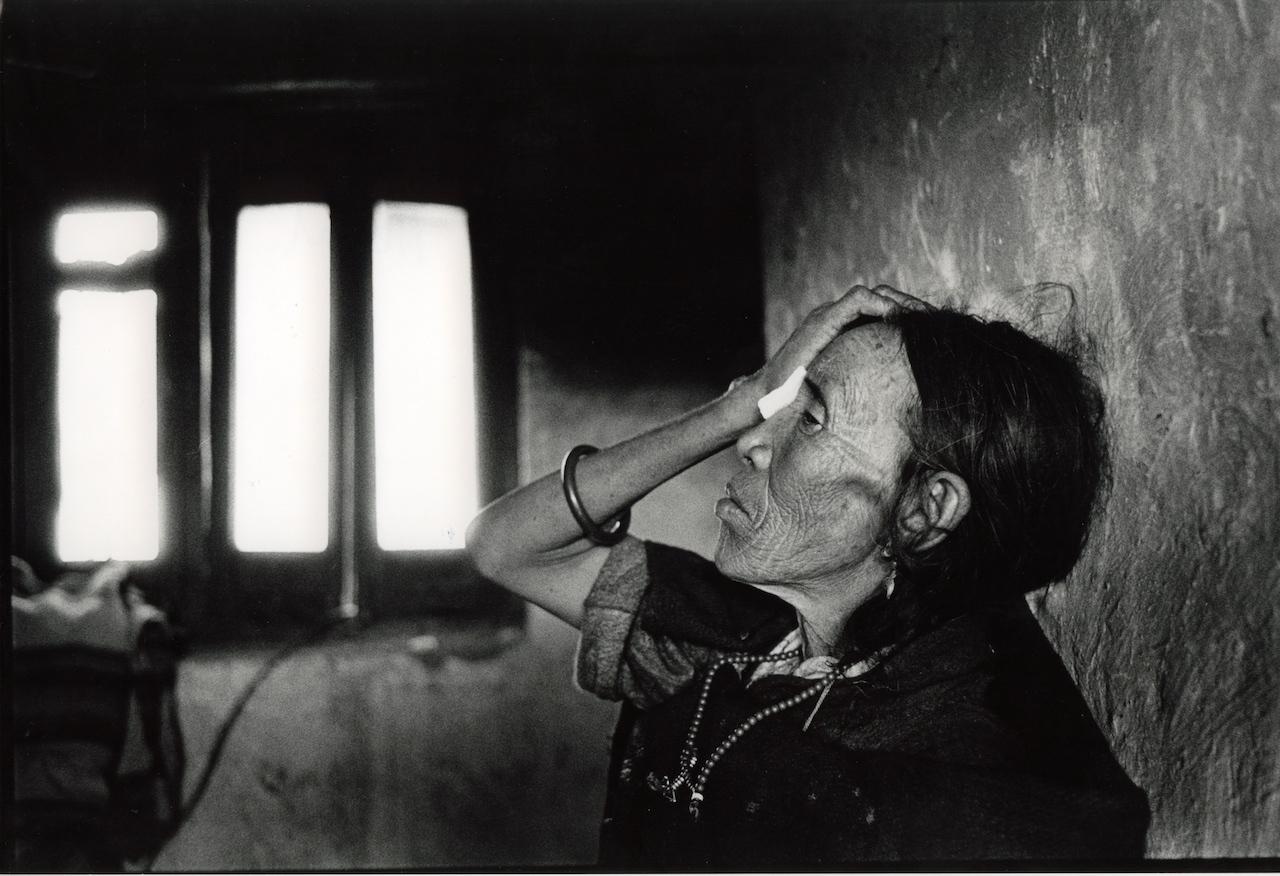
It
This

Tara Devi Adhikari,70,had a hard life After her husband passed away many yearsago,Tara was forced to juggle work and taking care of her daughter,Santoshi Adhikari,28.
Santoshi has Down syndrome and depends on her mother for almost everything She never had the opportunity to go to school or work.
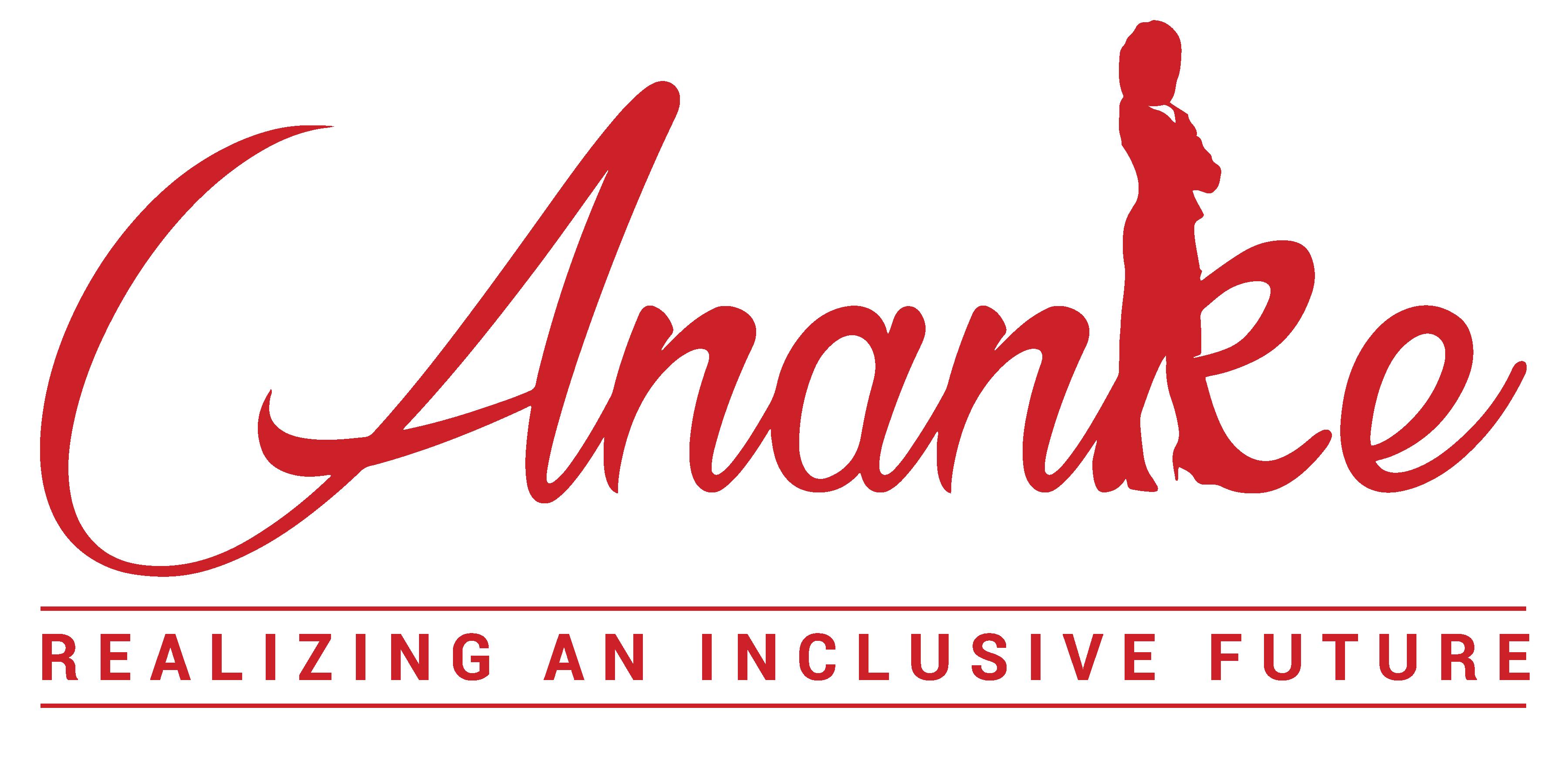
?If anything happens to me,who will look after my daughter?? A couple of years ago,another blow struck this already fragile household when Tara started to go blind.

W ith no one to look after her daughter,Santoshi accompanied Tara to the eye camp at the Pullahari M onastery
At the camp,the medical team made a surprising discovery,Santoshi also had bilateral cataract
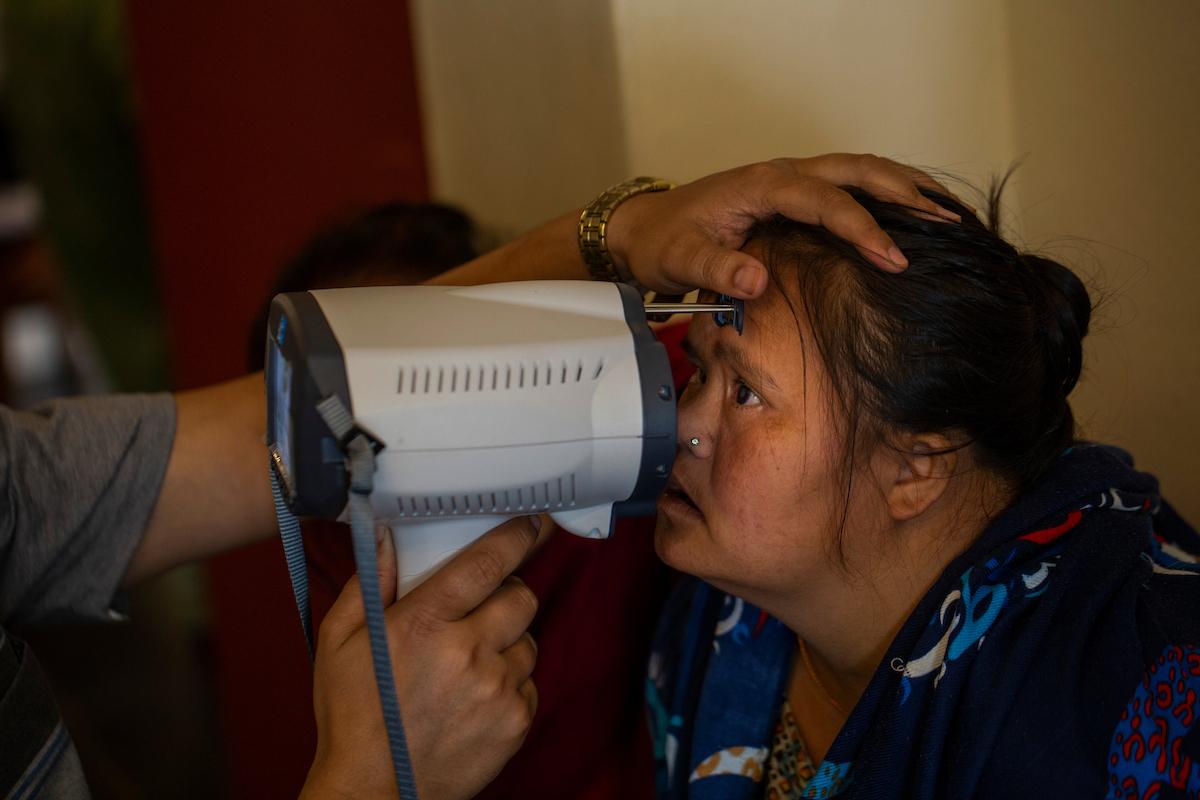
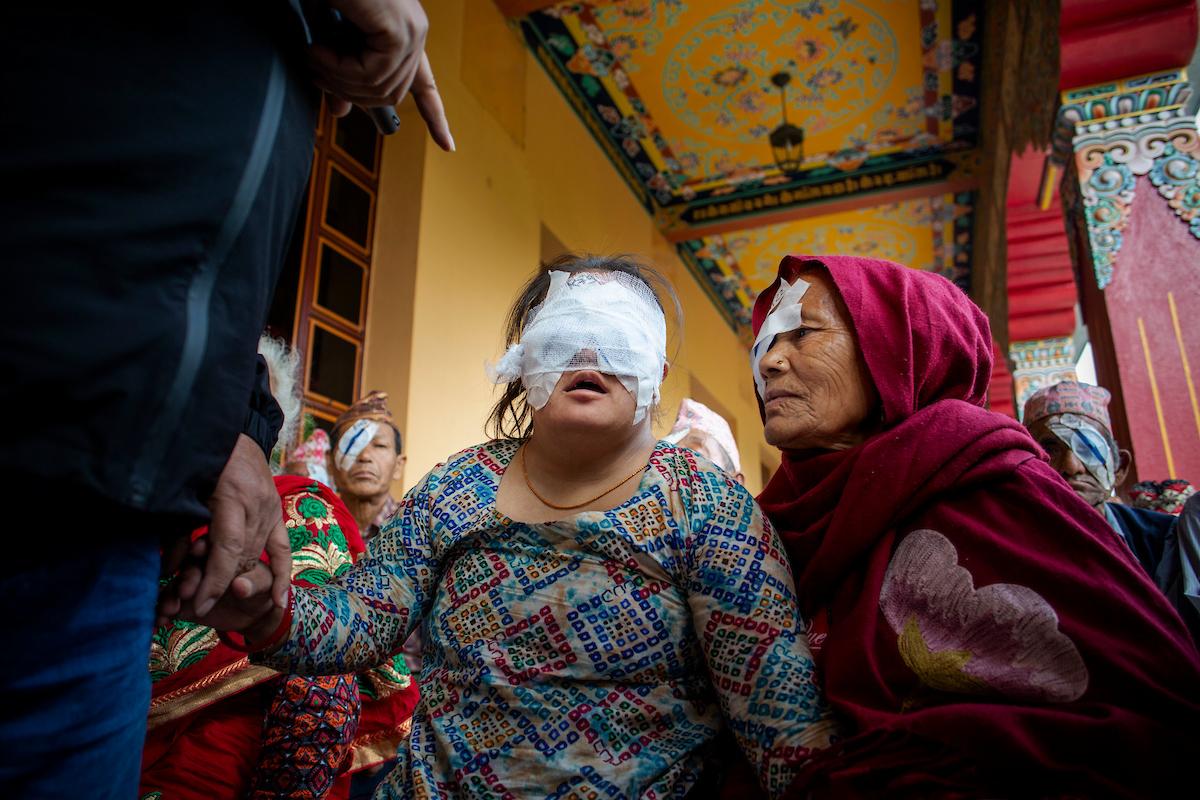
Unaware of the blinding condition, Tara didn? t realise that Santoshi?s poor vision contributed to Santoshi?s inhibition and reluctance to do things by herself.


?I can? t give much to her,but I am glad this will let Santoshi have a better life.? Dr Sanduk Ruit operated on both patients in less than 30 minutes

The next morning,Santoshi?s patches were removed,and everyone noticed a new energy about her.
She couldn? t stop smiling and thanking Dr Ruit.
Tara washappily surprised to see her daughter interacting with other people,but above all,she was pleased that Santoshi has now gained confidence,lessen her dependencies and have a better life.
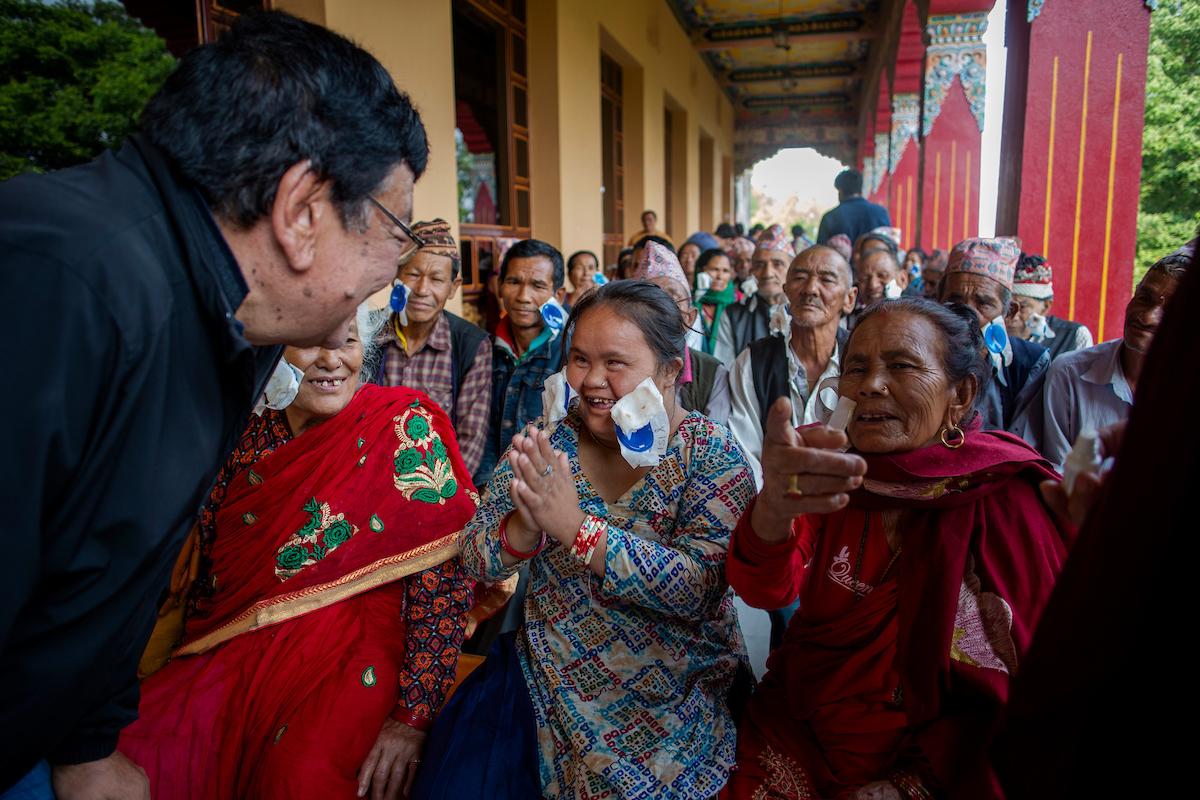

"I wish I could play like other kids." These are the words M baruku Gode whispers to his mother asthe voices of kids playing football in their neighbourhood reaches them.
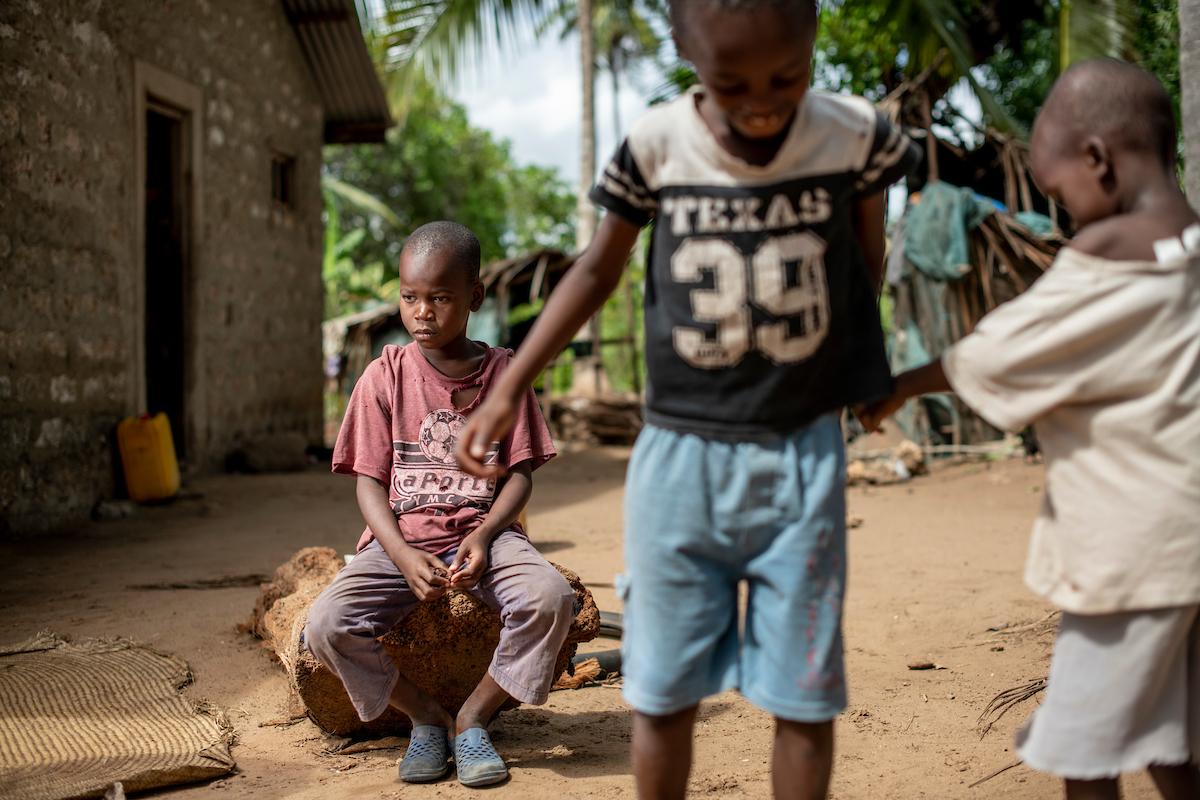
M baruku is 10 years old and would have been in classthree were it not for his poor eyesight,which meant he had to repeat class one twice.
M baruku?spartial blindness is what forced him to stay at home,hanging out under the shade of a tree and under the watchful eye of his mother M baruku's favourite sport is football. But because of his poor vision,he would run in the wrong direction on the pitch,and often get hit on the head by the ball.This meant his friends rarely let him join any matches.M baruku tried so hard to fit
in with his friends and play like other children.The little boy started having issueswith his vision when he started nursery school.From a tender age,he would squint his eyes when trying to locate anything within the house

?At first I thought his eyes were still developing and it wasn? t of much concern to me,?M baruku?s mother, M wajungu,admits.In school,the teacherswould complain and even comment on the report card that he wasan arrogant student They said that he would never heed their instructions or read anything on the blackboard M wajungu used to wonder what could have prompted such a comment from the teachers. ?I couldn? t understand because I never saw my son in that light.

M baruku has alwaysbeen a disciplined and playful boy despite him squinting a lot ?M baruku?s mother opted to let him go to school only twice a week so that he wouldn? t feel left out.?He only goes there to interact with other kids,he barely attends classes Letting him stay fully at home would mean that his future would be at stake,?she explains.?M y greatest fear has alwaysbeen that M baruku would go blind one day.He
would alwayscomplain of having cloudy vision

?I didn? t think he would ever be (like other children) In his earlier stages of life,he was helpless Seeing him still in the same state isn't encouraging at all,?she adds.W ith such damning comments from the teachers, M wajungu opted to visit an ophthalmologist hoping that her son would get help M other and son tried
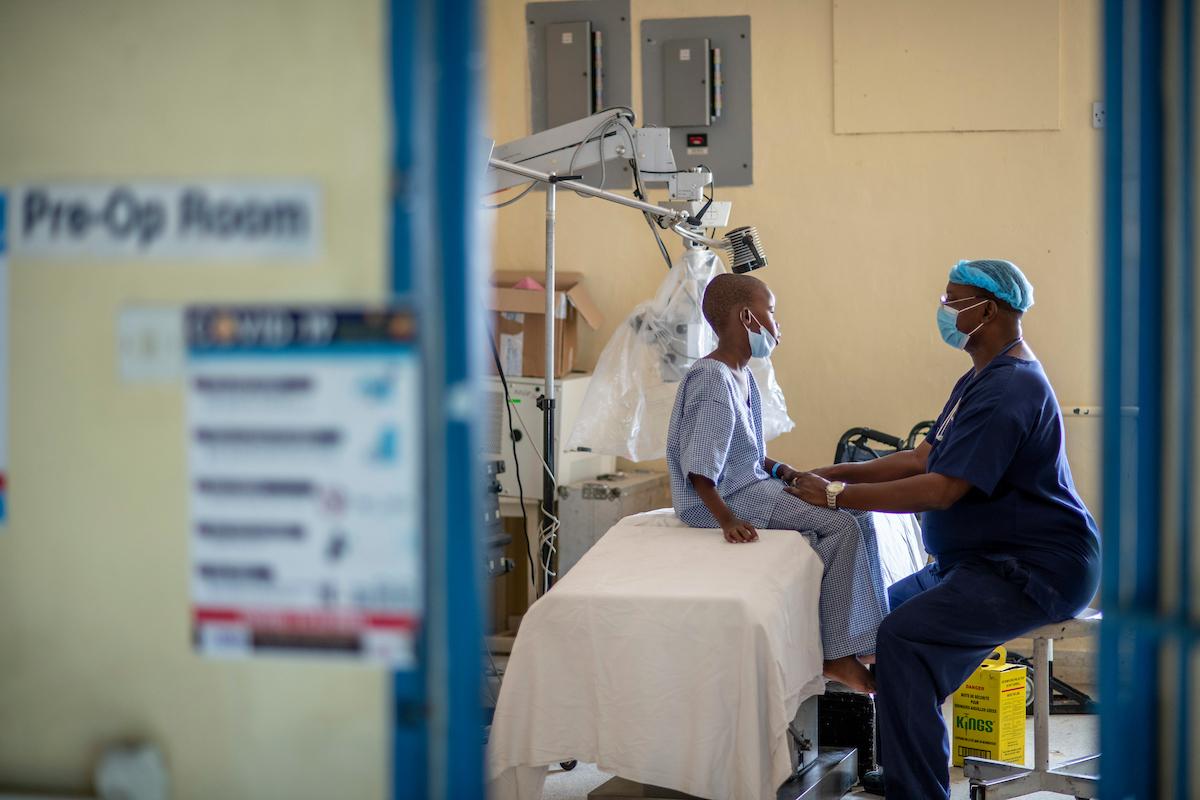
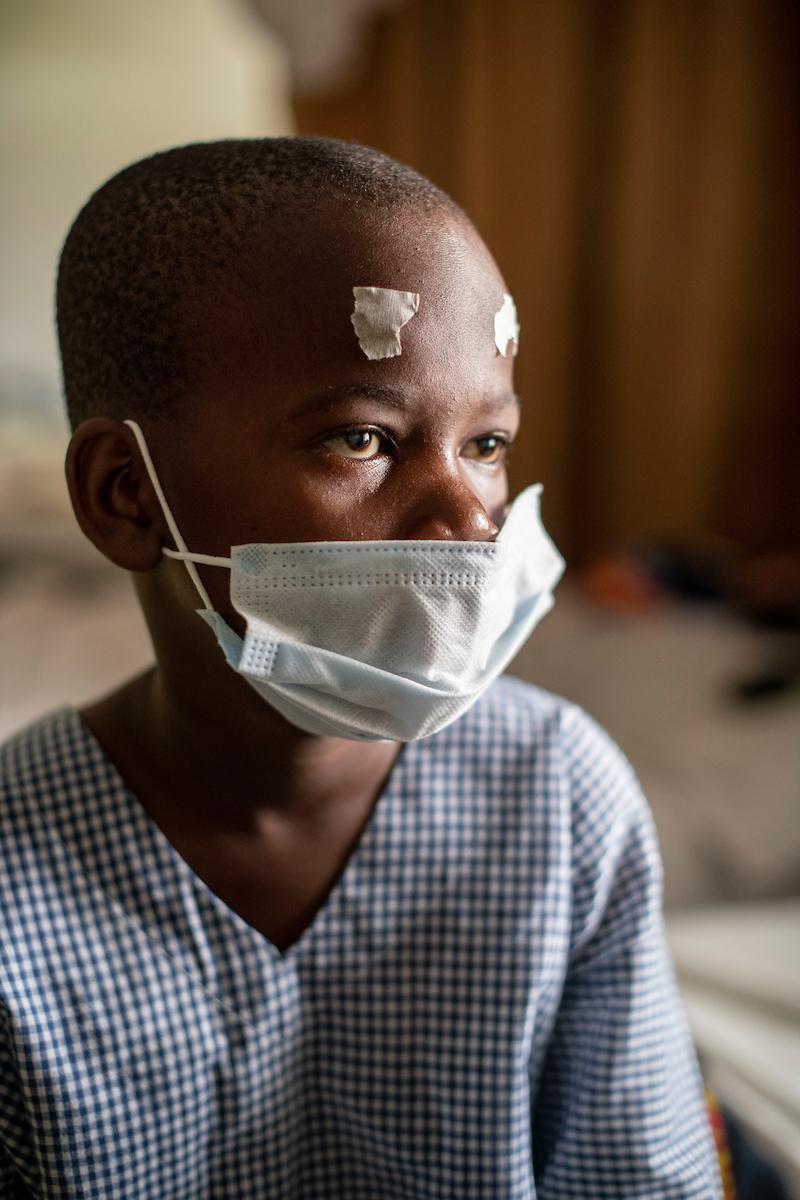
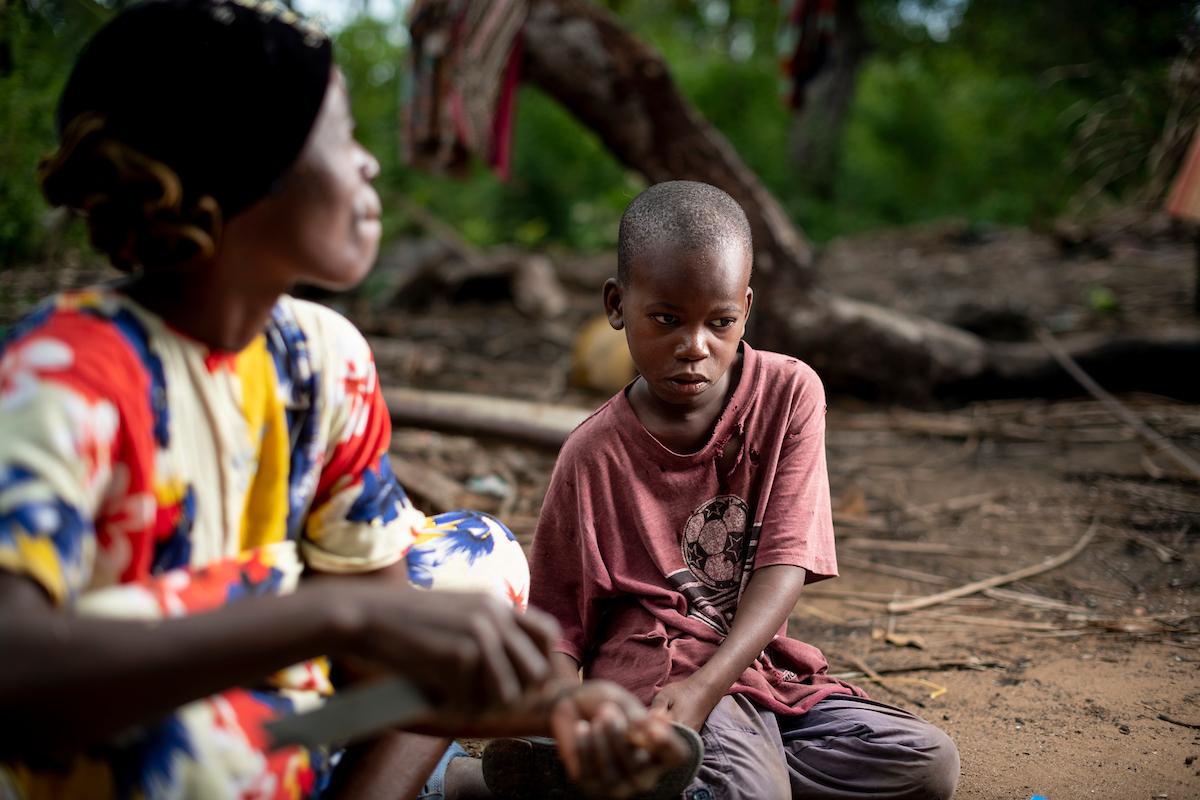

to access eye care services at a private facility.After careful examination,it was made known to them that M baruku had bilateral cataract.The hospital demanded 40,000 Kenyan shillings ($AU500) for M baruku to get surgery. Being a single mother of two, M wajungu couldn? t raise the cash,let alone cover the initial cost of the consultation Despite not having the required amount,M wajungu never gave up on her quest to get help for her son M wajungu made several attempts to have the hospital reduce the cost of the surgery She hoped that they would give her glassesor even eye drops to provide some assistance,but they insisted that surgery had to done.Each time,she




returned home hoping for a miracle to improve her son?s situation. During thistime,a Community Health Volunteer informed M wajungu that The Fred Hollows Foundation would come to her aid. ?At first,I shunned the idea because I thought she was joking I only got to believe it when I met you guys (The Foundation),"she says.?I am glad of the efforts The Fred Hollows Foundation took just to ensure that M baruku got his eyesight restored Throughout the hospital process,I could see the dedication they had in assisting me M baruku had a successful surgery,and his vision is restored.You could tell that I had been favoured by God M y son, M baruku is all grown up,yet he still

My greatest fear hasalwaysbeen that Mbaruku would goblind one day
needed my full attention like a baby.I couldn? t attend to my other duties with peace of mind asI had to take care of him,?she says.?W ith his vision restored,I am more than happy If I was in a position to gift The Fred Hollows Foundation,I would delightedly do that M y son hasa future courtesy of them.I am confident that he can get to school and build a future for himself I am now relieved.I never knew that such

people do exist,but I have seen their faithfulness in serving others,?she says,with tears in her eyes
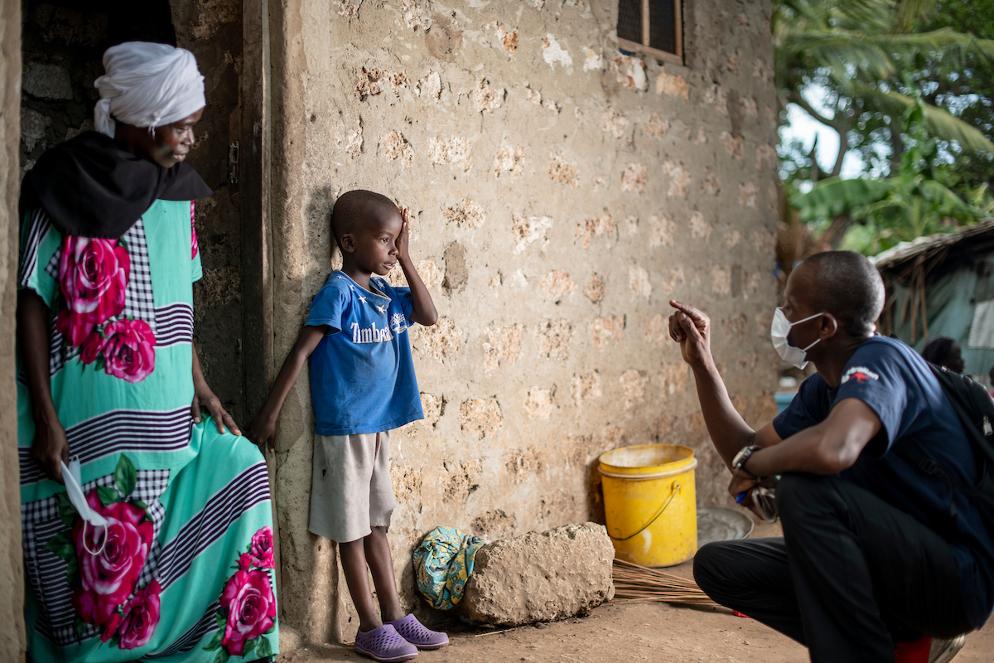
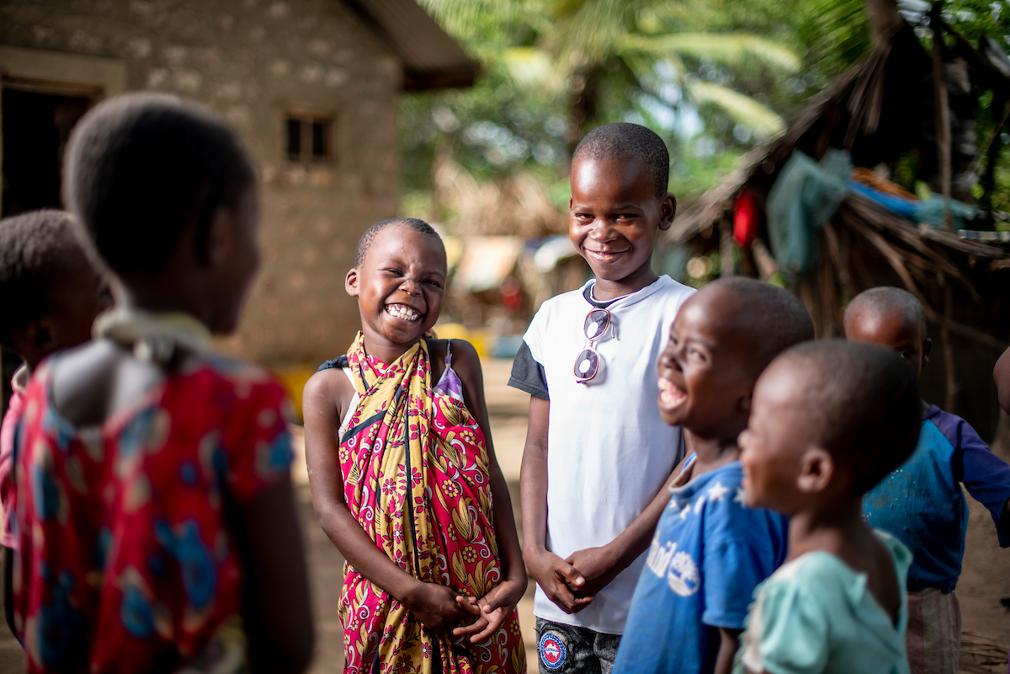
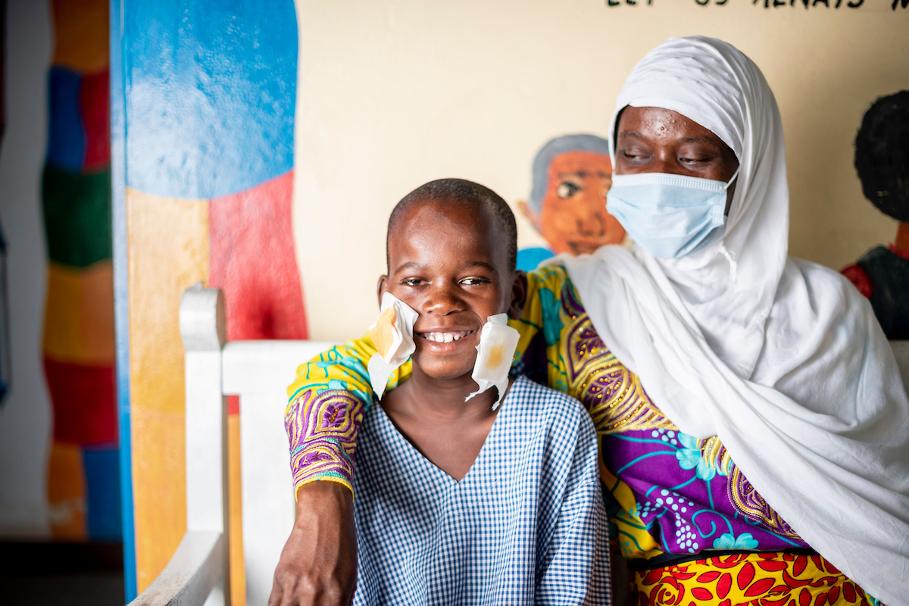
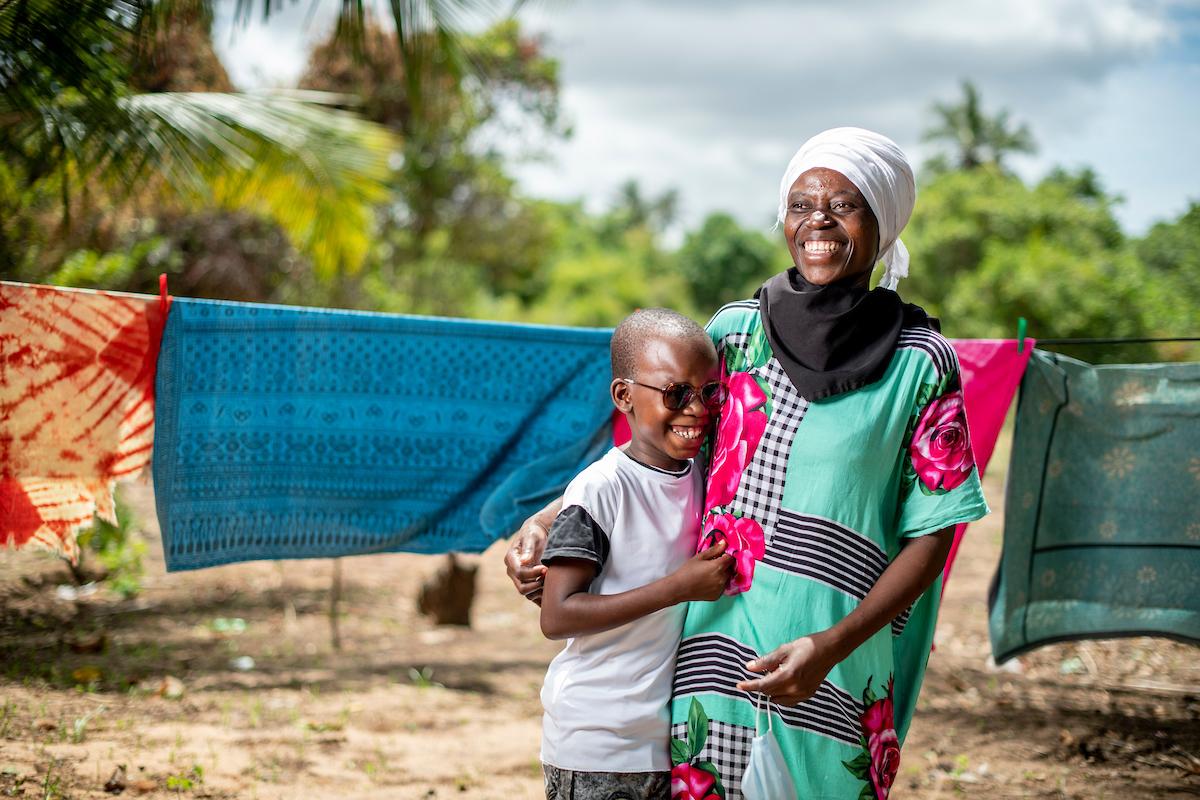

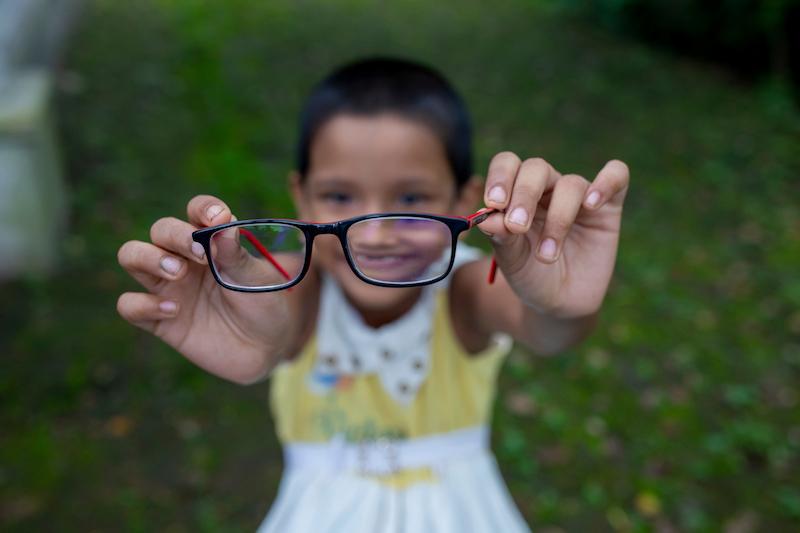


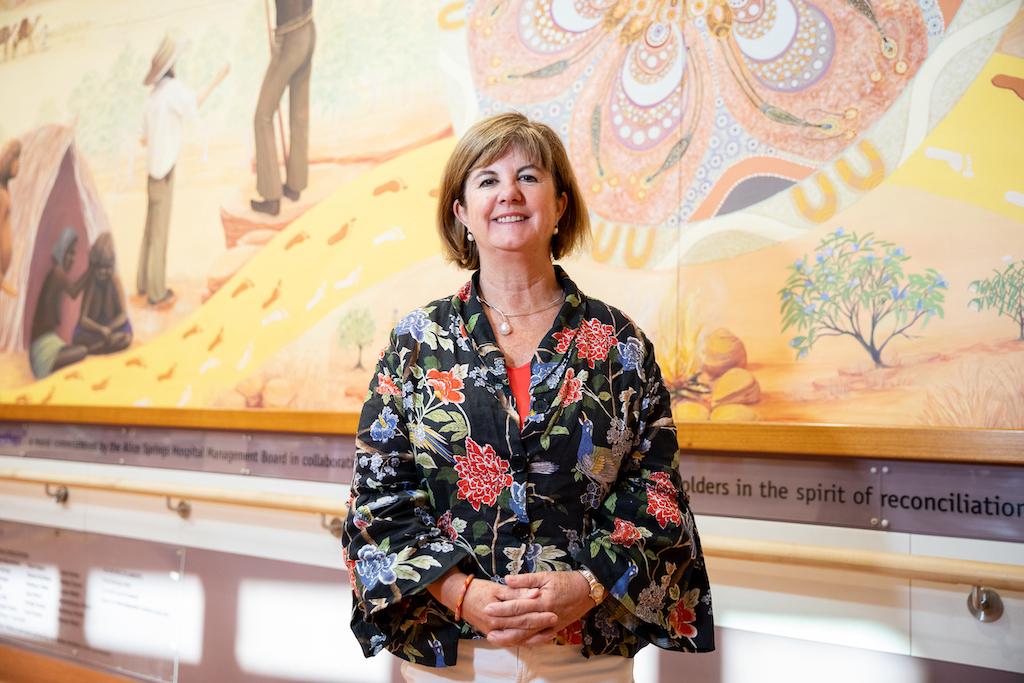
Tel l us about your sel f an d how di d your l ove for i n ter n ati on al devel opm en t an d com m un i ty ser vi ce begi n ? W hat w as your i n spi r ati on ?
W ell,I have to tell you that the inspiration was my family M y parentsare my inspiration because they were very passionate about social justice and empathy.I was born into a family where it was central to remember that every life was and is of equal value Thisis what they taught me and they treated everyone, regardlessof their social status,with respect.
I think it is also a natural extension then to contemplate that if every life is of equal value, why do we have so many people,800 million people for example,going to bed hungry.You know,some of the injustices in the world,it just does not seem right And so it was with that passion that really drove me to be involved in community work.I was fortunate to have lived in Japan during my school and university days. I was going to become a doctor and even got accepted Going to Japan,learning the language and working internationally really gave me a sense of what I really wanted to do, which wasglobal diplomacy,international trade or development
And then I embarked on studying economics, law aswell as languages and became part of our diplomatic service for many years So you can see from my early childhood,I've always been interested in how to make the world a better place.I've had the opportunity to do what I love through my family,career that I've had in the government,and now also through my involvement with community projectsand great organizations like The Fred Hollows Foundation.To do just a little bit to help make the world better.
K eepi n g i n m i n d your i m m en se body of w or k , how i m por tan t i s the con n ecti on betw een publ i c pol i cy,di pl om acy an d i n ter n ati on al devel opm en t an d w hy?


I think it's incredibly connected because we're all connected as global citizens.The changes that we've had,including things like technology and travel or even disease burden meansthat all of us are on this one planet

I'vehad the opportunity todo what I lovethrough my family,career that I'vehad in the government,and now alsothrough my involvement with community projects and great organizationslike TheFred Hollows Foundation.Todo just alittlebit tohelp maketheworld better.
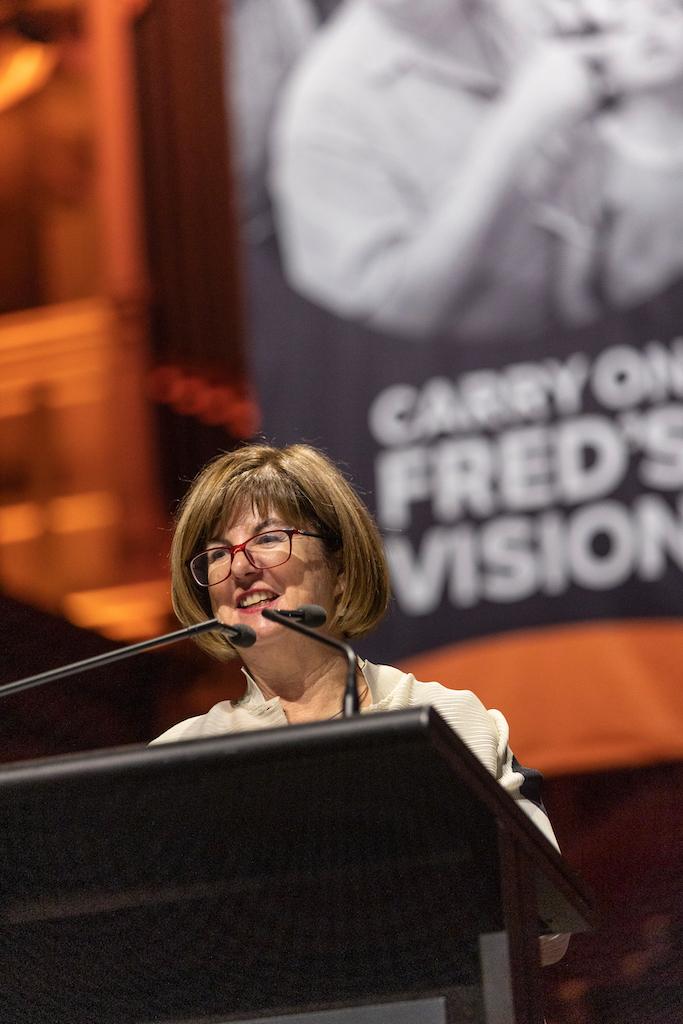
together So the links between diplomacy and international development,I believe,are very strong I think now when we are coming out of COVID,it'sparticularly critical that we think about where we are as communities.W here we are as a global society,especially when challengesare on the rise Food security has worsened during COVID.The burden of gender has really exacerbated during the pandemic.I feel that we're almost at a tilting point in terms of human suffering But over the next 12 to 24 months,we've really got an opportunity to try and claw back some of the gains that we had sadly lost during COVID. Hopefully,we continue trying to get towards sustainable development goals otherwise we will start to spiral downwards and further decrease our global potential.
You have quoted Fr ed H ol l ow s fam ous com m en t i n an i n ter vi ew , ?W edi scover our ow n hum an i ty w hen w e hel p other s??how i n your opi n i on has the Foun dati on en abl ed an d i n cor por ated thi s beauti ful i deal i n i ts w or k an d vi si on ?
It's not just the work that the Fred Hollows Foundation does,it is also the philosophy that's so special.All of us on the board,at different levels,are inspired by the many wonderful quotations from Professor Hollows who himself was a great humanitarian.
W orking with the Foundation on and off for over 30 years and then joining the board about two yearsago,you get to witness a legacy that is monumental.You get to experience how the entire organization is guided by Fred.In board meetings,especially when we are looking for solutions,we often say what would Fred do There is another quotation where he said ?teach the teachersfirst and they teach others.?
I think it?s really influential in shaping where we work and how we work Our priority at the Foundation is strengthening health systems and we're using that philosophy,for example,of working with communities and the teachersto really drive the public health messages on the ground


It is really important to understand that if even good work is being done on the fly,it doesn't

You get to experiencehow theentire organization is guided by Fred. Thereisanother quotation where hesaid ?teach theteachers first and they teach others.?
strengthen the community W e want to work with communities sustainably which essentially means that when Fred Hollows people leave,the communities are empowered to continue and then teach other communities It's very much about driving change in terms of building health systems with the communities themselves generating and improving their own health outcomes.
W hat i s your vi si on for the Fr ed H ol l ow s Foun dati on ?
This may sound a bit predictable,but I do think we have this strong vision about a world in which no one is needlessly blind And it is my vision,absolutely! If you can make a difference,you should step up and try and make the difference

W e have people who are blind or vision impaired and just through a small effort,a very small financial amount,these individuals can lead a more productive life.W hile the number of people going blind is decreasing, the burden of vision impairment is increasing globally and we are still so far behind this vision of realizing a world where no one is needlessly blind and to achieve this,we need to keep on at it? working for this vision continuously
W hat i n your opi n i on ar e som e of the m ost si gn i fi can t chal l en ges i n the i n ter n ati on al devel opm en t sector an d by exten si on i n the fi el d of eye heal th?

OK,that's a huge question you know here we are in late 2022 and after all my reading and assessment of the UN's work and the W orld Health Organization.W e've really got a major setback from COVID, disrupting people?s

lives and livelihoods Progress was slow even before we had COVID;but the new reality that the UN estimates is presently 120 million more people have been pushed back into poverty. There are those who might say these are just statistics But,when you consider even one life being impacted by unnecessary poverty and then think of the 120
million people suffering,it'sa terrible thing There'slots and lots of demand on International Development But I do think eyes sight is really important and we've got lots of research from The Lancet,the UN,W HO showing that it's a really cost effective means of unlocking human potential
So if someone from a marginalized community becomesblind through an infectious disease or other things;and you help that person through for instance a small donation to help with the surgery;you are actually giving that person,man or woman or child the potential to be more productive in the community This is how you enable them to move out of the poverty cycle

Based on all the work and research,we know for a fact that eye health is very cost effective At the Foundation,our commitment is to strive and make sure no one is needlessly blind or vision impaired.As long as we keep on fund raising,getting good sponsorships,support and getting the word out,we can achieve this
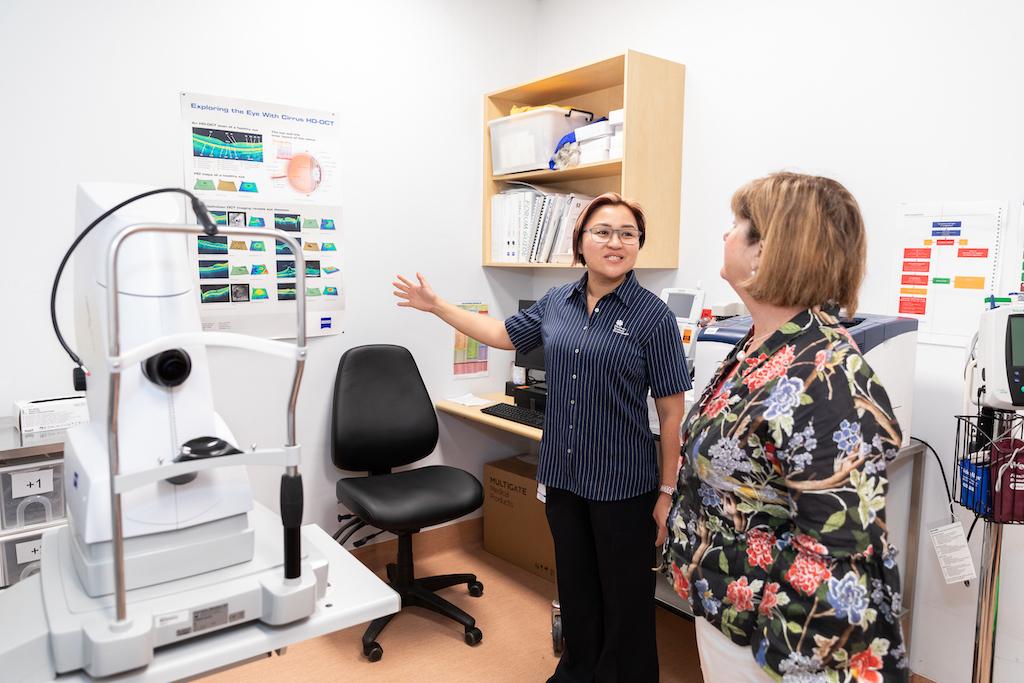

vision.
The Foundation is working with governments and international funders Eye health needsa lot of action at multiple levels and that is exactly where the Foundation is striving to scale W e are already active in over 30 countries and do a lot of international public health messaging for example through The Lancet.The other thing I really want to say is the sustainable development approach to the work we're doing is critical For the Foundation, sustainable development principles in everything we do is really important.W e don't just go in and fix eyes and then leave.It's about making sure that the public health messages are there,the community is trained and the community is then able to also train others so that there's a long lasting empowered approach to the eye health.
The Foun dati on has pl ayed a pi votal r ol e i n r ai si n g aw ar en ess about gen der i n equal i ty that exi sts as far as avoi dabl e bl i n dn ess i s con cer n ed. W e w oul d l ove to k n ow how i t i s affecti n g w om en an d gi r l s especi al l y acr oss the Gl obal South.
One of my other roles is presiding over the National Foundation for Australian W omen. I'm a very proud to call myself a feminist I believe men and women should be equal And when we come to eye health,across every region in the world,women are more likely to be blind than men.About 90 percent of those people who are blind are women and they are living in poverty They've got nearly every form of blindness and vision challenges.Vision impaired women are not equal to men.They perform much more Now 55 percent of the world's blind and vision impaired are females And that's true in every region,in the South but also in developed countries.W omen are more likely to be vision impaired and there are a lot of reasons such as biology You know, women do live longer so they're more likely to get some of the longer term eye ailments. Eye health diseases like cataract can be rectified W e have to work with young and old women and of course men too But you know, the cost is often a deterrent for women to get



About
of
are
the help they need The treatments particularly in many of the Global South countriesare prioritized for the care and upkeep of the man's health because he is traditionally considered the bread winner or maintains a high status There are cultural factorssuch as women usually not having a say in


decision making or are not allowed to travel W ith the assumption of care work being a woman?s prerogative,it is always the woman ? the mother,sister,wife etc.?who are putting others in front of them so they end up getting less good outcomes for themselves If you look at trachoma,which is such a terrible disease.Again,it impactswomen more and because they look after their kids,they pass on the disease to their children and vice versa Thisis yet another vicious cycle we are trying to break.
W e've got all these factors working against women and gender equality Our stream of work at the Fred Hollows Foundation is naturally one I'm very proud of.It is one I'm really pushing and trying to make sure that we build a world where no one is blind or vision impaired needlessly and that strategy includes when men and women have equal access Thr ough your ow n w or k at the Foun dati on , w hat k i n d of gen der di spar i ti es have you

I have had the opportunity to work in many countries across the world.I have been in places like Zambia,Zimbabwe,M alawi and you know,it wasshocking to see some of the circumstances W omen are many a times relegated to the back of cabins or tents because of their eye problems.I've seen firsthand where the mother is vision impaired and children miss out on going to school Sometimes the mother does not have the strength to organize or the courage and confidence to make the decision.So you get another cycle of poverty starting because less educated children will be more likely unable to have productive working lives and break out of poverty.
At the Foundation,we have ambassadors and champions from within the community W hen you have women and girls representing you as champions of the cause,they are also championing gender equality.This is really exciting and positive This is how the Foundation puts gender and equity at the heart of their programs focusing public health.

W e hope that all those who need eye care can and should receive it So we've got to make sure that we're equitable in terms of trying to get access for women and girls as well as men.


W hat ar e som e of the m ost cr uci al steps that n eed to be tak en to achi eve gen der equi ty w hen i t com es to eye car e H ow does vi si on i m pai r m en t or avoi dabl e bl i n dn ess i m pact gen der equal i ty an d equi ty?
W e go to the guiding principles of sustainable development such as SDG 5 which focuses on achieving gender equality and empowering all women and girls.W e are trying to use that as a rallying point to unlock new financing, through strong female entrepreneurs,women who really care passionately about gender I cannot reiterate it enough W e are in 2022 worse off than we were two years ago because the COVID pandemic.It'sthe additional burden on the women that's really been a long lasting At the Foundation,we are really trying to embed it in everything we do
In Pakistan and Bangladesh,we're training outreach health workers who deliver maternal and child health services Those outreach health workers may not have expertise in eye health.But they are the ones who are connecting with the communities,talking to women and girls They are the ones going to the back of the cabin or hut,and seeing the poor woman who is lying there,ostracized by her community and not able to get an education Community workers are the catalyst;ensuring that the ecosystem of care reachesin places where it doesn? t otherwise. And this is one of the many way we are, directly and indirectly,lifting women and girls and improving their health outcomes
Befor e w e en d thi s i n ter vi ew , I r eal l y w an ted to k n ow w hat w as i t l i k e to be i n the sam e r oom w i th Nel son M an del a. Coul d you tel l us about your exper i en ce

I have the great fortune of meeting him many, many timesactually but the really powerful moment I met him wasthe day he came out from prison.I wasinvited by Archbishop Tutu to have breakfast with a small group of friends, ambassadors and the M andela family
It was at Bishop Tutu?s home in Cape Town The whole world waswaiting to see what this man waslike and what he was going to say. After exchanging pleasantries,he asked mewhat it was like to be in South Africa as a young Australian diplomat.Now here is a man who hasthe world transfixed on him and he was taking kind enough to ask about my experiences It only reconfirmed my conviction of his greatness as a world leader He was a man of great humility and curiosity, attributes not many in his position possess. M any are filled with arrogance but not M andela He was always caring and thinking of others.
In the end,I would just like to conclude that it?s the humanitarian approach with which the Foundation worksthat really makes me feel honored and privileged to be the chair of this wonderful organization.
The Interview islightly edited for clarity.

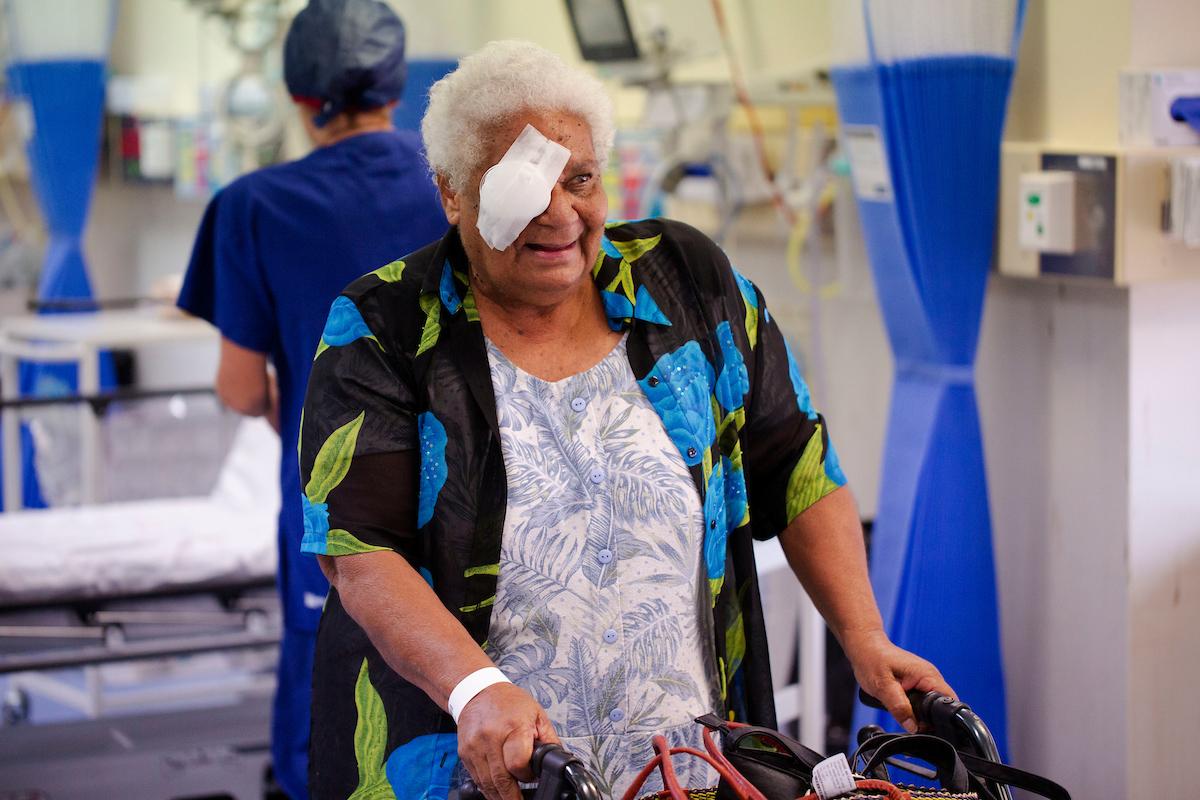
Caroline is a great grandmother and a retired director of a child care centre She?s originally from Rockhampton but has lived in Darwin for 50 years.She?s a Darumbal woman.
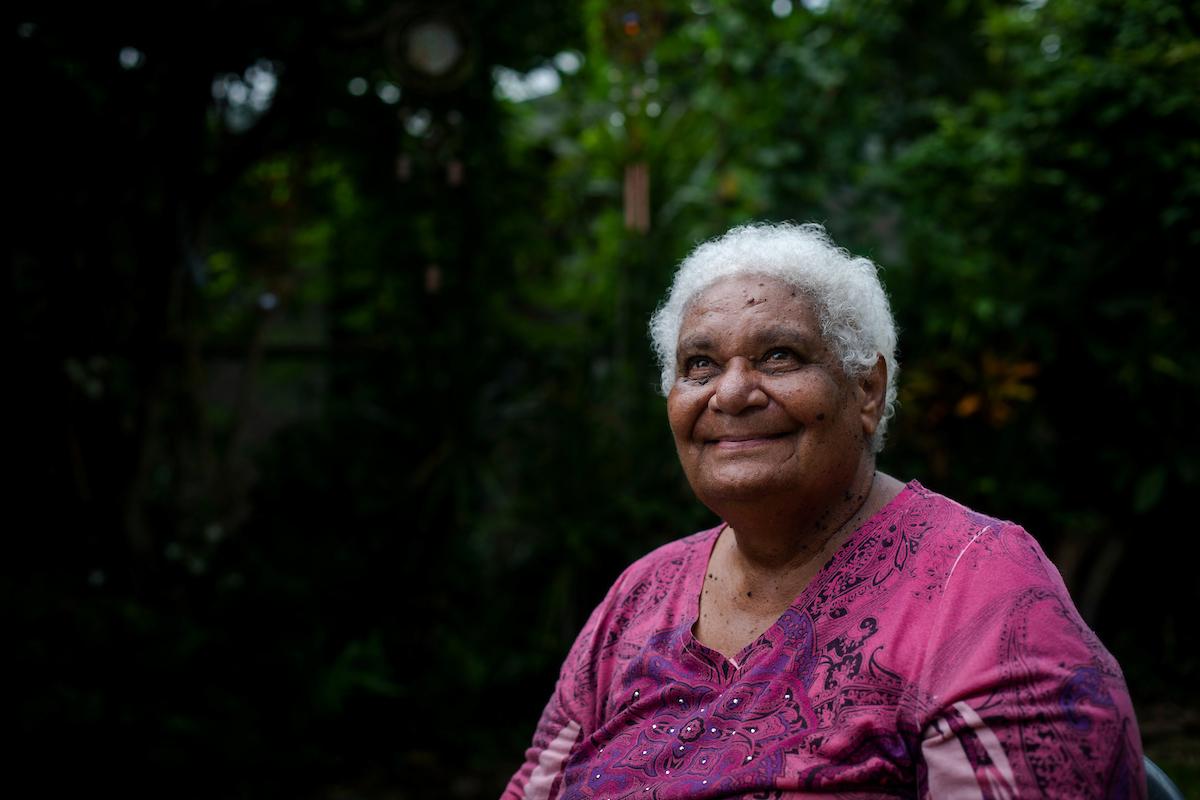
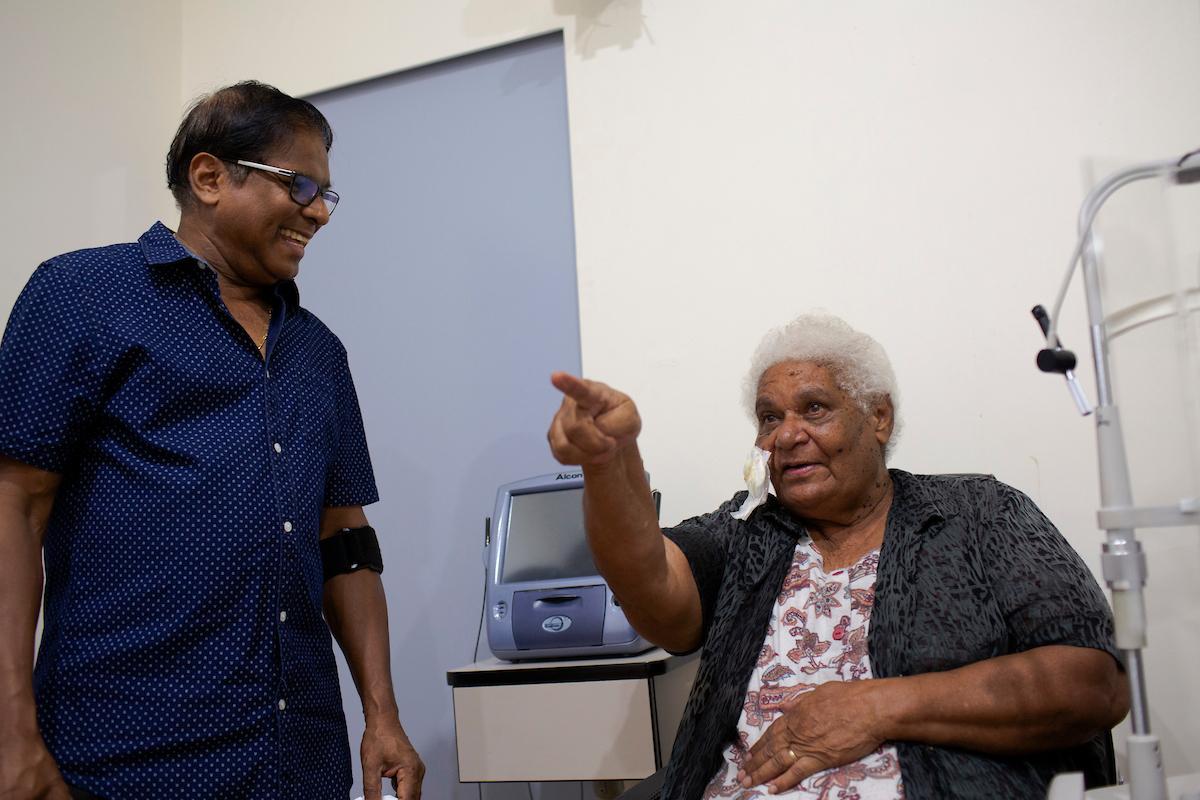
Caroline had cataract surgery on her left eye. ?M y eyes started watering when I would watch TV and tearswere running down my face.I did wear

glasses and thought they weren? t good But then,I went to the optometrist and she said you?ve got cataract and they?re getting worse and worse ?
After she had the surgery,she said:
?Straight away I could see I danced out of the theatre I was so happy I don? t have to wear glassesnow ?
W hen asked to share her experience especially for those getting the surgery, she said: ?Don? t be
nervous,it?s the best thing that ever happened to me It?sbeautiful I wasn? t nervous,I was just happy to get it done ?
Caroline had her second surgery done in the other eye a few months later


Shaun Tatipata,former manager of The Fred Hollows Foundation?s IndigenousAustralia Program The Fred Hollows Foundation,in collaboration with key stakeholders,is investing in and delivering coordinated cataract surgery pathwaysfor Aboriginal and Torres Strait Islander Peoples to restore sight ?The Fred Hollows Foundation has worked with Darwin Private Hospital and their staff to take pressure off the public health system and help Aboriginal and Torres Strait Islander Peoples access cataract surgery
Dedicated surgeries for Aboriginal and Torres Strait Islander patients on the wait list enables access cataract surgery more quickly.
Aboriginal and Torres Strait Islander Peoples are 12 times more likely to have untreated cataract than other Australians,but they are less likely to receive the necessary surgery.Too many Aboriginal and Torres Strait Islander Peoplesare stuck on waiting lists with their vision worsening,even though cataract can be fixed with a relatively simple 30 minute operation. Even before COVID,only 37per cent of the need for cataract surgery for Aboriginal and Torres Strait Islander Peoples in the Greater Darwin region was being met Because of Covid 19 people who have been on the waiting list for cataract surgery had to wait

There are not enough public eye health services and most ophthalmologists work in the private sector,but Aboriginal and Torres Strait Islander Peoples are less likely to have private health insurance.So The Fred HollowsFoundation believes private hospitals and their workforce can be part of the solution.
The Foundation supports patients through every step in their journey ? from understanding what cataract is, what the surgery involves,completing paperwork and getting to and from the hospital.The Foundation?s team makes sure that services are culturally appropriate for Aboriginal and Torres Strait Islander Peoples.
Jo Seiler General M anager Darwin Private Hospital,said,?This is our third year working with The Fred Hollows Foundation to give the gift of sight to Indigenous people.Thanks to the effortsof our dedicated ophthalmologists and anaesthetists, nursing and support staff,another 17 Indigenous Australians have been able to undergo much needed cataract surgery It?s a privilege to partner with The Fred Hollows Foundation on this incredibly important work,and I want to thank our team at Darwin Private Hospital who so willingly donated their time and expertise for this wonderful cause ?
is
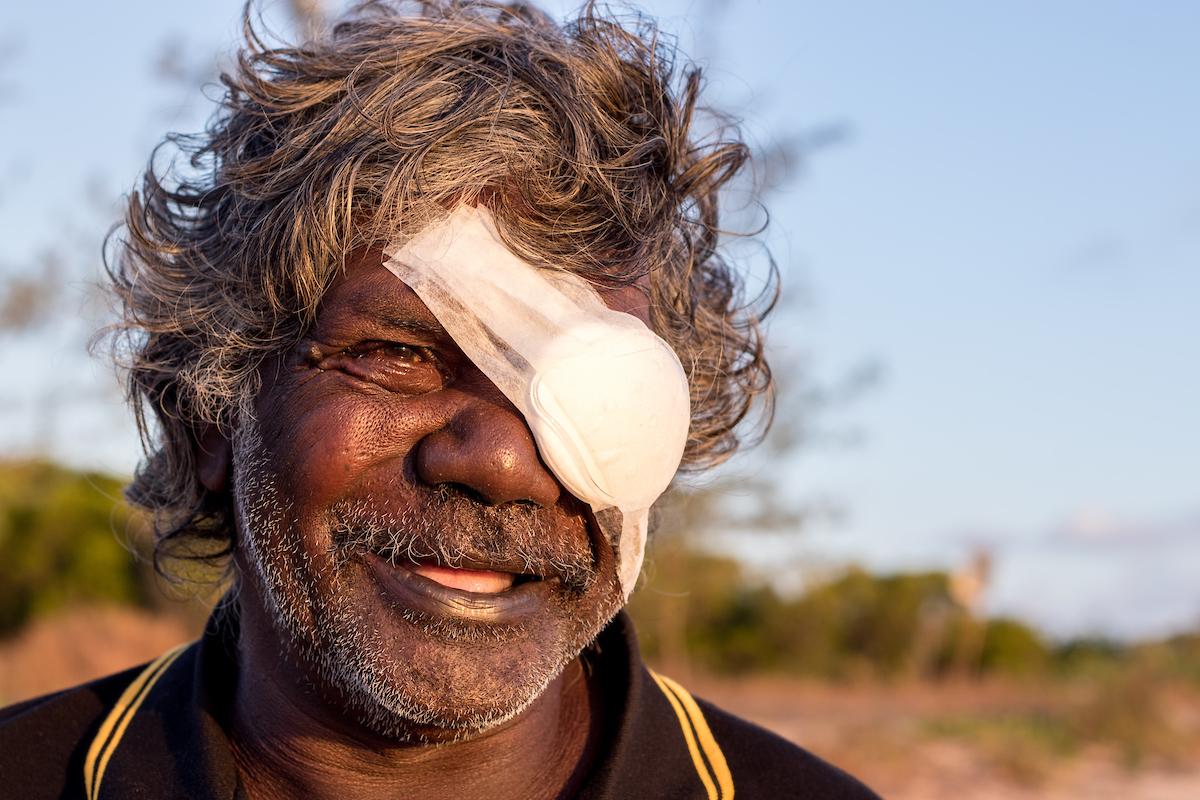
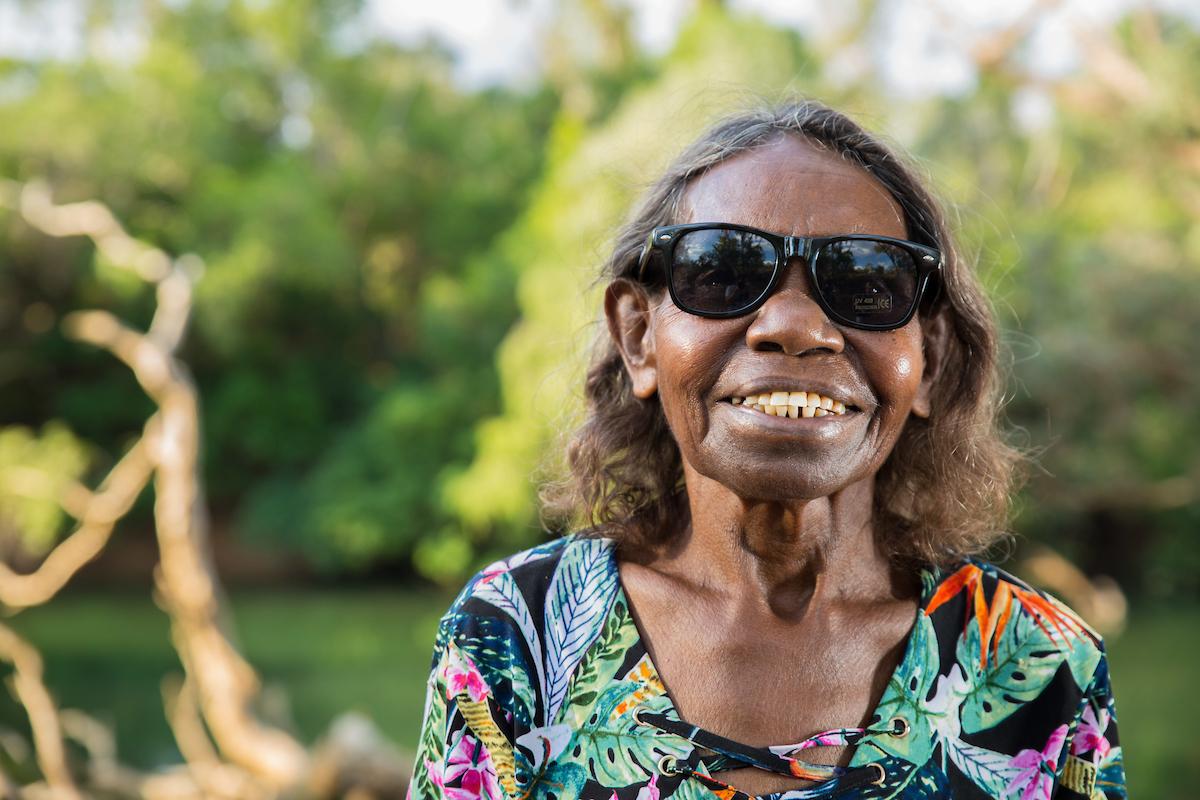
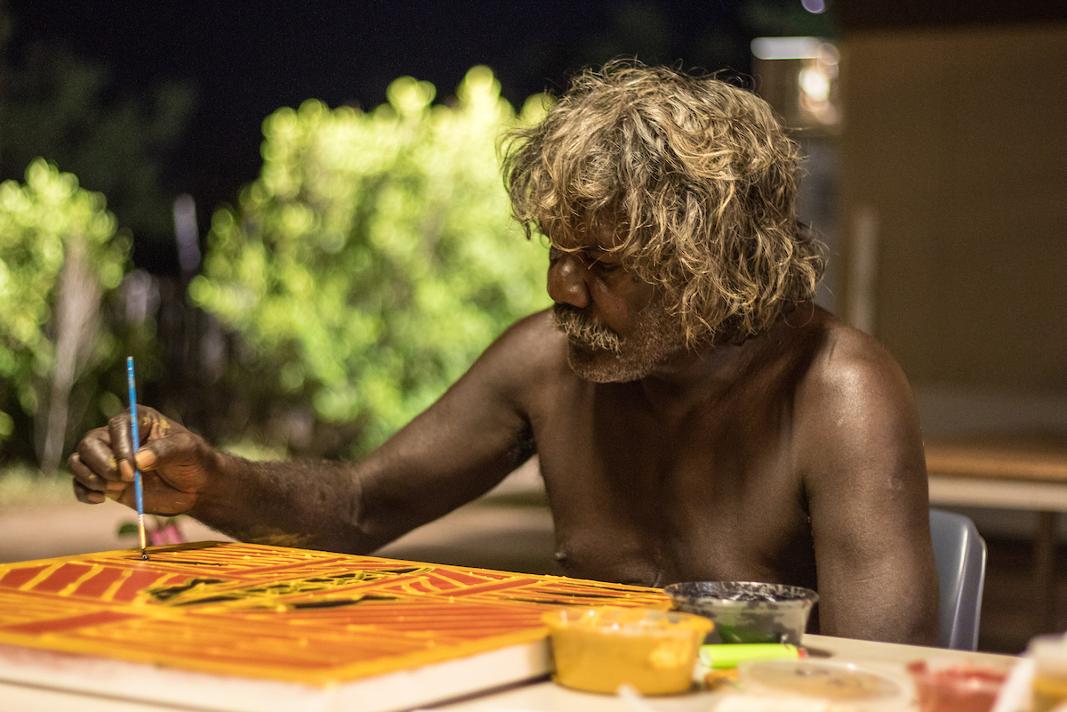
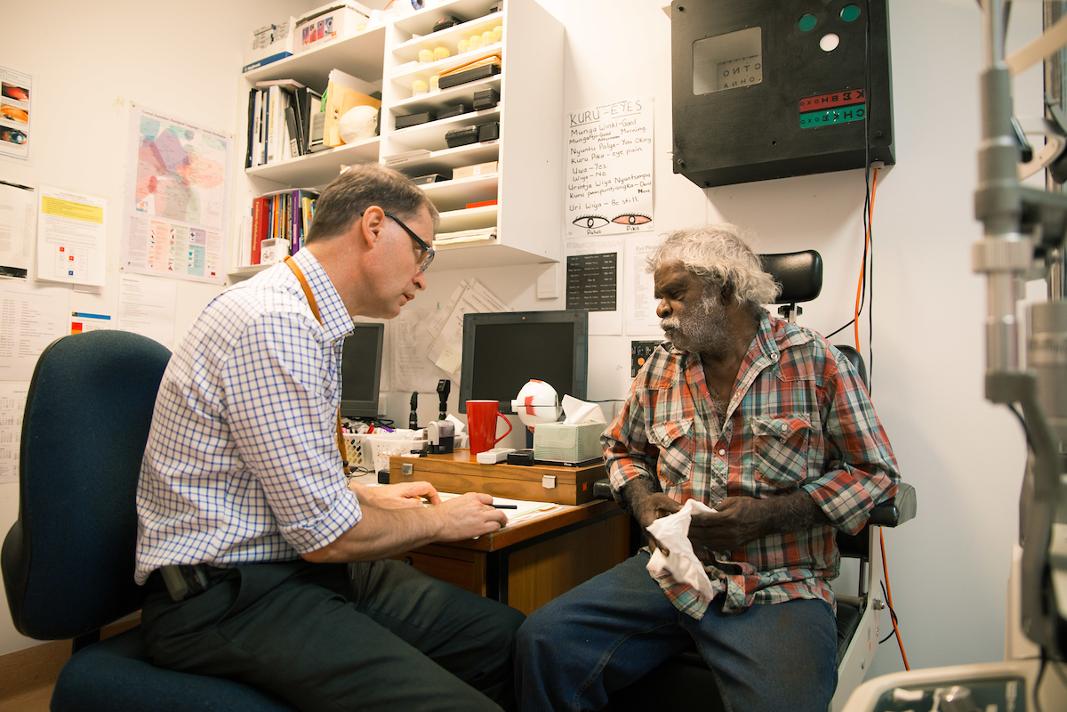
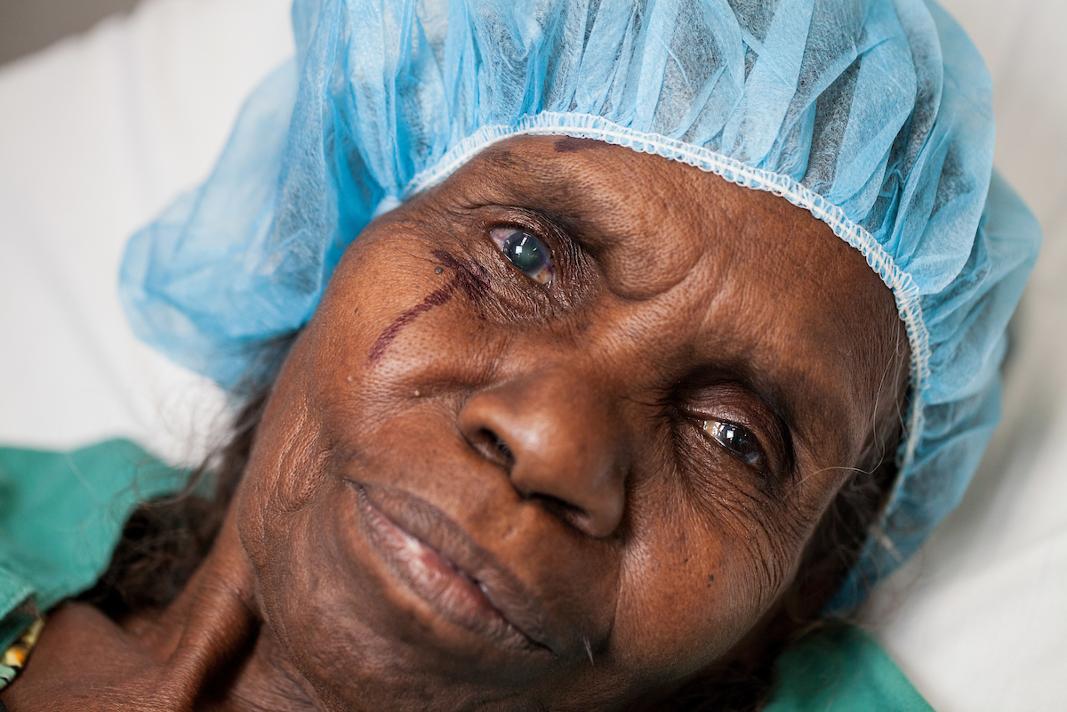





In Australia,35 percent of Aboriginal and TorresStrait Islander adults have never had an eye exam.Vision lossand impairment is one of the most common long term health conditionssuffered especially by these communities and they are three times more likely to experience eye ailments.
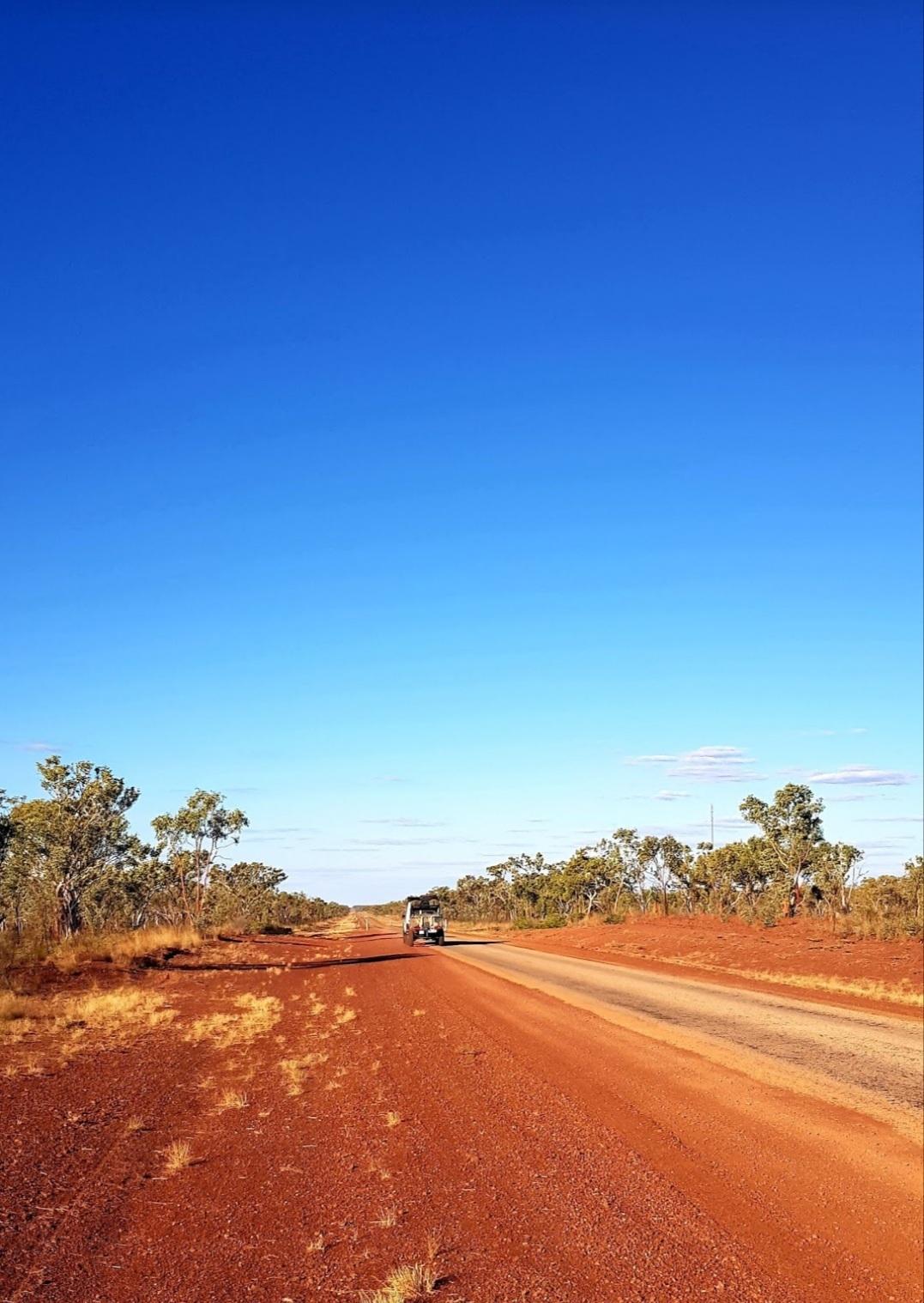

An Australian Indigenous Health Infonet report states:?Aboriginal and Torres Strait Islander children, especially those living in remote areas, often have better vision than non-Indigenouschildren.Eye and sight problemsincrease with age It is estimated that over 18,000 Aboriginal and TorresStrait Islander adults over the age of 40 are living with vision impairment or blindness.?
According to the Fred Hollows
Foundation,94percent of vision loss among the said communities is preventable

It was in the late 1960s that doctor found it inexcusable that members of vulnerable communities in Australia were living in derelict conditionsas far as eye health and general well-being was concerned.A visionary,Dr.Fred Hollows knew that empowerment and autonomy go hand in hand,embedded with the spirit of equity and action. ?Living on a very remote land where it

takes us nine hoursto reach Darwin in addition to driving off the main road just to reach our cattle station in seven hours;it is a huge challenge to get medical attention So getting to a medical facility was always an enormous impediment,?revealsRikki Dank,aGudanji/W akaja woman from Borroloola,which is a remote community in the Northern Territory Australia
Reminiscing about the past,Rikki says: ?Our relationship with Professor Fred
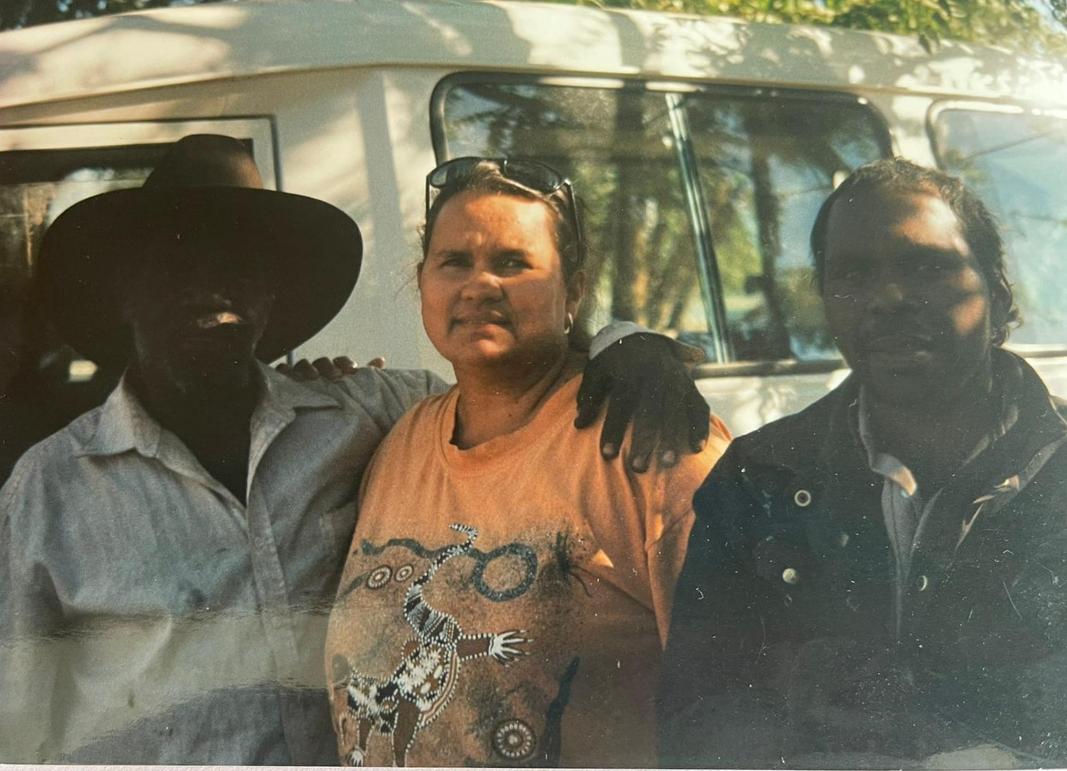
Hollows began years ago with my grandfather W ord got out that there was a doctor who wanted to come out and give an eye health check up This was something unique because there were not many doctor who would either go or were available to actually pay health related visits.?

To give some perspective,the aboriginal people have been at the receiving end of gruesome hostilities from social exclusion to unaccountable cases of extreme violence (tr igger war ning) torture,murder and rape, which started 200 years ago and ended only recently ?roughly around 80 years ago.It was only natural for First Nation people to be wary and have a high level of mistrust (tr igger war ning)
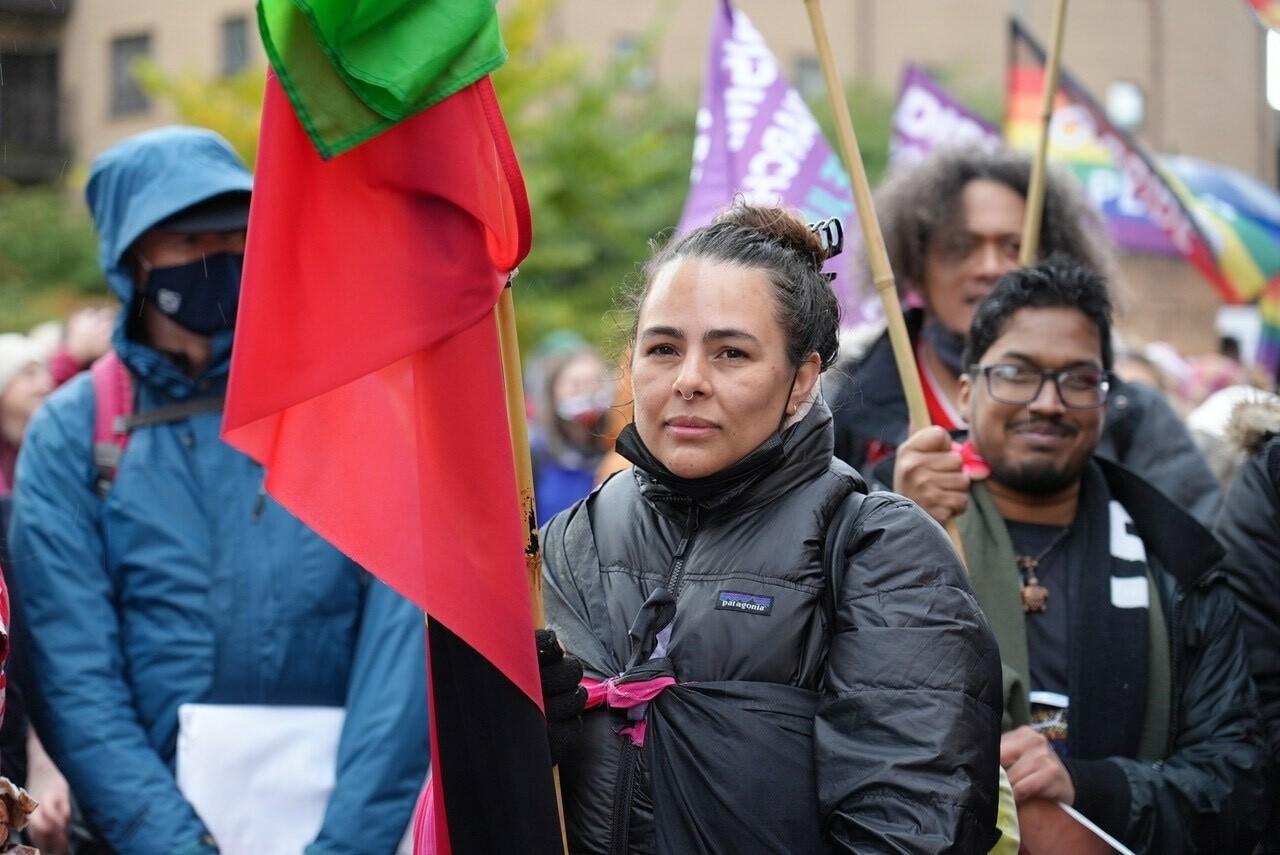
?M y grandad who passed away in 2020, was made to watch his mother being gang raped when he waslittle That was the last time he saw his mother.M y grandmother had these things in her back and I kept asking her what they were,only to learn later from my mother that those were bullets that couldn? t be taken out from her body.So with everything that has happened, there was a lot of mistrust as far as non indigenouspeople were concerned.W hen my grandfather heard about Professor Fred Hollows,he put his entire family in a car to meet him and got everyone from even my great grandmother checked It is amazing to see what Professor Hollows did so brilliantly because for my family to place their trust in someone they had never met was huge.It is all due to Professor Fred Hollows?philosophy of doing the good work;that it has to be? ought to be done and without any expectation in return This resonates with our community ideals aswell.So to see this in someone who didn? t belong to the community and who was
 Rikki Dank
Rikki Dank
a non-indigenous person was amazing
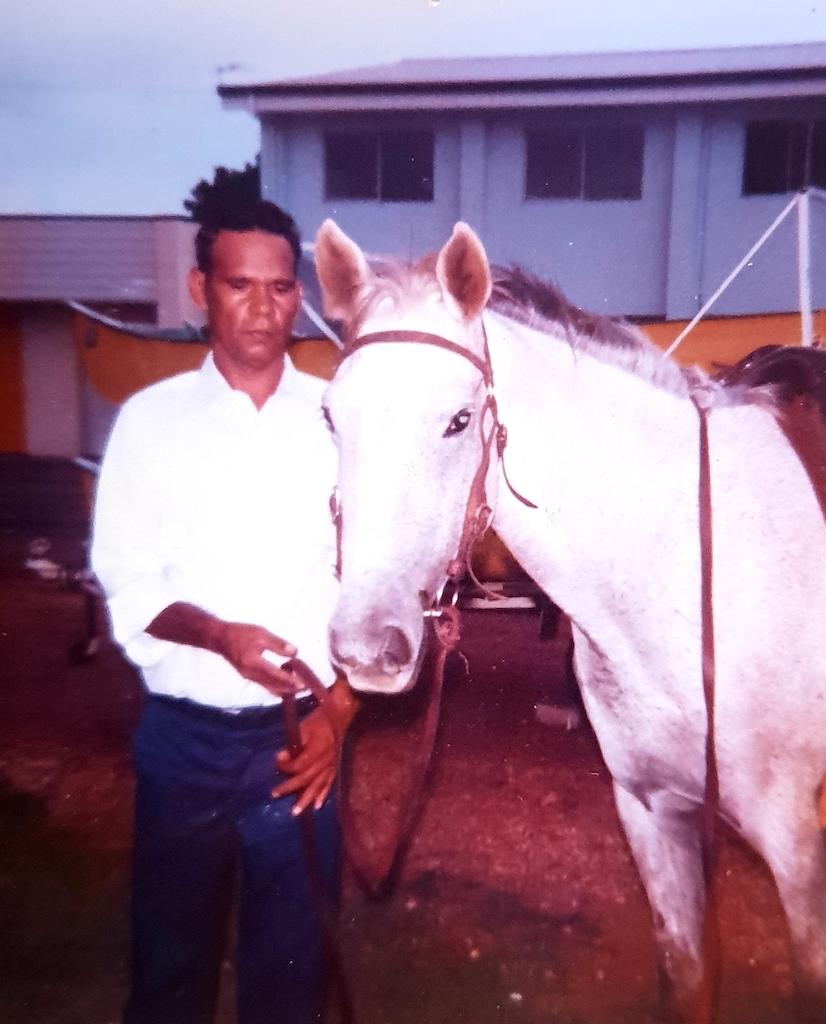
This act of selflessness stayswith you, always! Thisideal continues to be the core vision of the Foundation itself It was also due to this ethos that my mother,Debra Dank,left her job to work for the Foundation asshe saw the opportunity to keep on doing the good work and also give back to the Foundation W hat Fred Hollows did for us didn? t really happen to indigenous people ?
W orking towards equitable eye health for the country?s First Nations people, The Foundation?s?Indigenous Australia Program supports increased investment in and access to culturally appropriate eye health services ? Aligned with this,the Foundation has strategic partnerships that enable qualitative delivery of medical

treatment including cataract,diabetic retinopathy and trachoma ?some of the leading causes of vision impairment and avoidable blindness. The program also envisions toincrease access to services for patients in remote communities,coordinate and improve outreach services so everyone who needsmedical care gets itaswell asprovide training and support to Aboriginal and Torres Strait Islander health staff.
According to the Fred Hollows
Foundation 2021report:?The indigenous Australia Program builds on the Foundation?s long standing history of being an ally to Australia?s First Nation?sPeoples ?


Talking about the Foundation?s vision, Professor Fred Hollows had himself said:?Our vision is for a world where indigenous Australians enjoy the same health and life expectancy asother Australians ?
The Foundation hassupported thousands of First Nations people like
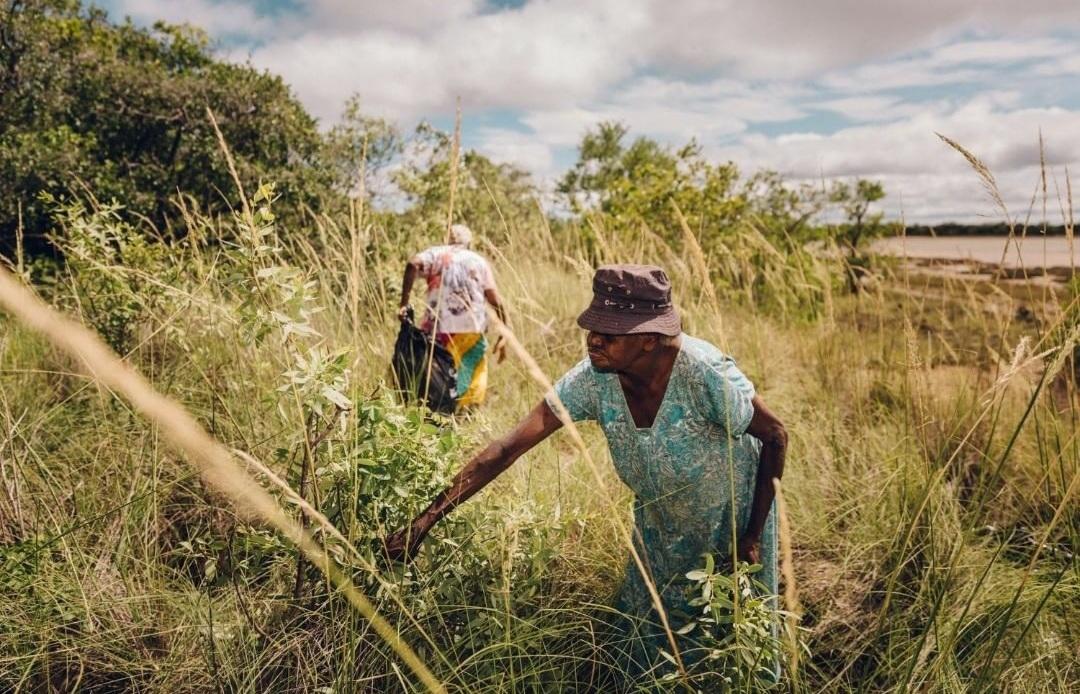
Sally W inbirr who had long suffered from blurred vision or Gilbert ?a Gaagudju man ?who had cataract; enabling them to lead the life they so rightfully deserve.

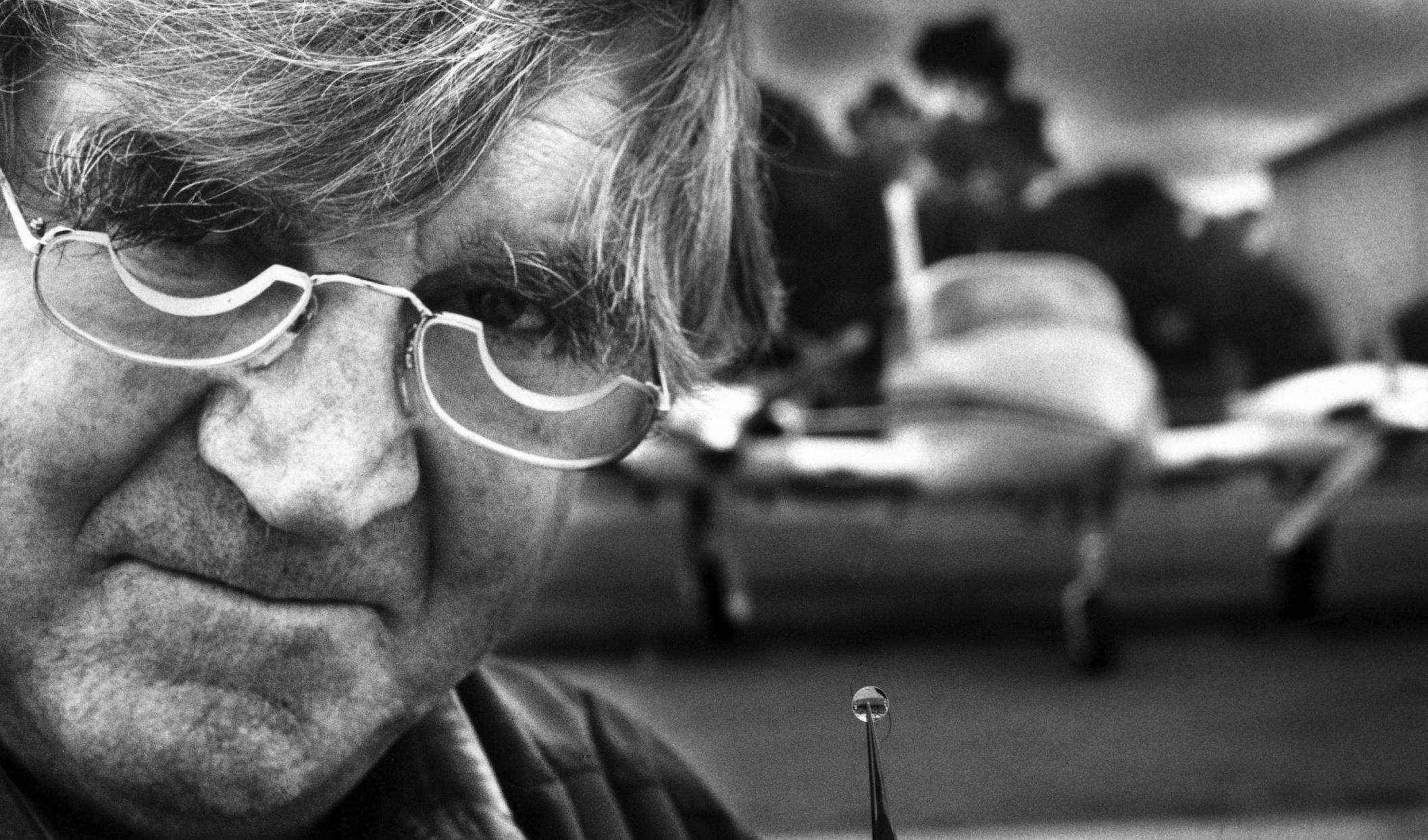

?W hat Professor Fred Hollows,M rs Gabi Hollowsand the Foundation itself have done and continue doing is to give a new lease of life to people and helping them break the cycle of poverty.I am rendered speechlesswhen I think about the Foundation?s immense work They are doing so much to break the circle of poverty The Fred Hollows Foundation should be celebrated, admired and their work emulated.I love the work they are doing and wish them another brilliant 30 years.I?d like to personally thank the foundation for helping my family,?concludesRikki

What Professor Fred Hollows,Mrs. Gabi Hollowsand theFoundation itself havedone and continuedoing istogiveanew leaseof lifeto peopleand helping them break the cycleof poverty.
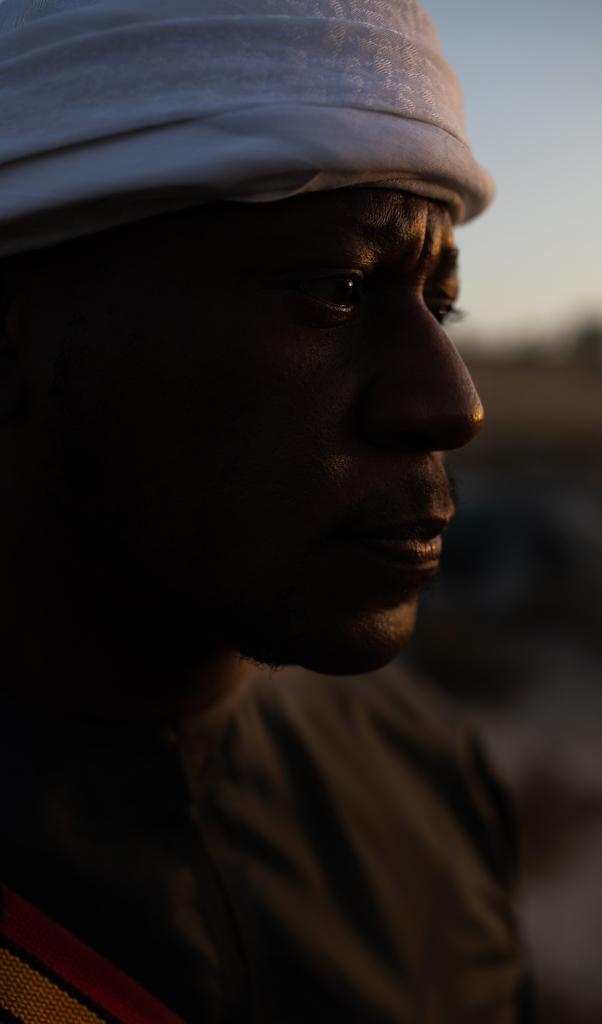


Let us begi n by you tel l i n g us about your sel f?
I am an Emirati Soul singer,who left the corporate world to strive and make a difference with positive music and conscious entrepreneurship.I would say my music is an embodiment of the UAE,where the old values meet the new and progressive - old school soul and neo soul beats,with lyrics rooted in positivity,introspection,love and search for purpose

W i th your i m m en se body of w or k as a m usi ci an , w hat ar e som e of the hi ghl i ghts of your stel l ar car eer ?
I have to say I am extremely humbled in my journey into music! I?ve had the opportunity to perform at the Louvre,Expo 2020,La M er and other high profile events.I have to say that being able to perform my music live in front of so many people is fulfilling and motivates me to do more
M usi c w i th i m pact: i n deed m usi c i s un i ver sal as i t br i n gs peopl e together , i t i s about har m on y an d peace. Un i ty i s som ethi n g m uch n eeded i n the w or l d w e l i ve i n H ow i n your opi n i on does m usi c cr eate that di al ogue for peopl e acr oss di ffer en t secti on s of soci ety?

M usic is more than just wordsand a beat,it?s about sharing a piece of yourself through song
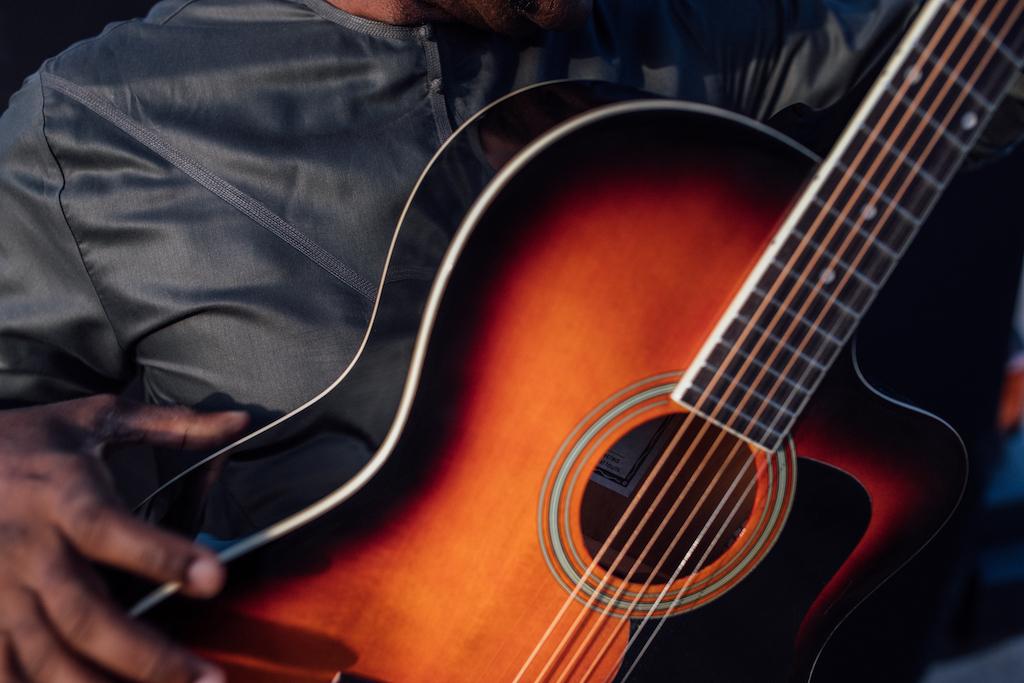

Emir ati soul singer and The Fr ed H ollows Foundation Ambassador ,Ar qam Al Abr i, talks about his music, pur pose and vision of ser ving humanityPhotography by: Jalal Abuthina
Regardless if you know the language,a good song has a way of moving you It?s important that we use this powerful tool to create pieces that reflect our values,beliefs and purpose.
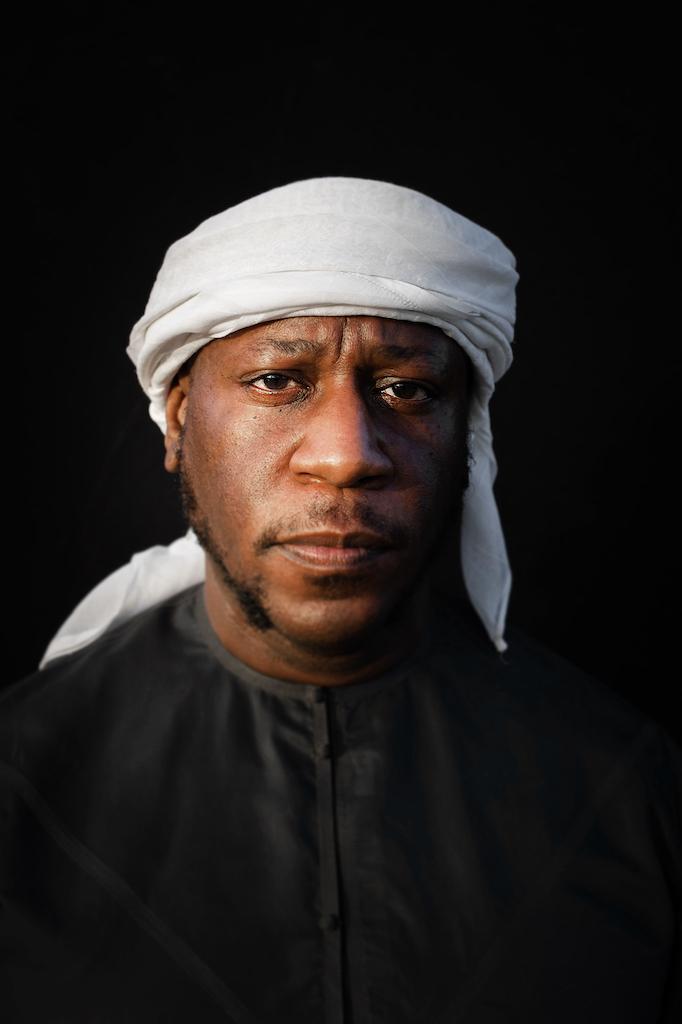
You have been r ecen tl y appoi n ted The Fr ed H ol l ow s Foun dati on ?s am bassador . Tel l us how thi s r el ati on shi p began an d w hy?
I was approached by M aha Oda,from the Fred Hollows Foundation,during Expo 2020 to meet and discuss a particular event,the event did not happened but discussion about my plans and theirsdeveloped into perhaps working with them Eventually that turned into discussionsabout possibly being an ambassador and now we are here!M aha has been guiding me ever since, educating me about their vision,impact and the great work they?ve been doing in various parts of the world.
Do tel l us m or e about your pl an s at the Foun dati on i n the futur e.
I am looking forward to raising awareness about the Fred Hollows Foundation and avoidable blindness over the coming year I definitely want to be on ground and participate in some of their clinicsand perhapscreate some music!

W hat k i n d of i m pact have you w i tn essed as far as the Fr ed H ol l ow s Foun dati on i s con cer n ed?
The resultsof a landmark study show

the economic benefits of eliminating avoidable blindnessin developing countries outweigh the costs by a factor of four to one.This means for every $1 invested in preventing someone from going blind,at least four times the financial benefit goes to the economy This places eliminating avoidable blindness among the most effective interventions available,and can be likened to primary school education and building bridges in terms of broader economic value
As an Em i r ati soul si n ger , how do you
"For every $1invested in preventingsomeonefrom goingblind,at least four timesthefinancial benefit goestotheeconomy."
see m usi c can add to The Foun dati on ?s cause?
M usic is the soundtracks of our lives,as an artist I try and create music that is conscious,uplifting and positive.I am hoping this will translate into shining a light on the Fred Hollows Foundation,the good work they do and how we can all make a difference.
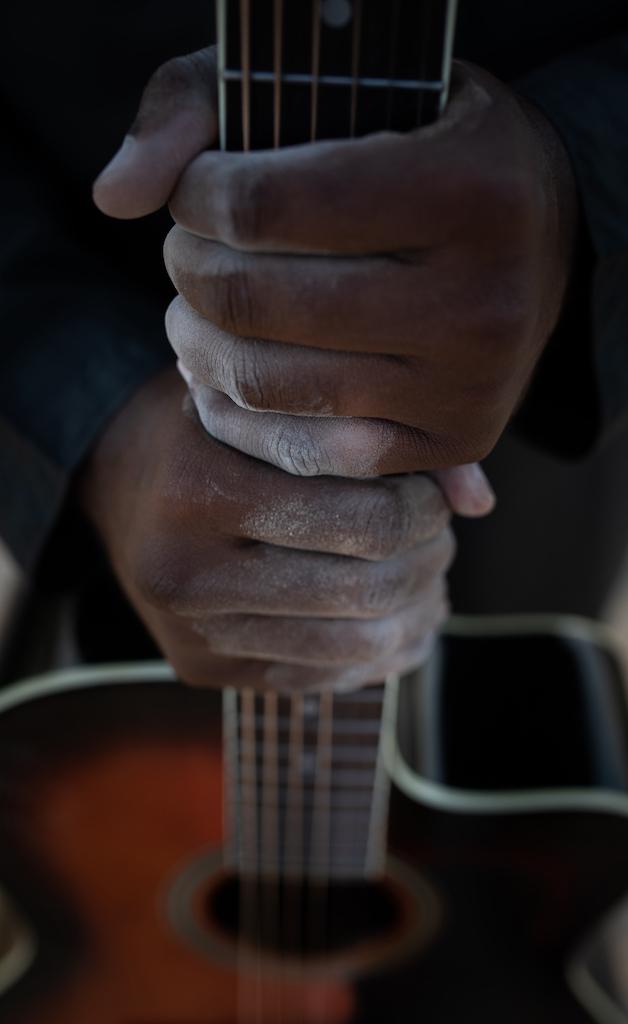

Ar e ther e an y n ew i n i ti ati ves by you that w e shoul d be exci ted about (eg n ew m usi c)?
Quite a lot is happening over the next few months! I am releasing a new song on the 12th of October called ?Leaving?- a song that takes an introspective look at relationships and breakups.I am performing at the Chelthenham Festival over October,in M exico in November and in the Bahrain Jazz fest on the 2nd Dec Then I?m back performing at the Louvre on the 3rd December! Exciting times!

The Foun dati on i s cel ebr ati n g 30 year s of i m pactful chan gem ak i n g thi s year , an y l ast w or ds al so focusi n g that?

A quote I live and create by is ?Be ashamed to die until you have won a victory for man?
Horace M an.I?m grateful that I can serve a purpose,to share a light and help where I can.
Nai m a Sal ahat, 54, m other -of-10 an d housew i fe fr om the Bethl ehem gover n or ate, 19k m fr om Jer usal em . She al so suffer s fr om di abetes, hyper ten si on , an d hear t di sease. Al m ost hal f a bi l l i on peopl e ar oun d the w or l d l i ve w i th di abetes an d al l ar e at r i sk of i r r ever si bl e vi si on l oss due to di abeti c r eti n opathy (DR i f they ar e n ot tr eated i n ti m e. Li festyl e chan ges have l ed to an i n cr ease i n the n um ber of peopl e w i th di abetes acr oss al l coun tr i es dur i n g the past 30 year s. If tr en ds con ti n ue, the n um ber of peopl e w i th DR i s expected to i n cr ease fr om 146 m i l l i on i n 2014 to 180.6 m i l l i on i n 2030 an d 215 m i l l i on by 2045. By 2040 i t i s an ti ci pated that 70 m i l l i on peopl e w i l l have vi si on thr eaten i n g DR. Ei ghty per cen t of peopl e w i th di abetes l i ve i n l ow - an d m i ddl e i n com e coun tr i es, w her e heal th system s ar e n ot equi pped to r espon d to thi s gr ow i n g epi dem i c. Few peopl e can access the car e they n eed. That i s w hyThe Fr ed H ol l ow s Foun dati on i s pi l oti n g n ew an d i n n ovati ve appr oaches to better m an age DR i n l ow -r esour ce setti n gs.
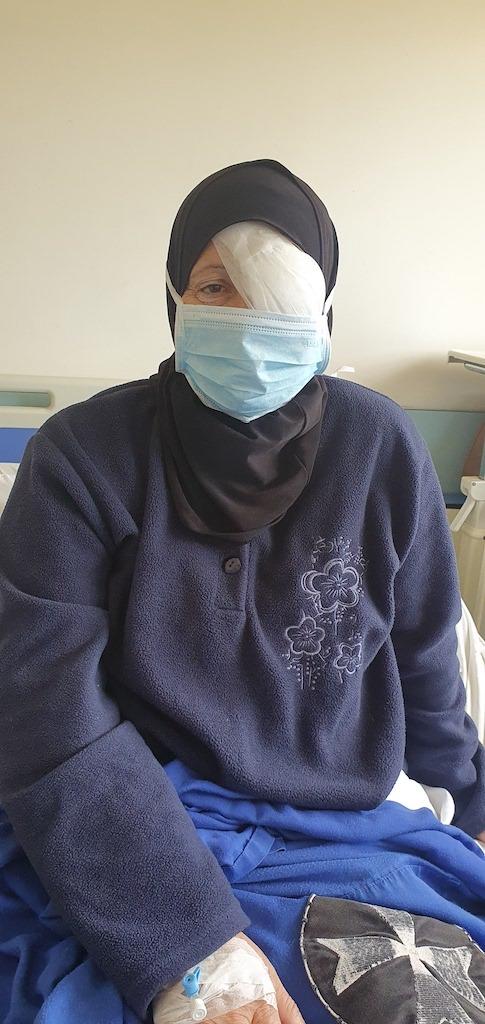
NaimaSalahat:?If I did not get thesurgery, I would beblind by now?

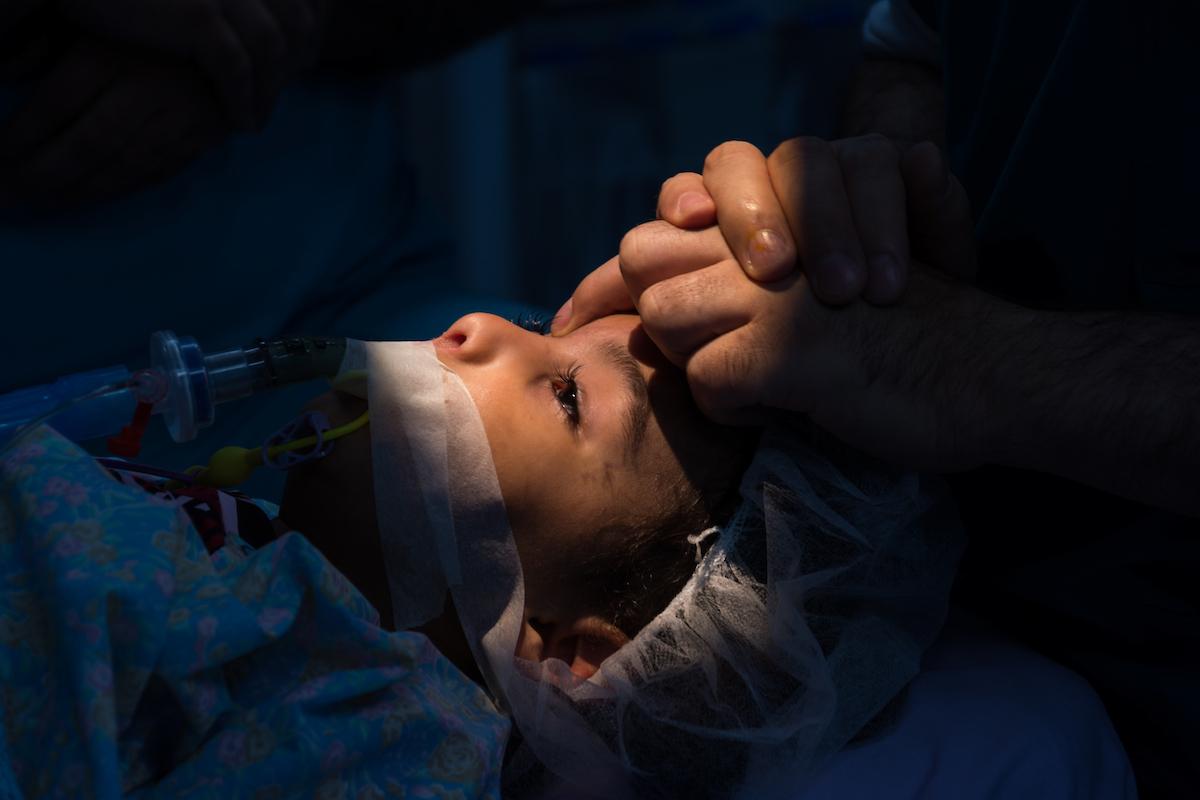
Three year old Jenin from Gaza needed a complex eye surgery,and only the surgeons at St John?s Eye Hospital children?s ward in Jerusalem could install a secondary intraocular lens,a procedure that will restored her sight. Jenin?sgrandmother,Layla accompanied her on the arduous journey from Gaza and praised the doctorsafter the successof the surgery ?W e are so grateful for them and the organisation who helped us and helping others,and every person in need ?
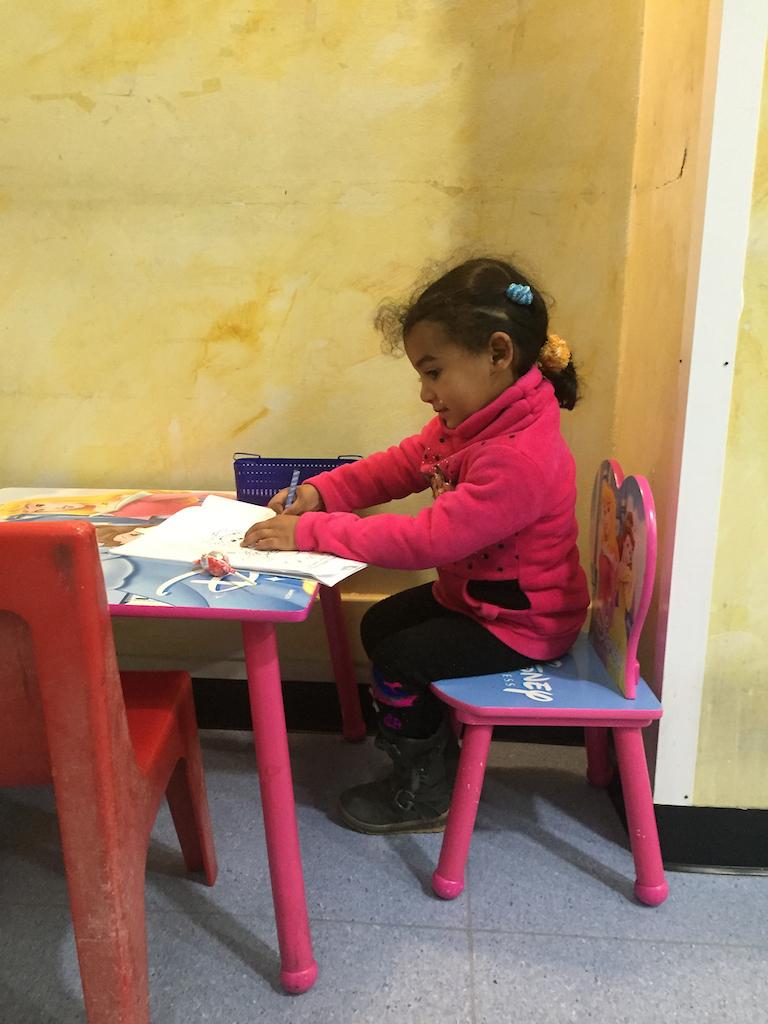
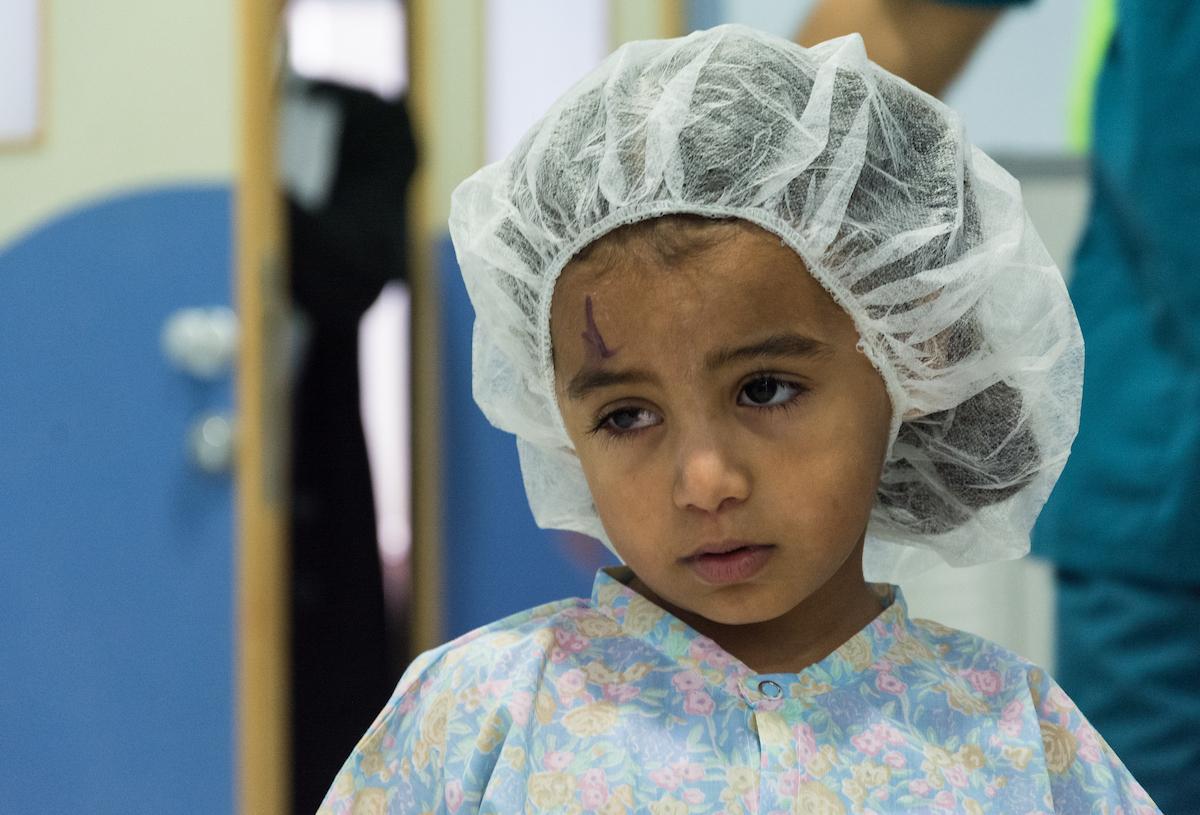
Palestinianshave ten times the rate of blindness than those in western countries The prevalence of blindness is almost twice as high in Gaza (4 9%) than the W est Bank (2.5%),and higher amongst women than men (4 3% compared to 2.2%).


St John Eye Hospital Group?s mission is to provide eye care regardless of ethnicity,religion or ability to pay The Fred HollowsFoundation works to reduce rates of avoidable blindness among the 15 million people acrossthe M iddle East who are avoidably blind, and have a longstanding partnership with St John?s in Palestine for many years.



For almost 20 years,Nurhaidah was a single mother who raised her two children in the village of Dorebara,in Dompu,Indonesia.Presently,she lives with her 16 year old granddaughter,who she supports by working as a vegetable seller.Every morning,54 year old Nurhaidah would wake up early to buy vegetables from the local market to resell to villagers.?I am always very tired and tears come out of my eyes sometimes,?Nurhaidah shared. During harvest season,Nurhaidah earned extra money by helping farmers harvest corn and rice. Nurhaidah used to work round the clock and when not working,she would spend most of her time doing household chores.This was Nurhaidah?sdaily ritual until she developed an eye problem more than two years ago Because of her poor vision,Nurhaidah?s work has suffered and her income has daily income
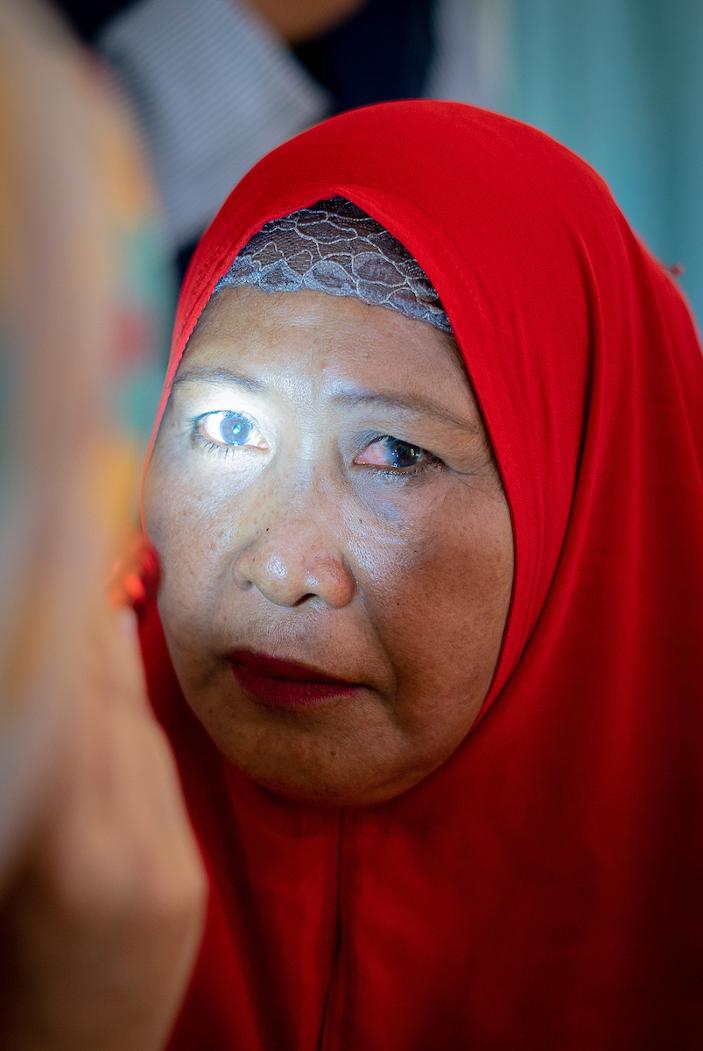


has decreased from 30,000 rupiah to 20,000 rupiah about $2dollars

Luckily,Dompu had itsfirst eye camp after more than two years and Nurhaidah had access to free eye checks.The eye check confirmed Nurhaidah had refractive error,or myopia,where she is unable to clearly see objects at a distance.She also showed early symptomsof pterygium, which can be treated with surgery to be conducted at a later date. Nurhaidah?sexperience show the importance of undergoing regular eye checks.In places like Nurhaidah?stown,accessing eye health services can be a problem.

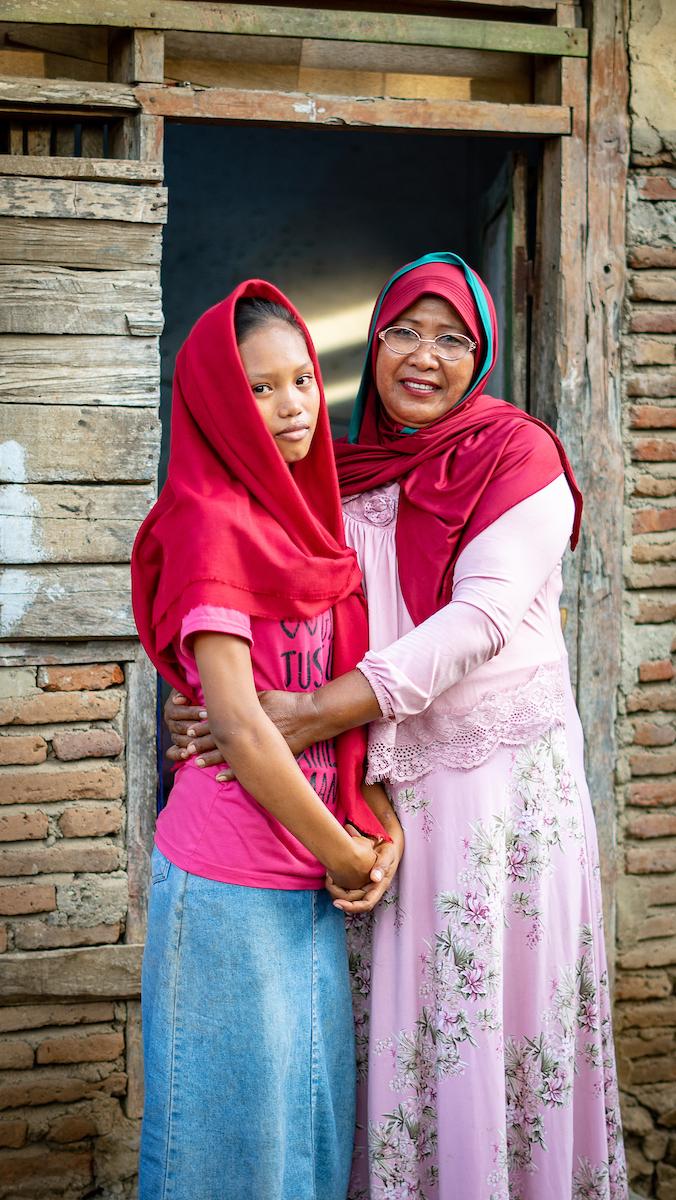
For now,with assistance from The Fred Hollows Foundation, Nurhaidah has been able to receive the correct pair of eyeglasses.For many people,blindnessand vision impairment is both a cause and effect of poverty.Equipped with better vision,Nurhaidah expects to continue working,and increase her income so she can support her granddaughter?s studies


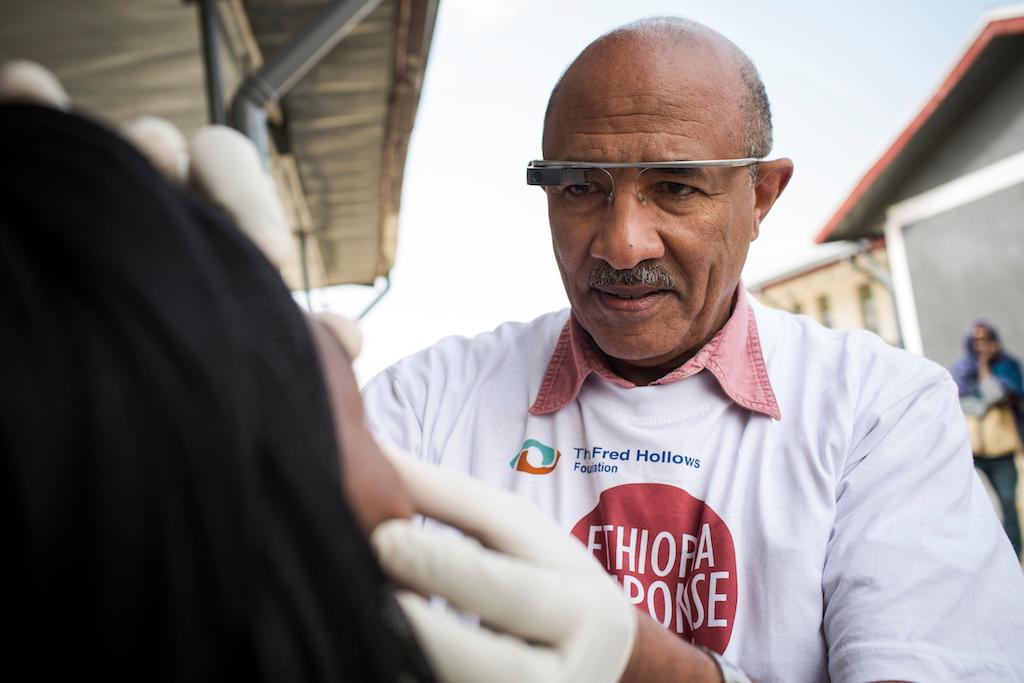


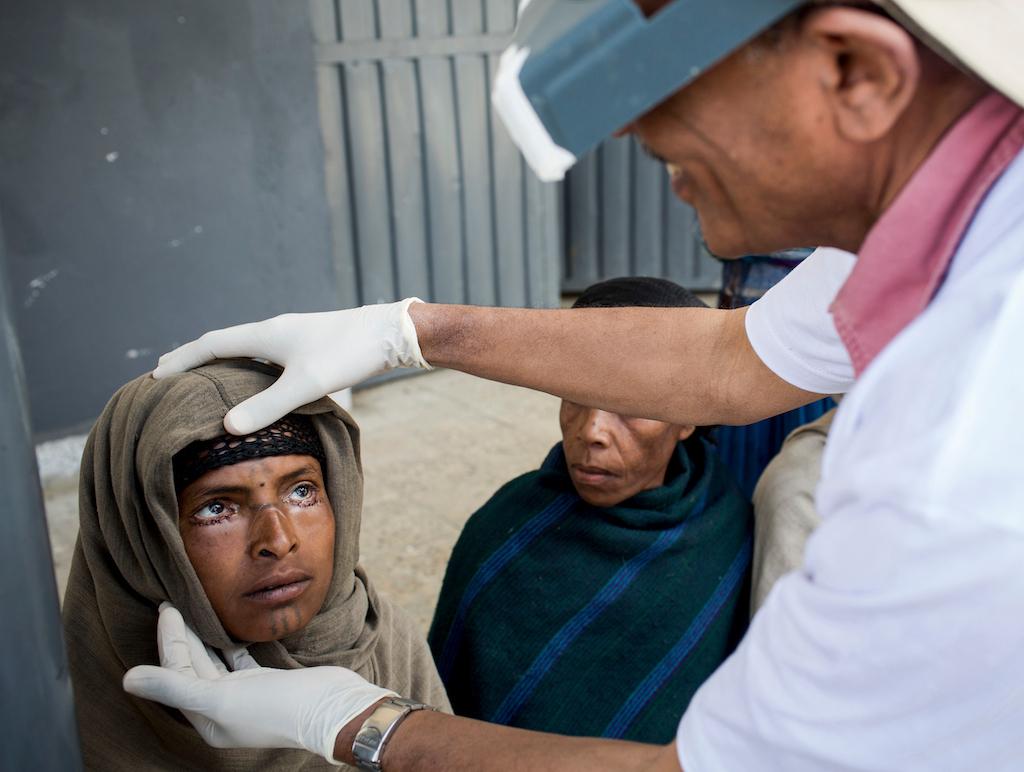
Trachoma is one of the leading causesof blindness worldwide.A bacterial infection affecting the vision,it is a highly contagious disease that spreads through contact with eyes,eyelids, secretionsfrom the nose or mouth,aswell as physical contact through hands,clothing and bedding Affecting more than19 millionpeople across 44 countries,blindness caused by trachoma is irreversible.In addition,trachoma exacerbates gender inequalities with more women at risk for getting infected than men;mainly due to being primary caregivers in the family.
?As far as I'm concerned, trachoma is a woman?sdisease, particularly mothers and children It essentially affects the pillar of the family,the heart and the mind of the family.W hen the mother is affected,the well being
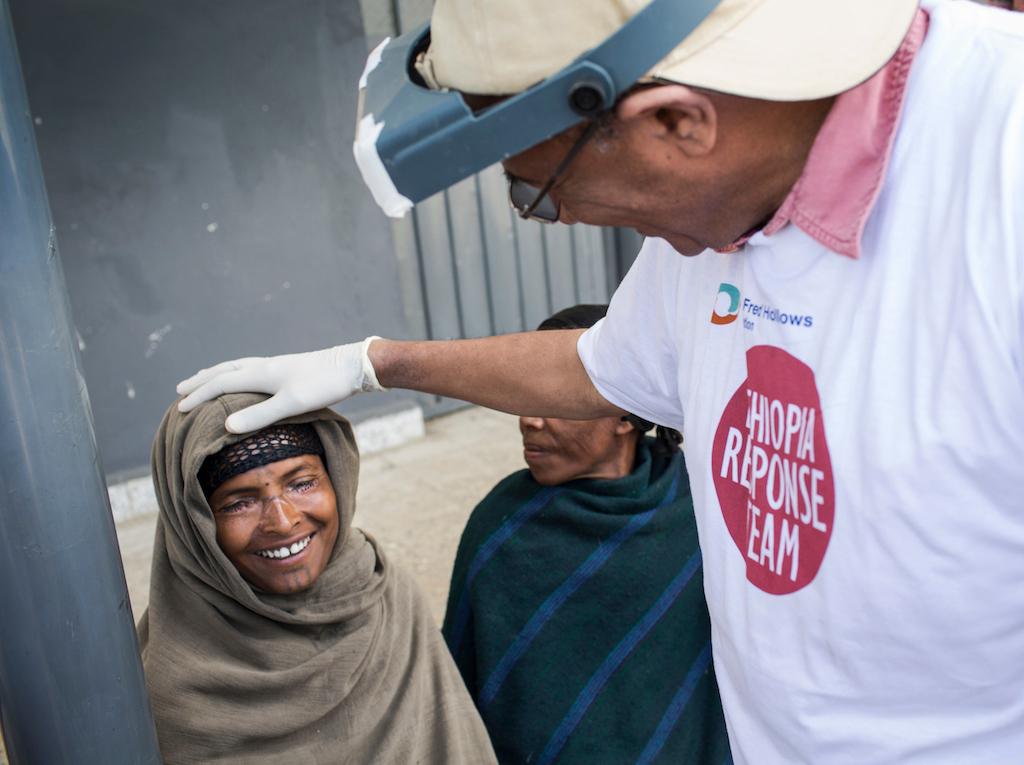

of the entire family is affected Active trachoma is abundant in children,especially pre-school kids between two to five yearsof age.And with the mother tending her children,she gets infected repeatedly through touch or clothing,?explainssenior ophthalmologist and The Foundation?s Ethiopian technical advisor,Dr W ondu Alemayehu. Having graduated and initially working asa general practitioner, DrAlemayehu witnessed the immense challenge that eye health presented and opted to be trained asan ophthalmologist ?You see patients visiting general practitioners with all kinds of problems M any,even children, came with trachoma related issues,cataract blindness, glaucoma.There was no awareness and most of the patients did not know how to

According to theW orld Health Organization (W HO),?Visual impairment or blindness results in a worsening of the life experience of affected individualsand their families, who are normally already amongst the poorest of the poor. W omen are blinded up to four times as often as men,probably due to their close contact with infected children and their resulting greater frequency of infection episodes.?
manage their eye problems,? he adds.
?Raising awareness is very important It is critical to create awareness asfar as decision makersat the national level as well as in communities and families are concerned Very few people understand or have the awareness that cataract,for example,can be cured or a 10 minute surgery can get rid of the inverting of the eyelids. Trachoma givesrise to the complication of the inverting of the eyelids.W e blink 19,000 times a day Imagine the excruciating pain a mother suffers while she is cooking in a smokey,confined area,cleaning or tending her sick children The discomfort is not just continuous,it leaves behind scratches and scarring of the eye,?saysDr

Termed ashyperendemic by the W HO,trachoma impacts many in the poorest,mostly rural areas of the Global South including Africa,Central and South America,aswell as Australia,the M iddle East and Asia; with Africa being the most affected region and also receiving the most intensive control efforts.
Talking about how raising awareness can significantly impact ground realities,Dr Alemayehurationalizes:?I have said thisa number of time that


people think blindness or visual impairment does not kill but I do strongly believe it is a cause of death So yes,it is extremely important that we work to raise awareness across communities as well asdecision makers


People need to be empowered with knowledge.Trachoma is abundant in rural areas where the literacy level is extremely low Then there is overcrowding and sanitation problems.
Personal hygiene is not that good, so we need to educate mothers and change their behaviors.
M ake them see that washing their hands and face and that of their children on a daily basis makesa huge difference.Next and more important is to improve the sanitation level,the availability of clean water and sanitary facilities.So when you communicate the linkages between these challenges to
community and religious leaders and empower them with information.They in turn can reach out to decision makersat the national level,urging them to make these facilities and amenities available,with implementing partners also coming in and addressing these critical areas ?
Dr.Alemayehu hasworked with the Foundation for more than 26 years directly aswell as indirectly.?The Fred Hollows Foundation is a pioneering and bold organization.There was interest in working in Ethiopia so "Peopleneed tobe empowered with knowledge. Trachomaisabundant in rural areaswherethe literacy level isextremely low."
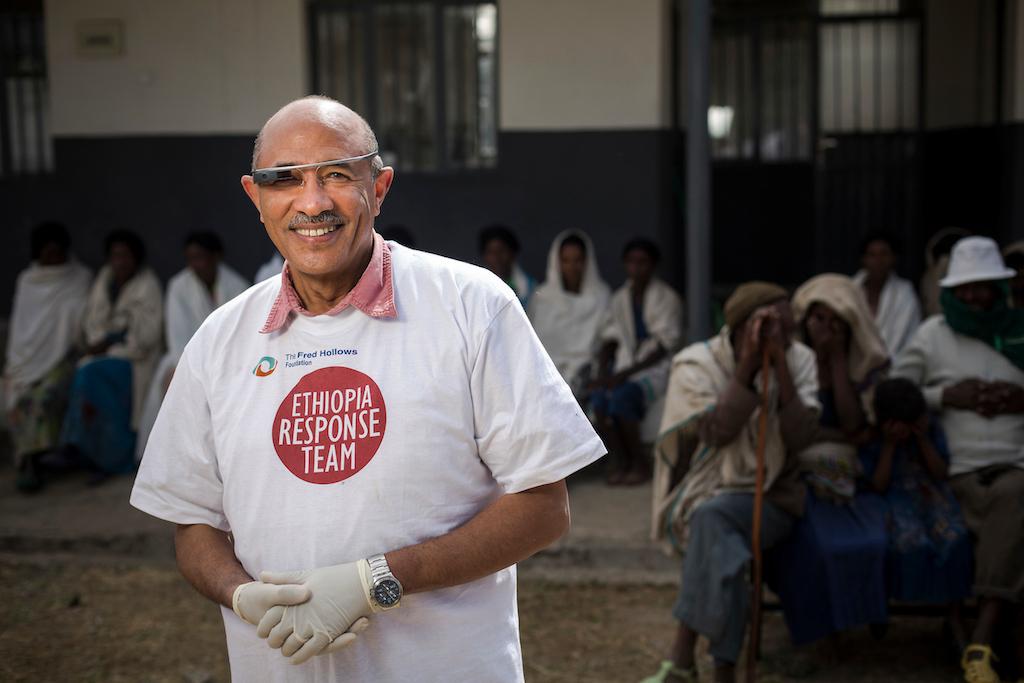
I was asked to do an assessment of the visual impairment and the blindness situation in Ethiopia and give my recommendation to the Foundation Based on our finding,it was decided to work in the biggest region of Ethiopia,Oromia,to tackle the problem of trachoma After officially registering,the Foundation began to roll out one of the most ambitious trachoma programs in the world.?
In 2014,The Fred Hollows Foundationreported that over two thirds of the 33 million people living in Oromia were exposed to trachoma.. W ithin the region alone 200,000 people were at risk of going blind unless surgeries were conducted, and women are more ?than twice aslikely as men to develop the disease?due to their childcare activities


?It's a huge effort which is being exerted by the Foundation to eliminate this completely preventable cause of visual impairment.This is completely preventable and treatable And this also the reason why such an extensive program is being implemented And it is heartwarming to witness this high dedication and commitment which consequently results in tangible

change,?the senior ophthalmologist opines.

The Foundation is part of the Trachoma Task Force focusing on massive visual rehabilitation that includesacross the board efforts from sanitation,surgeries, treating infection with antibiotics as well asraising awareness about personal hygiene ?The goal isto eliminate the scourge of trachoma ?

Aligned with this vision,the

doctor adds:?The sanitation effort is also being done by partnering with other organizationsin the worst affected areas.W ith all our advocacy at the ministry of health level;it is now getting immense attention,which makes me really happy,?
The work for the Foundation does not actually stop there Efforts on the ground can only be sustainable when it is organically
implemented ?Ownership is extremely important so part of our strategy is to prepare stakeholders for the transition with appropriate transfer of learning and skills through capacity building So the transition is not just smooth but very organic in nature when the eventual handing over the reins to responsible authorities,health facilities and communities in the country does take place.The idea is for stakeholders to leave us with a strong commitment to move forward on their own and take up the responsibility By taking ownership and focusing on impact That's what the organization is trying to do and I'm happy to have worked with the Fred Hollows Foundation, concludes
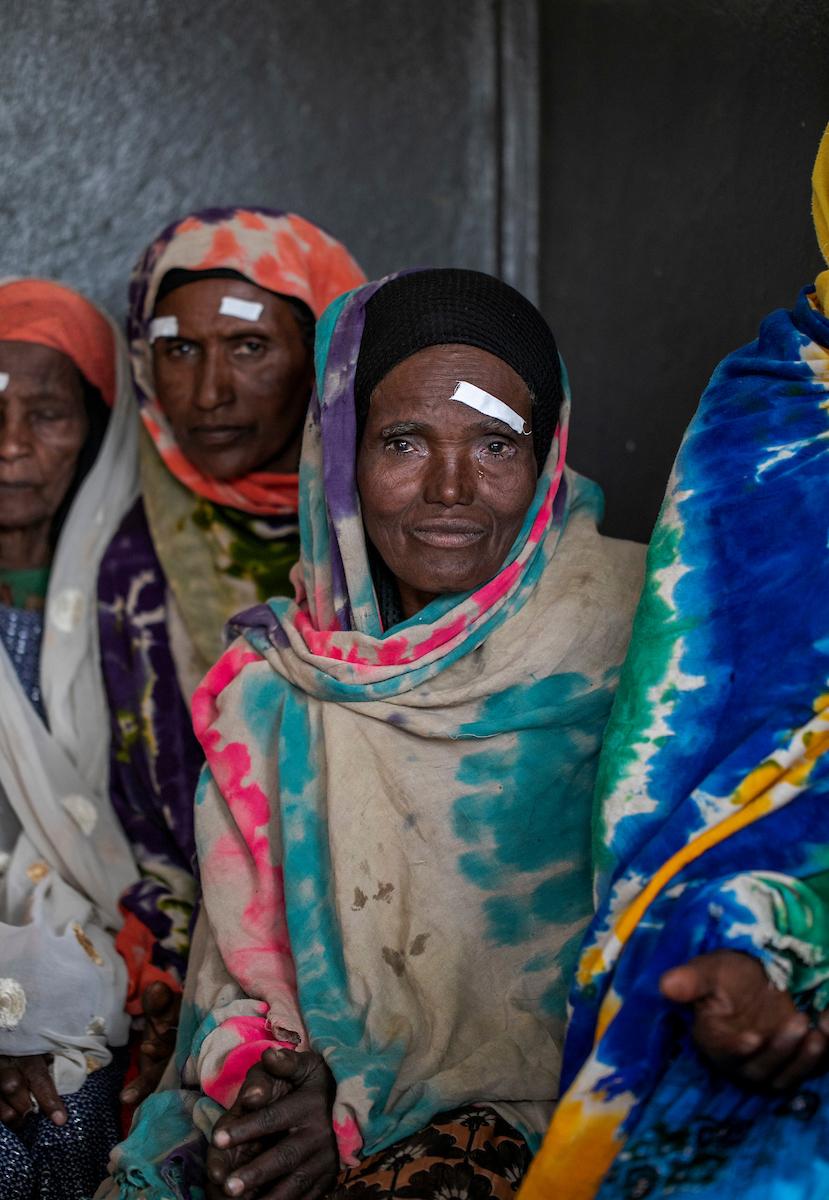
Hundreds of people patiently queue under the awnings of the health centre at rural Jeju,almost four hours Southeast of Addis Ababa,Ethiopia,as the heavens pour unseasonal rain
They have come from far and wide on hearing about the eye screenings,organised to treat the incredibly painful and blinding eye condition,trachoma.

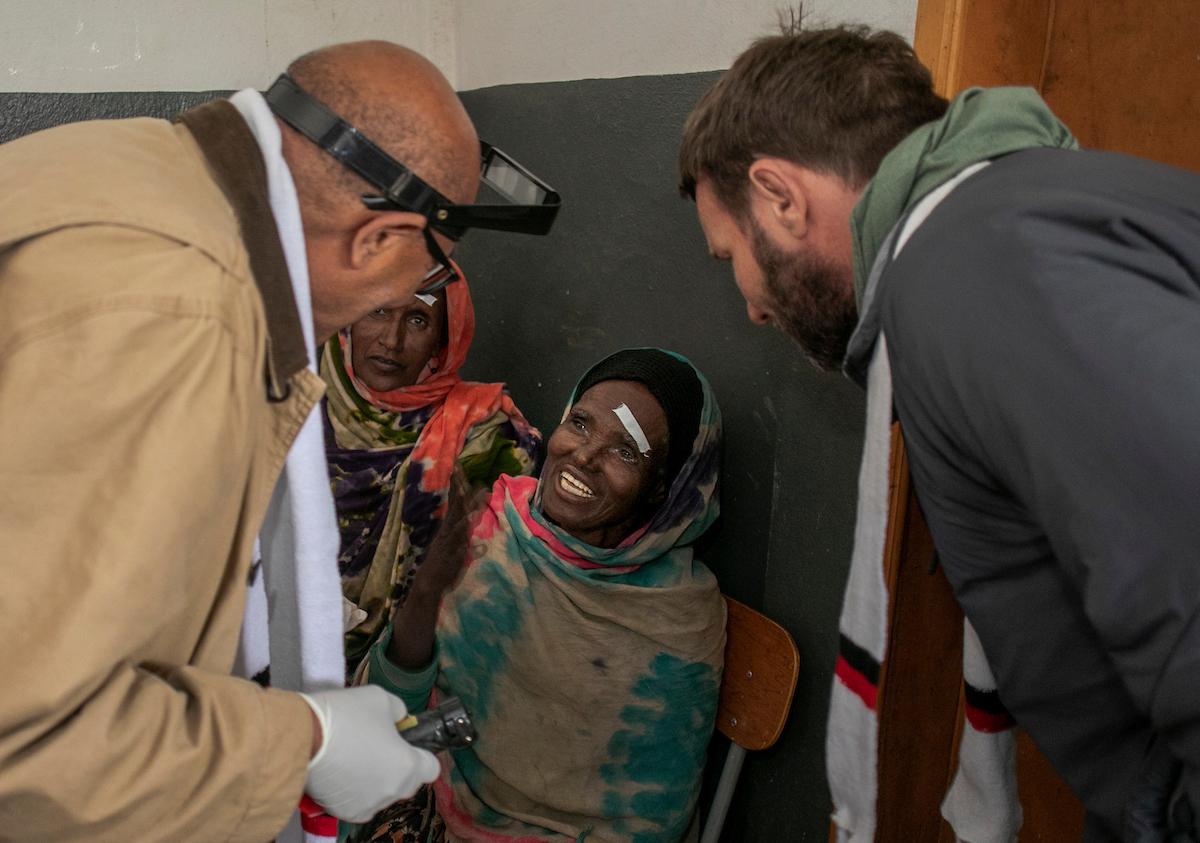

M any have heard about through the local radio,others from the massive community mobilisation campaign.
Among the nervousgroup sitting outside is Hawiti Tufa,a

thosewith
timesmorelikely toneed
60-year-old grandmother of four, who smileswarmly at visitors from the makeshift surgery enclosure by The Fred HollowsFoundation which has worked with local health authorities to organise the screening and surgery
Hawiti tells the Foundation,she?s had severe eye pain for more than a year,as the repeated trachoma infectionshave scarred her eyelids turning them inwards until the lashesscratch on her cornea

?The first sign was itching and irritation in my eyesand then there was a lot of pain I was scratching my eyes because of the itching sensation,?she said

?I was worried when they told me I was going to have an operation ?
Hawiti knows a lot of people who have had surgery for trachoma.In Ethiopia,27million people live in areaswhere trachoma is endemic.W omen make up 70 percent of those with trachoma and they?re four times more likely to need surgery than men
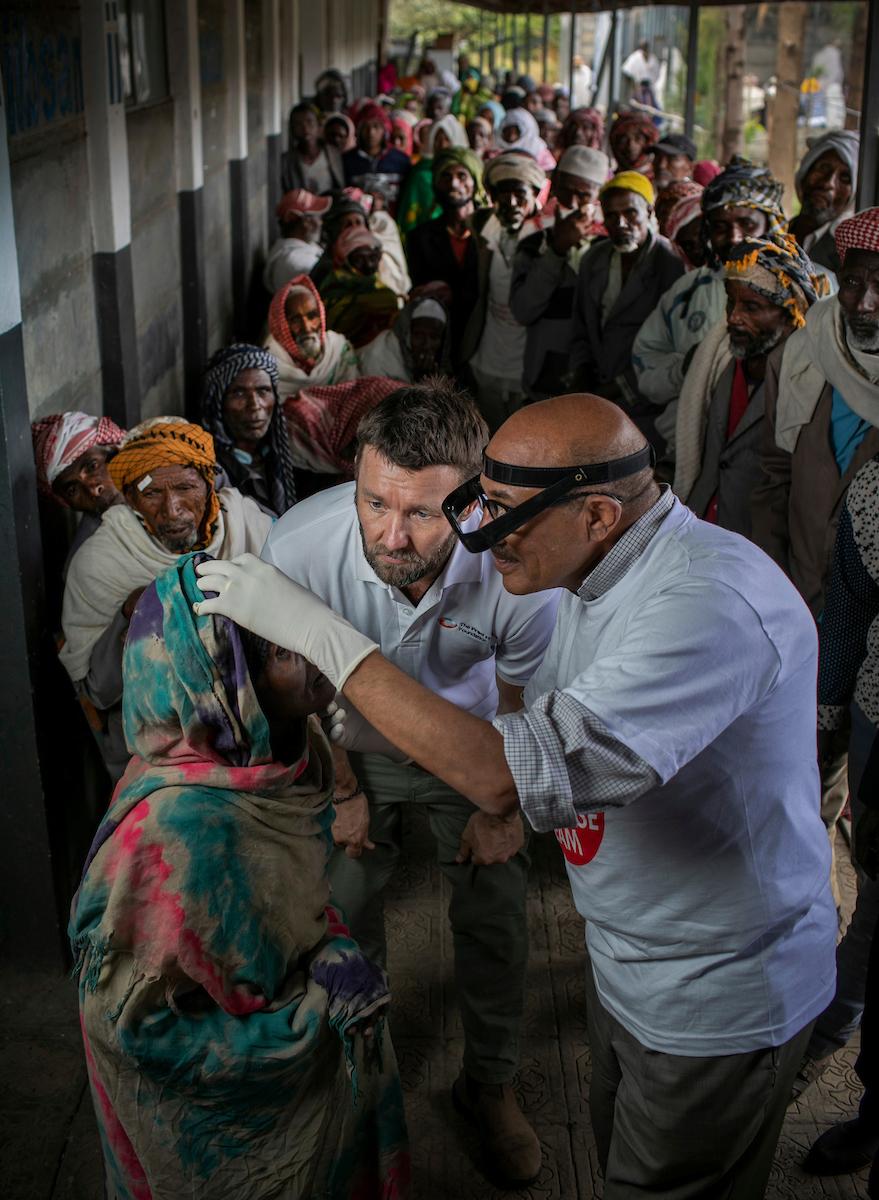
Hawiti haswalked for more than three hours to make the 21km journey from her modest mud hut home to the health centre. Her daughter Geno Hussien walked with her,making sure she reached the clinic It?s a common story in these areas where most people have small plotsof land in remote and inaccessible locations.
Hawiti is operated on by young
surgeon Feyera Bekele who is an integrated eye care worker trained by The Fred Hollows Foundation.
The 25 year old hasexperience beyond his years and estimates he?s done more than 300 surgeries.Supervised by Dr W ondu Alamayehu,technical advisor to The Fred Hollows Foundation on trachoma,Feyera is confident and skilled
?I was worried after the surgery when they put the patch on my eye but when they took it off,I was very happy,?Hawiti said.?I felt free when they took the patch off. I have better vision now and the pain is reduced It?s still sore because of the wound but much better already I blessyou and all
the team members for giving me better sight.? Hawiti revealed she hasbeen unable to help her family for a year prior to the surgery because of the terrible pain in her eyes.?I usually cook for my children and family members,but I can? t because of the problems with my eyes As long as I am surviving with my family members,I am ready to cook and feed the family?

She?s most looking forward to making Injera,the national dish of Ethiopia,a sourdough-risen flatbread with a slightly spongy texture traditionally made from teff flour ?W hen I washealthy,I used to cook injera and doro wot (a traditional chicken stew) but because of my eye problems I?ve not been able to,so I have a plan

to go back to cooking to feed my family.I?ve not been active in the past year ?Hawiti is also keen to see her four grandchildren ? aged two to seven ?and spending time with them
W hen Hawiti was taken back home by the Fred Hollows Foundation,her entire village came out to greet her W e ask Hawiti where the nearest water source is,and she points in the direction behind her mud hut It is about a two kilometre walk to the pond where she and the other villagers get their water. But the pond is shared with the livestock and poses serious health concerns She says the village used to have a water pump,but it?s been broken for the past six years.


In 2021,23 countries reported gender-disaggregated trachoma data,representing 95 percent of all people treated globally.In these areas,51percent of treated individuals were female,signaling that gender equity is being achieved: International Coalition For Trachoma Control

Azmer a,25,has two children,a girl,Habtamnesh,12,and a boy, Derese,10 Azmera had bilateral lower lid trachiasis Usually it is the upper lid in turning,but in her case it was the lower lid.The correction was beautiful according to Dr W ondu The eyelashes are now outurned and her cornea has been spared from scarring She had been experiencing pain for six years She used the W orrento (tweezers) to pull out her eyelashes ?
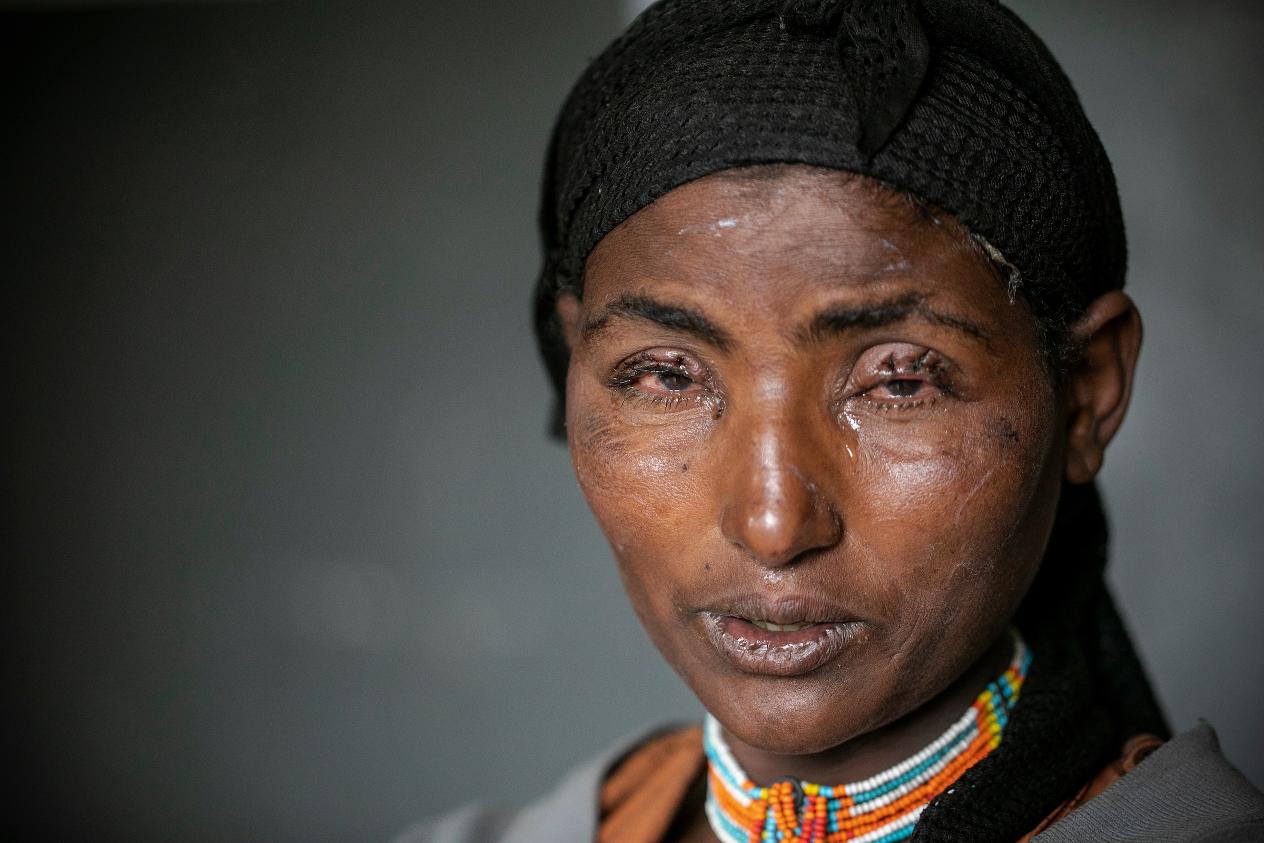
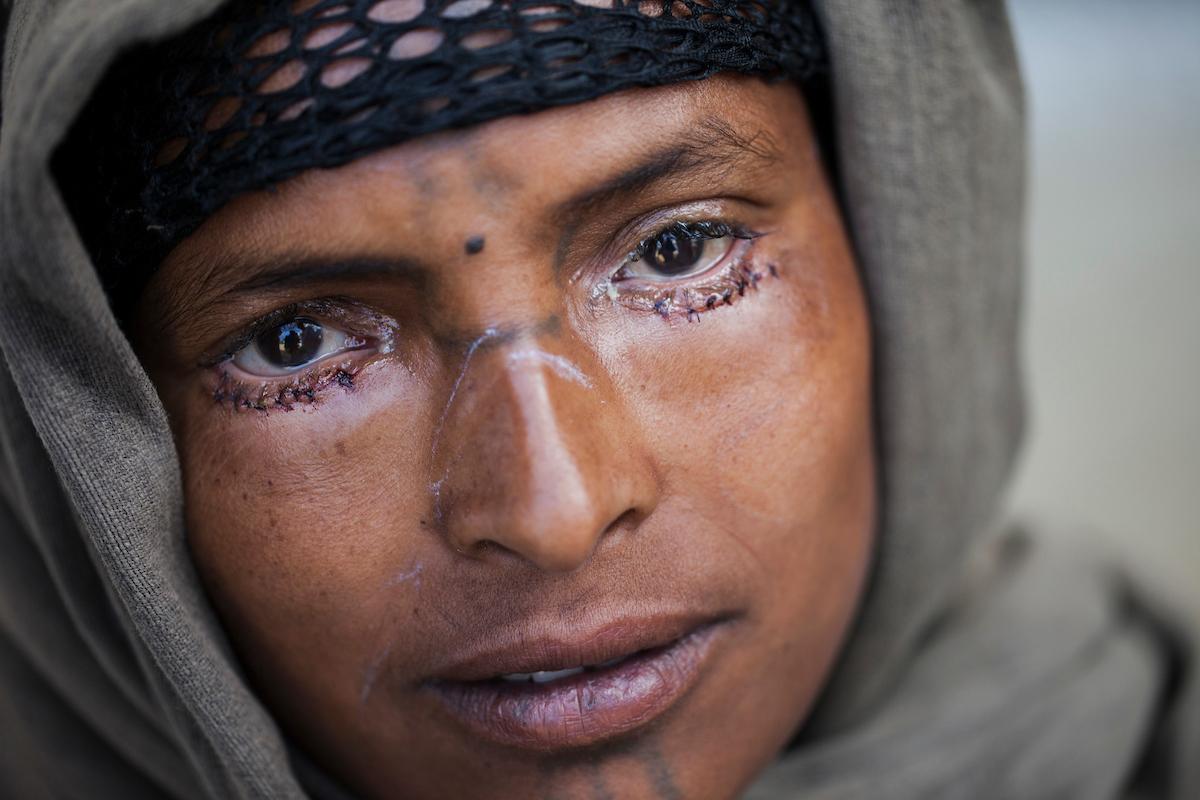
I thought I wasgoingtogoblind oneday When thepatch wasremoved and I could seewithout pain I wasextremely happy I will now work and livemy lifeand I can takecareof my kidsbetter?
Fatuma M ama,37,is a mother of five children ?I feel good today,I?m so happy Previously,I was not able to see people.I saw double.Now I?m having good vision.Not having the pain is a relief Before I could not go outside the house alone I had difficulty cooking and caring for my children ?
Fatuma?shusband used to help fetch water and with the chores while she was suffering from a very bad case of trichiasis.?W e have a pond for cleaning things and have to carry water 20km on donkey?s back ?She has had trachoma for two years,in addition to one year of her case worsening
Fatuma had an appointment at the clinic six months prior to her actually visit,but tragedy befell
when her 16 year old daughter got abducted and was forced to marry so she wasn? t able to come to the appointment But asthe pain got worse Fatuma came back for surgery
?Now I can see and be independent.I will not be dependent on others?


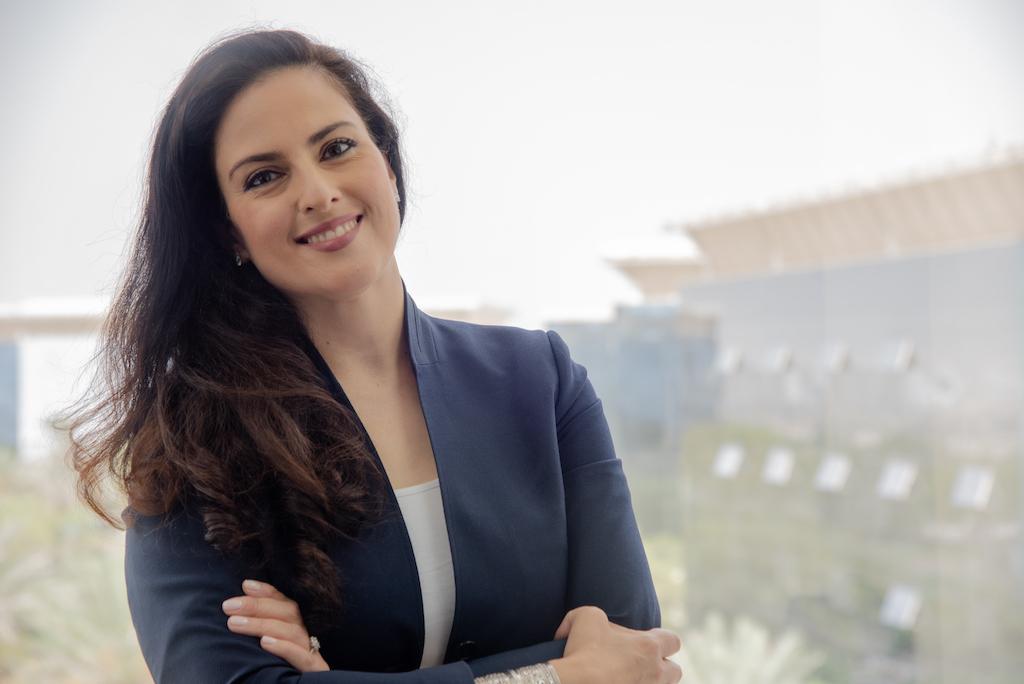
I w ould like t o begin by you t elling us about yourself ? w ho is Sally Mousa?
I am an Iraqi Australian international speaker and presenter, and someone who has been lucky enough to interview some of the most influential people in the world across every field. From Nobel laureates to royalty to business leaders and heads of state to celebrities and superstars, my passion is for uncovering the stories of the people who have had an incredible impact and sharing them with a global audience across more than 50 countries
As a little girl, my family migrated from the Middle East to Australia, where we built our new home. That move is pivotal to who I am today, because growing up I never saw anyone who looked like me or had an Arab name in the media. Arabs and Muslims were always portrayed as terrorists, and Muslim women in particular were always portrayed as powerless, oppressed victims, the complete opposite of every Muslim woman that I had ever known I realized that to see change, we had to start telling our own stories instead of letting others hijack the narrative That?s why I got into radio 20 years ago, where I and other young Muslims started producing programs which spoke to a whole new generation that is now actively shaping Australian society
As a speaker, I am often asked to speak about transformation, and at the very heart of that, is the story of our identity Most of us have not really reflected on the power of our own story to direct our life destiny and to influence others, but

through my work over the years I have realized that storytelling is the most powerful tool we have, to both transform our lives and to inspire others This is the driving force behind what I do.
Over t he years, you have not just present ed but also creat ed and produced som e of t he m ost engaging event s and program s focusing healt h, educat ion, developm ent , t he art s and t he list goes on, w hat are som e of t he highlight s of your st ellar career?

When I interview the world?s most successful people, I want to know the person behind the glitz and the accolades The most pivotal moments in our lives are often the darkest One of my favourite moments was interviewing Chris Gardner, the CEO of Happyness, and the man who was portrayed by Will Smith in the movie about his life, the Pursuit of Happyness. He spoke to me about the books that rescued him from the abuse that he experienced from his own father at home, and the power that stories gave him to seek a better life for himself and his son. I was honoured simply to be able to interview him, but totally unexpectedly, he encouraged me to pursue my own dreams and to truly find my own voice This is a man who does not go a day without hearing from people around the world who tell him how his story changed their life, and here he was, looking me in the eye, and saying, ?Sally, this is the time to make your mark. Time is of the essence!?
Doing what I do has taught me that when you succeed, you never succeed alone. When you
overcome your greatest struggles, others will see you do what they thought they couldn?t, and that can be the catalyst for them to do what they previously thought was impossible for them.
You are passionat e about em pow erm ent , cross-cult ural int erfait h underst anding, t ell us m ore about your vision and t he w ork you have done?

I was at university when the September 11 happened I remember seeing it all unfold on TV and knowing life would never be the same. That was a turning point for Muslims globally, especially Muslim women who were attacked and had their scarves ripped off their heads We saw fear and division take over, and we needed to be louder as the voices of unity. As a leader in the Australian Musim community at the time, I was determined to break down the destructive stereotypes. We needed to know that as Australians, we are stronger in our diversity, not weakened by it. My work in leadership and community development as well as media has always focused on telling the diverse stories of those who are not normally given the mic It?s understanding that we have so much more in common than we
think, despite our differences. This vision is central to the Islamic faith, and is ultimately understood through the beautiful African philosophy called ?Ubuntu?, meaning ?I am because we are.? It?s the ultimate expression of humanity which understands that our actions affect others beyond what we see and feel. It is understanding that when we act with empathy and compassion towards others, not only are we elevated individually, but we also become stronger together. Talking about vision, you are The Fred Hollow s Foundat ion?s am bassador Tell us how t his relat ionship began, w hy, and your fat her ?s (?? ? ? ? ?? ? ?) influence on you?

The late Professor Fred Hollows is a legend. I grew up watching him on TV, as hededicated his life to ending avoidable blindness. He worked tirelessly to restore sight to thousands of people, both in Australia and around the world, as well as training countless eye doctors to do the same.
At the same time, my Dad practiced as an optometrist all his life, and he was outstanding at what he did It was not just a job to him, but he was incredibly passionate about his work and wanted to make sure that

everyone who came across his path got the best eye care possible He loved his work so much that it really impacted me, and it made me realise what an incredible gift sight is, and how important it was to take care of our eyes That is why now, more than a decade after he has passed away, it was incredibly special for me to be asked to become ambassador for the Fred Hollows Foundation. It truly is a full circle moment for me and I know my dad would have been so proud
Do t ell us m ore about your w ork at t he Foundat ion and w hat do you hope t o achieve?
Most people do not think of blindness as curable. When I became ambassador, I was shocked to find out that 9 out of 10 people who are blind didn? t need to be, and that in some countries restoring someone?s sight can be done for as little as $25. It is mind blowing to me that we can give someone the priceless gift of sight for the cost of buying lunch

But even more amazing is that when you restore one person?s sight, you not only change their life, but you change their family?s lives as well. Their community is transformed because they see (literally and figuratively) possibilities that they didn? t even realise existed! A mother is able to take care of her children again, a father can provide for his family, a child can go to school, a woman can work to become financially independent, and their communities are uplifted economically as a result The impact is truly staggering.
As an ambassador, my role is to raise awareness around this, and to

help people realise that we can do so much with so little, and change so many lives in the process. What kind of im pact have you w it nessed as far as t he Fred Hollow s Foundat ion is concerned?
The Fred Hollows Foundation has restored sight to more than three million people across 25 countries around the world. But while the numbers are astonishing, it means so much more when we see the individual stories of each person who is impacted

One story that stands out for me is the story of a little girl from Kenya called Faith, who was actually abandoned by her parents because they couldn? t afford to take care of a blind child. She was left with her Aunt Helen, who was told by everyone in the community that this is God?s will, there?s nothing that can be done.
Her aunt didn? t give up and put Faith on her back and walked 25 km to the nearest clinic where
there was a Fred Hollows Foundation-trained health worker who saw her. They realized she had cataract which they could cure
The Foundation took her to the nearest eye hospital, five hours away where they performed the pediatric surgery. The next day after her surgery she could see. When she could see, the first thing that Faith said to her Aunt Helen was, ?give me a pen, I want to go school!? She wanted to build her Aunt Helen a better house. But that isn? t even the best part. The best part of these stories, is when that little girl went back to her village and her community, suddenly the entire community saw possibilities for their health that they didn? t even know existed, Suddenly you have not only empowered an individual, but you have empowered entire families, communities and bolstered economies. The ripple effect of these surgeries is massive, particularly where women are concerned!
Once we go out on our the field visits, we?ll see the work that the foundation does for ourselves, and these are the stories that I cannot wait to tell
The Foundat ion is celebrat ing 30 years of im pact ful changem aking t his year, any last w ords also focusing t hat ?
Professor Fred Hollows lived by the philosophy that ?We discover our own humanity when we help others?and he inspired many to do the same, and I?m sure you?ll agree that this is exactly what the world needs right now
As the Foundation celebrates its 30thanniversary this year, I couldn? t be prouder of the work that they are doing at every level. They are not only performing life-changing surgeries to restore sight, but they are also training local people in affected areas to be doctors and practitioners who could do the work themselves and in turn train others
While 43 million people are blind today, if we don? t act now, by 2050 it is estimated that more than 61 million people will become blind. The work of the foundation has never been more important, and with them, each and every one of us can change someone?s life.


 QuestionsbySabin Muzaffar
QuestionsbySabin Muzaffar
While 43million peopleareblind today,if wedon? t act now,by 2050 it is estimated that more than 61million people will becomeblind.The work of thefoundation hasnever been more important,and with them,each and every oneof uscan change someone?s life.
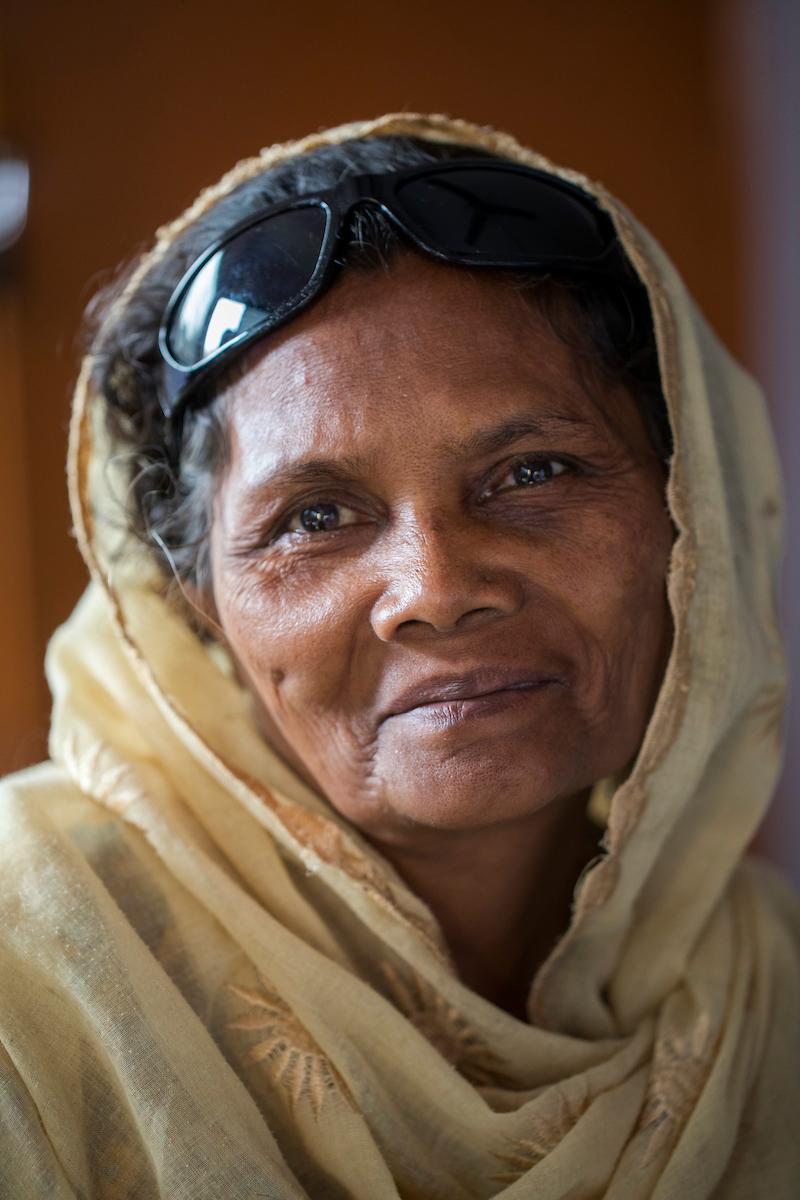
M orium Khatun,a 40 plus Rohingya woman with bilateral cataract,was blind for 10 yearsand had not seen her son M ohammad, 14,due to her predicament
W hen the violence began in her village,M orium and M ohammad needed to escape M yanmar quickly
Soldiers from the M yanmar army had closed in on their home.As the family fled to Bangladesh, M orium?shusband was killed by the military.
M orium and M ohammad knew they could not make the arduous journey on their own.So they hired someone to help M ohammad carry her on the journey
?W hen we came from M yanmar, we hired a person and tied my mother in a longyi (a type of sarong) and tied it between bamboo poles,?M ohammad said.

The makeshift stretcher saved his mum?slife.
?It took 12 days W e had to use several longyi as some broke.? They crossed the hilly areas of the border and through electric wire to reach Bangladesh.
Safe in the refugee camp near Cox?s Bazar in Bangladesh, M orium was able access the sight saving surgery she needed.
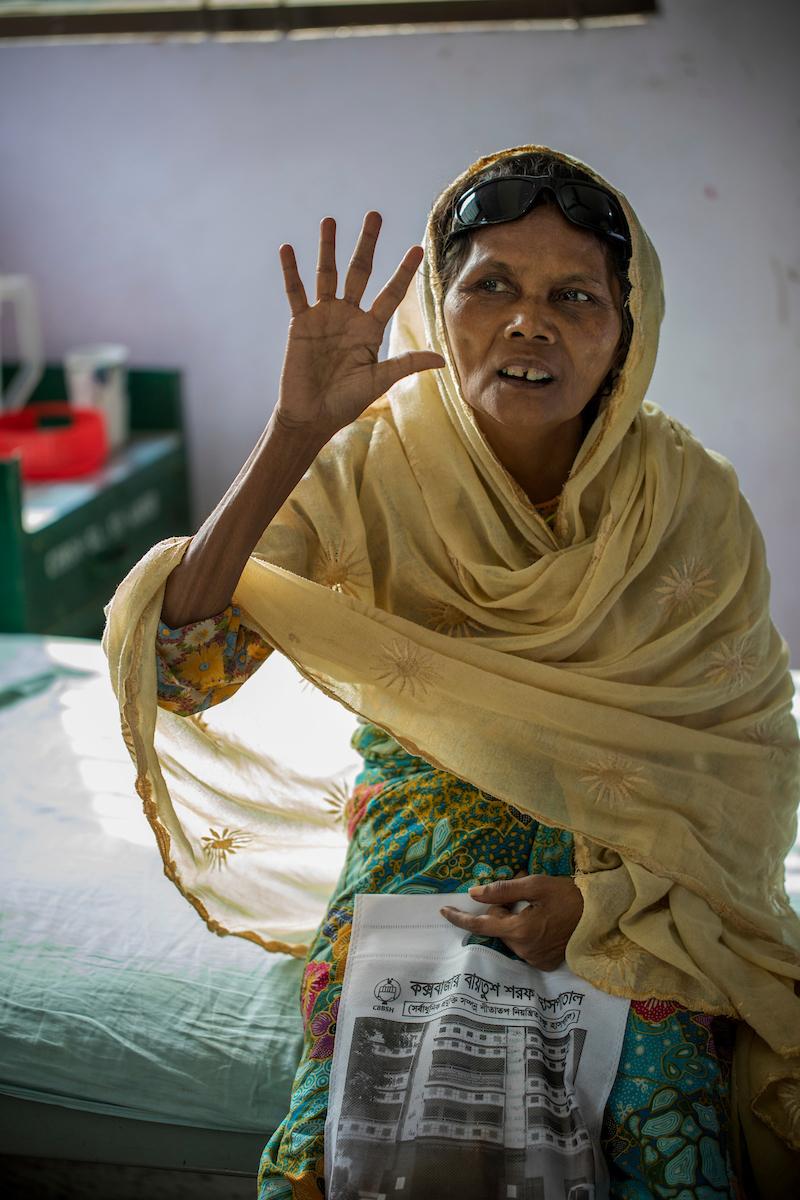
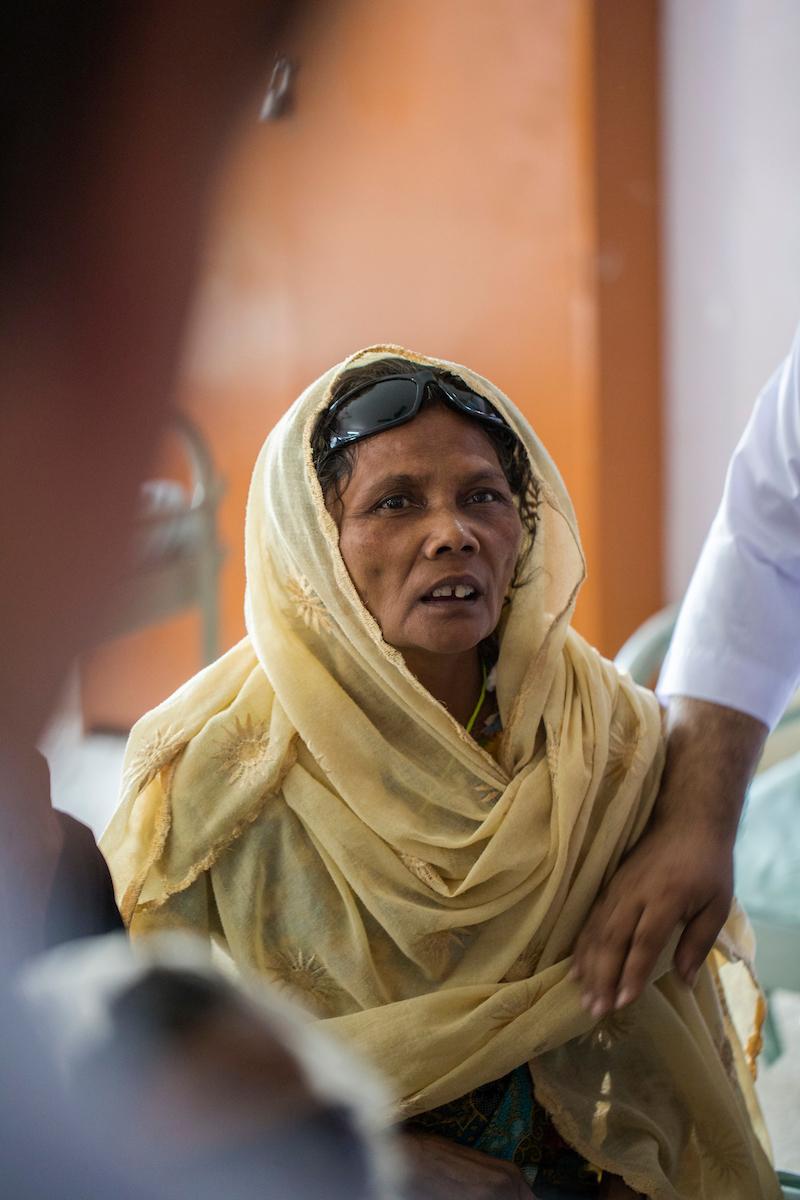
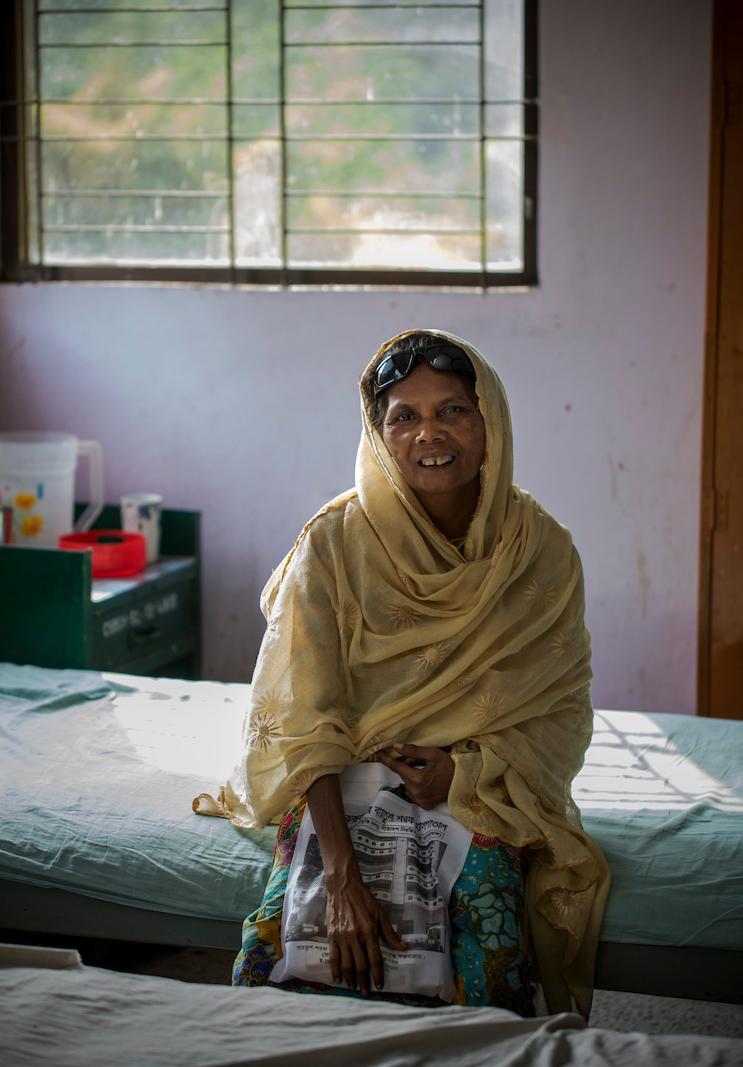
The Fred Hollows Foundation was the first organisation to treat some of the thousands of Rohingya people with eye conditions,including M orium M any queued all day in the hot sun to have their eyes screened, hoping for surgery to restore their sight Local doctors estimate 50,000 Rohingya people need cataract surgery
After 10 yearsof blindness, M orium was desperate to see M ohammad for the first time since he was four years old ?I am interested to see now what he looks like.He will have really


After the surgery, M orium was delighted ?I am so happy. W hen I go back (to the camp),I will see everything I?ll be so happy because everything is new ?I am so happy from my heart ?
The journey to M orium?s home deep in the refugee camp takes about 90 minutes,through security check points and across the dusty makeshift roads.
The home she and M ohammad share is a simple structure of bamboo and canvas,one of thousands dotting the landscape. The small room has a raised platform and a fire pit for cooking. M orium described the moment she finally laid eyes on M ohammad
?I wasa bit confused when I saw him ? my boy is very handsome I am very happy to see him.
?He is better looking than his father,? she added, as she playfully touches his face with her hands
M ohammad was also pleased that the surgery has enabled his mum to care for him and take over many
of the tasks he has been trying to do.?Her food is tastier,?he said, and they both laughed ?Before the cataract surgery I couldn? t cook so he had to help me,?M orium explains.?Now I can cook and support my family?

M ohammad describes the egg curry his mother made on her first night and he hopes she will make chicken curry tonight It is clear that sight-saving surgery has strengthened the bond between mother and son.
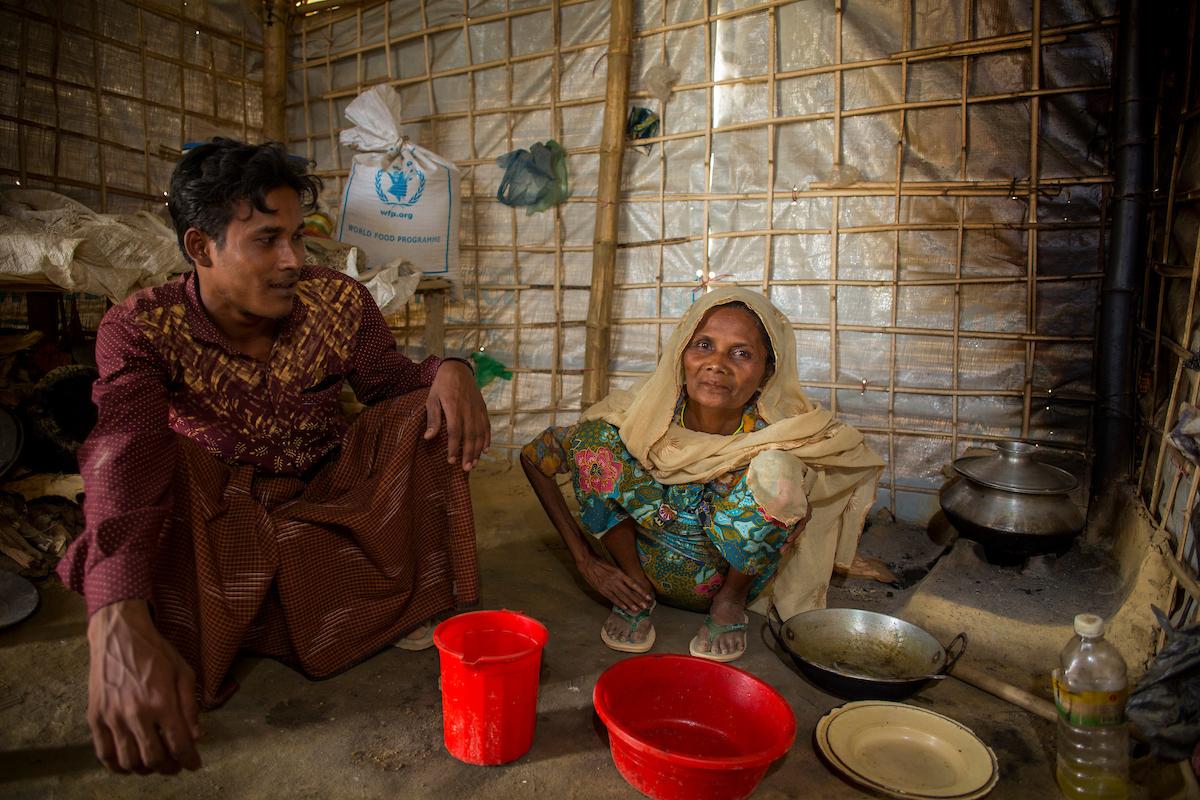
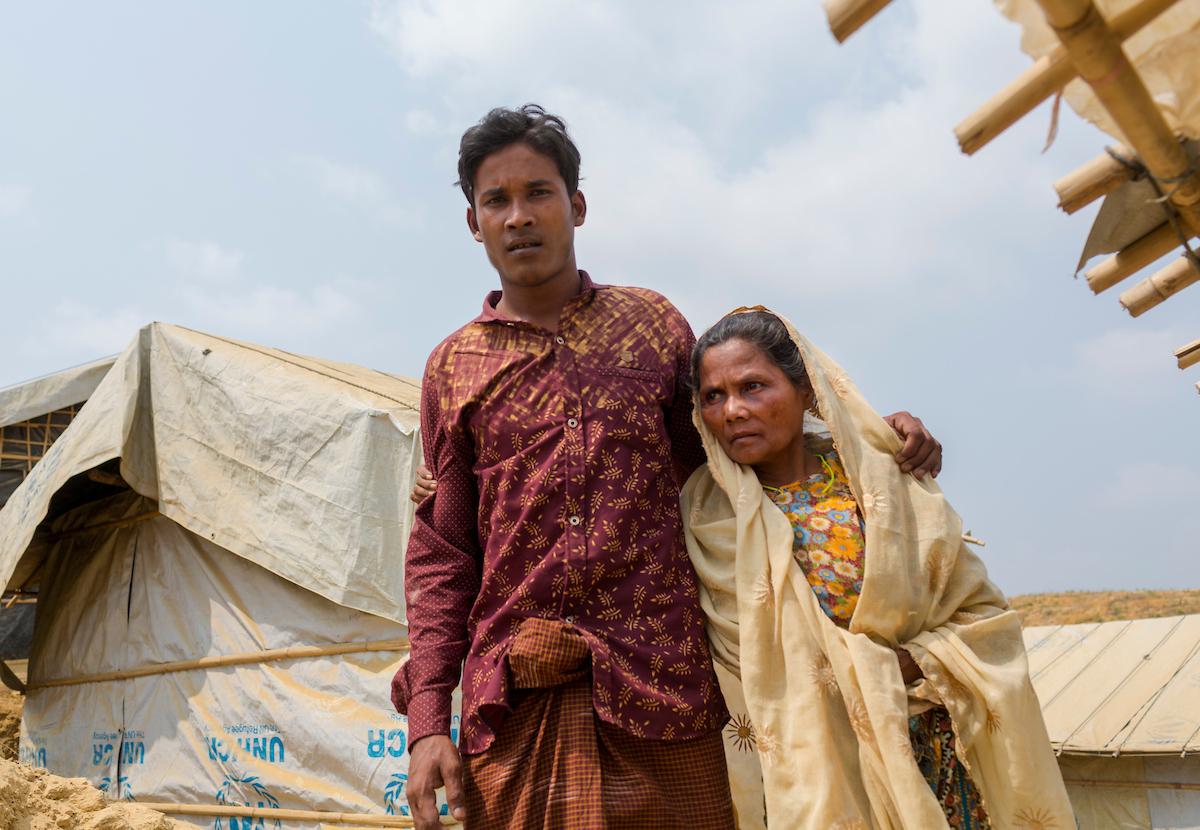



TheFred HollowsFoundation'sHead of PublicPolicy and Advocacy,Brandon Ah Tong,in conversation with Sabin M uzaffar about thecritical roleof human-rights-based policy-makingand how advocacy playsan important part in improving publichealth,especially eyehealth interventions.
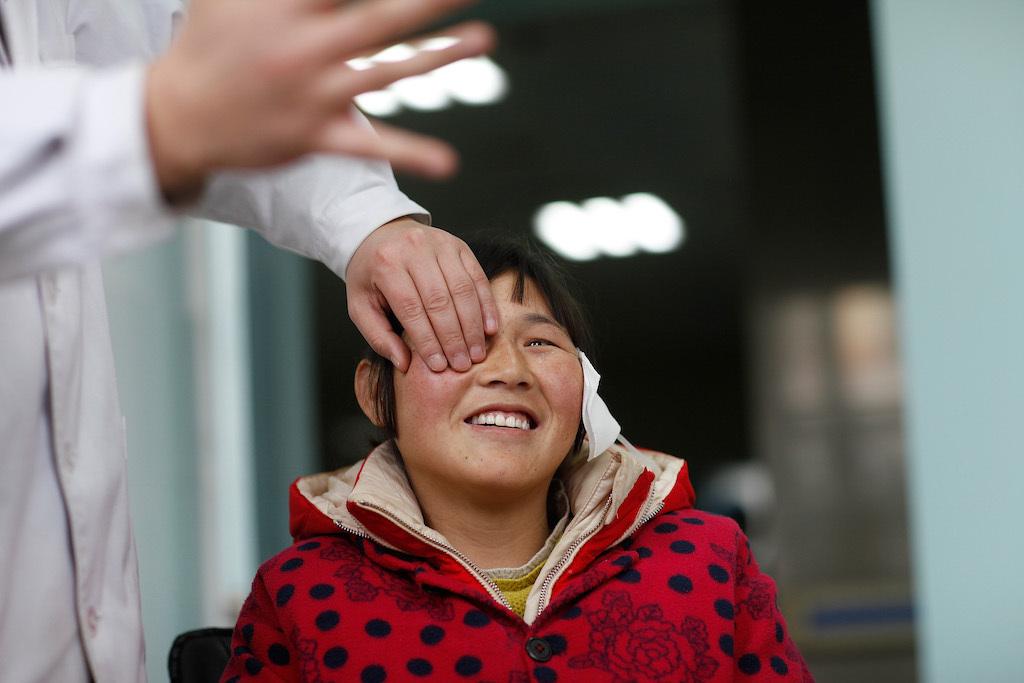

Br an don , you have un i que r ol e ? n ot just headi n g publ i c pol i cy an d advocacy at the Fr ed H ol l ow s Foun dati on ? you ar e al so a stak ehol der r epr esen ti n g the vi si on i m pai r ed an d bl i n d com m un i ty Can you tel l us a bi t about your sel f?
I've actually been working in the eye health sector for 15 plus yearsnow Probably half of my time has been spent more in the blindnessand disability areas from the human rights side.And then the last probably half of that time has really been in the eye health side of the spectrum. But really,I like to sort of see it as part of the entire picture around eye health from blindness
through to treatment. M y background in terms of formal training is in social sciencesand policy,so I've always worked in this space.I'm also blind myself I have a condition that I was born with But I'm the only person in my family with this condition,even across all my extended family I only started having my vision deteriorate,probably in my 20s. So when I was about 26 or27,I wasstill able to drive,play rugby and all sorts of things.But then, my vision started to deteriorate pretty quickly.Over the following ten years,in my mid 30s,my vision deteriorated Now I only have light perception and it'snot very clear.It'sdefined as

sort of like perceptional blindness So I guess from that from that angle I've got a bit of an interest in both the experience of living with blindness and an affinity towardsthe work that we do here at the foundation,which is a primarily around prevention and treatment

To be able to restore sight for people who haven't had access to eye health services and treatments in the past It is quite a unique insight I think.

You'r e tal k i n g about pol i cy. W hat i s the i m por tan ce of that con n ecti on betw een pol i cy an d advocacy as far as publ i c heal th i s con cer n ed? An d of cour se, by exten si on , eye heal th an d br i n gi n g i n your ow n exper i en ces to i t as w el l
I like to think of the role of policy as being the kind of high level settings or parametersthat try to guide actions towards a particular outcome.The work that I've been doing for a long time is really about trying to move,create,adjust and you know push government level policy towards the particular settingsthat will either improve access to eye health or try to provide clarity around,for example financing.How eye health should be financed or how can we improve the workforce.I sort of see that high level settings provide such
direction for programmatic or project based as well as other public health interventions.
So that's the role I see of policy and of course you need the macro and the micro (aspects) They go hand in hand and work together On the one hand,it's really important to try and provide policy guidance or to advocate for a certain policy,but what really is important is how that policy is implemented in practice M y own particular interest and I think my own sort of skillsand background is towards the macro level;a higher level of settings and in terms of why it's important to do that for development. W hy it'simportant to have that macro or that policy level is because if you're able to find a system level or systemic way of creating change across multiple settings, across multiple actors,I kind of see that as a good way or efficient way of providing faster access to change
This is why I find myself gravitating towards policy work and if I just touch on the advocacy point as you sort of mentioned before.Advocacy is really the act of persuading or influencing decision makers towards creating those changes or pushing towards particular settings.Here at the Fred Hollows Foundation,we talk about advocacy being a managed and deliberate process.You need to know what you're aiming to
Advocacy is r eally the act of per suading or influencing decision maker s towar ds cr eating those changes or pushing towar ds par ticular settings.
achieve, need to have a clear sense of who those decision makers are You know, what information or evidence would help to persuade them.But you also need to understand why.
You're looking to make those changes,and I think advocacy is really the art of trying to bring all these things together to create cohesive change
If I think about my own role here at the Fred Hollows Foundation. M y role is the head of public policy and advocacy.It is really at a global or multilateral level.I often think of or talk about the work that we do in terms of normative change and by normative change,I mean in terms of trying to look at how we reframe how we talk about eye health How we talk about blindnessand vision impairment.You know this space that we see ourselves in and I can give you an example of what I mean by that.If you go back,let's say to five years.The Sustainable Development Goals (SDGs) had been released in 2015.W e have these 17high level goals,169 targets that sit underneath those and then there's like another 232 indicators.W e can definitely see eye health across many,many goals and see how it contributes to them But the reality is the world hasn't really seen eye health in those terms before.
At the Fred Hollows Foundation, my team is working with others in the sector,like the
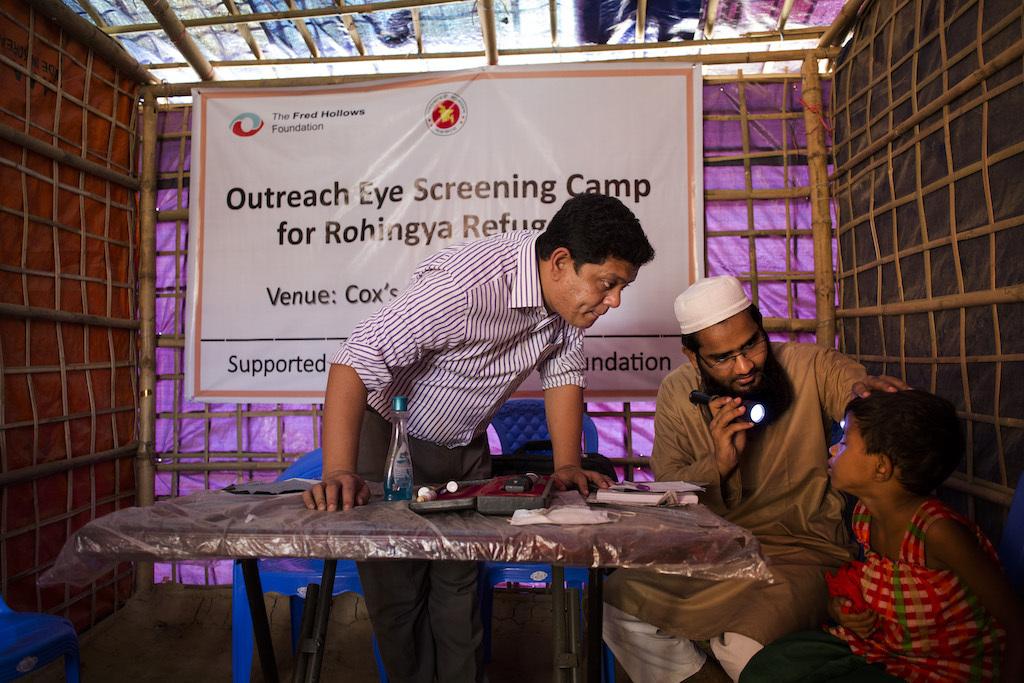

International Agency for the Prevention of Blindness and the W orld Health Organization as well It's really been about (placing) eye health within the SDG's There has also been research done W e have supported the inclusion of eye health in the SDGs in a resolution passed by the W orld Health Assembly back in 2020, which is actually the decision making body for the W orld Health Organization.W e also supported work with The Lancet Global Health Commission on Global Eye Health that really tried to take a step forward and seeing eye health as a development issue.The UN General Assembly also adopted its first standalone resolution that was dedicated to eye health itself
The focus was on how eye health can be an enabler to accelerating progress towards achieving the SDG's.So now you can see five years ago eye health wouldn't be seen in that light at all Now you can see how eye health is being reframed.There are resolutions at the global level that talk about how eye health is relevant for the SDG's and that normative shift is

coming back to the conversation about policy W hat our team is really trying is to create that normative change and also embed this vision (of eye health asan enabler) in policy as part of our implementation strategy.
H ow di d your jour n ey at the Fr ed H ol l ow s Foun dati on began .
I have been working at the Foundation for over six years now.Before working at the Fred HollowsFoundation,I worked for the national body for eye health and vision care, which is called Vision 2020 Australia That organization focuses domestically,but it also has a role in advocating and providing guidance around what the Australian government does in the region.
So there's a global component there as well and I was the Director of Policy and Advocacy at the Vision 2020 Australia and Fred Hollows Foundation is a member of Vision 2020.I had worked with the Foundation for quite a bit And at the time,there was an opportunity to move to the Foundation to do some of this more,more of the global multilateral work I jumped at that opportunity.

You need different people with different skills They have different interests with different experiences and backgrounds to sort of come together I gravitate towardsmore systemic work so the opportunity to try and shape global policy was hugely exciting for me and that's how I started

The ter m hum an r i ghts based pol i cy i s a cr i ti cal ter m that n eeds to be un der stood an d i t i s essen ti al that w or k to be i m pl em en ted i s don e thr ough thi s l en s. Un der stan di n g thi s appr oach i s i m por tan t, w oul dn ? t you agr ee?

This is really a good question.I see human rights as something quite evolving W e have international human rights treaties and international human rights norms that go back 70 years through the United Nations system itself.On the one hand,it seems that they are quite static,but from another perspective. How you actually embed a human rights approach to your work evolves over time By that I mean if you look at the central tenant of the Sustainable Development Goals, it's around this concept of leaving no one behind.Now that in itself is a human rights concept For us,how we look at taking a human rights approach, it's about ensuring that you know different
People,whether you have money or you don't have money,where you live,your ethnicity,your ethnic background,your gender whether you?re a man or a woman,or otherwise,we have a role to ensure that any of those backgrounds or those attributes do not interfere with the way in which you have access to eye health and I care.Taking a human rights based approach is our way of ensuring that availability and access is open to
everyone W e will try and put specific things in place to make sure that people don't miss out or people aren't left behind So again,I think by taking a human rights based approach at the Fred Hollows Foundation,we are making it our responsibility,an obligation to try and do whatever we can to make sure that people from different walks of life or different backgrounds,that
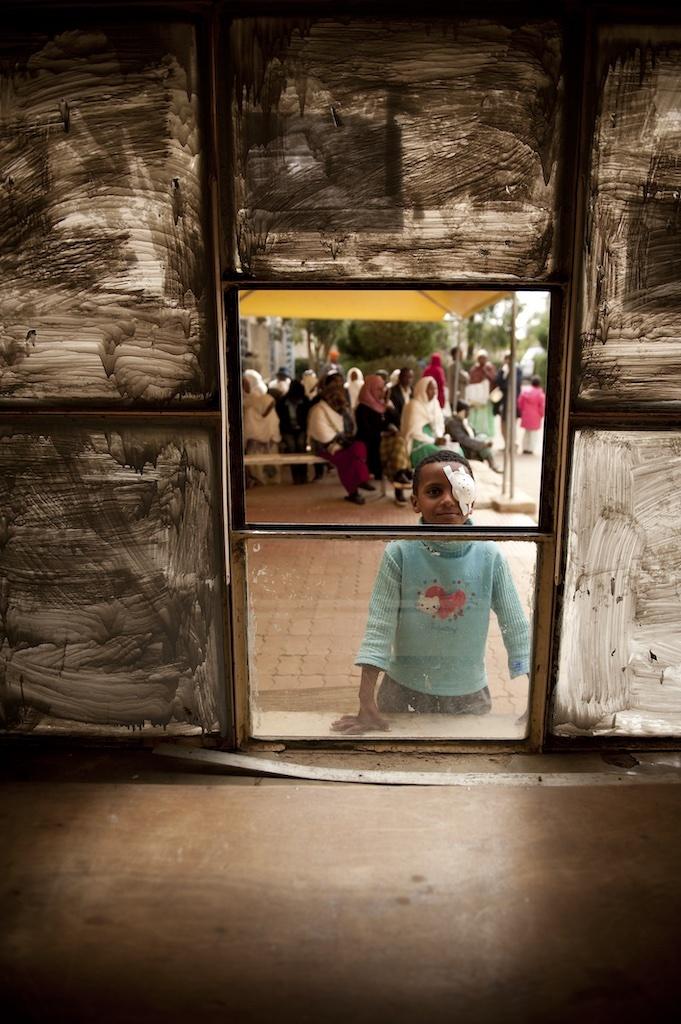


It also extends to the work especially working with our partners and countries Our role is really kind of trying to create systemic change and health system change.W e work with partners around training,health professionals,so that same concept of ensuring that people who need our health services can get access to care That same idea flows through to who can we help to target training doctors and community health workers and nurses and so forth Talking about health workforce, about 70 percent are made-up of women,but only 25 percent of all health workers are in those more senior roles,which by extension means that we need to do something specific about trying to ensure that women's leadership is recognized.And, that we create pathways for women to not just get into the workforce,but also find routes to leadership positions.Therefore, in taking a human rights based approach,we are trying to be deliberate about what we do in our work to ensure that people
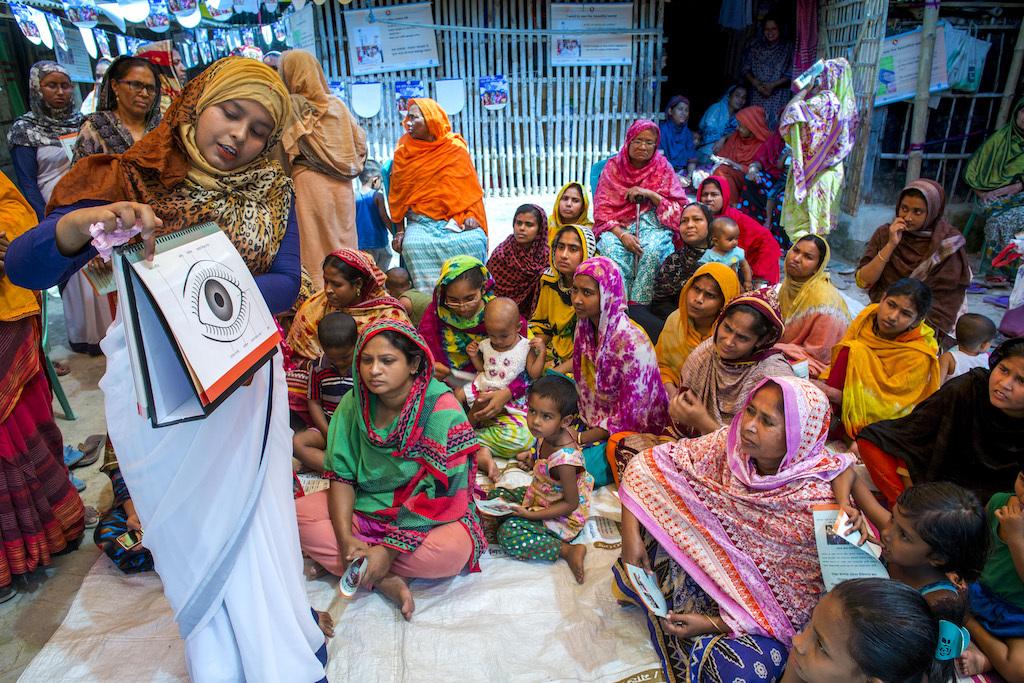
are included.

Thi s has been an en l i ghten i n g di scussi on an d un for tun atel y I com e to the l ast questi on The foun dati on i s cel ebr ati n g 30 year s of chan ge m ak i n g w or k
Do you have an y l ast w or ds?
Interestingly,Professor Fred Hollows,the man himself actually comes from the same town from where I hail in New Zealand It?s a small town called Dunedin.This is a very nice link with Professor Fred,himself.But you know,I think we as a foundation really take in the way with which Professor Hollows approached his work.I mean,he was an ophthalmologist and he really championed the need to go further,to take the next meaningful steps and meaningful action
So I think working for the foundation,which is an embodiment of Professor Hollowshimself and his personality is really exciting because our culture is that we need to try and push ourselves harder to do more and do better So I find that,really inspiring

and quite humbling to be part of its culture There are so many statistics that we can talk about the work we do.W e have restored sight for over three million people W e have provided antibiotics for more than 200 million people.Even if we think about the last five years,we have trained more than 730 surgeons M ore than 230,000 community health workers have been trained.So for me again it comes back the pride of being part of an organization that strives to do more and do better.
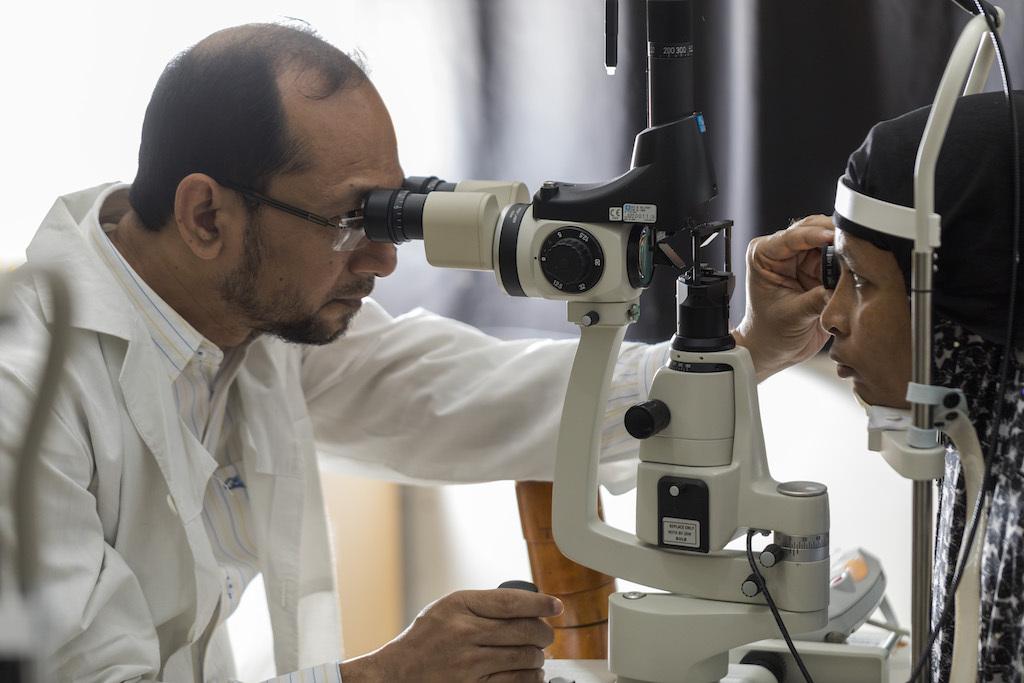
The interview hasbeen lightly edited for clarity.



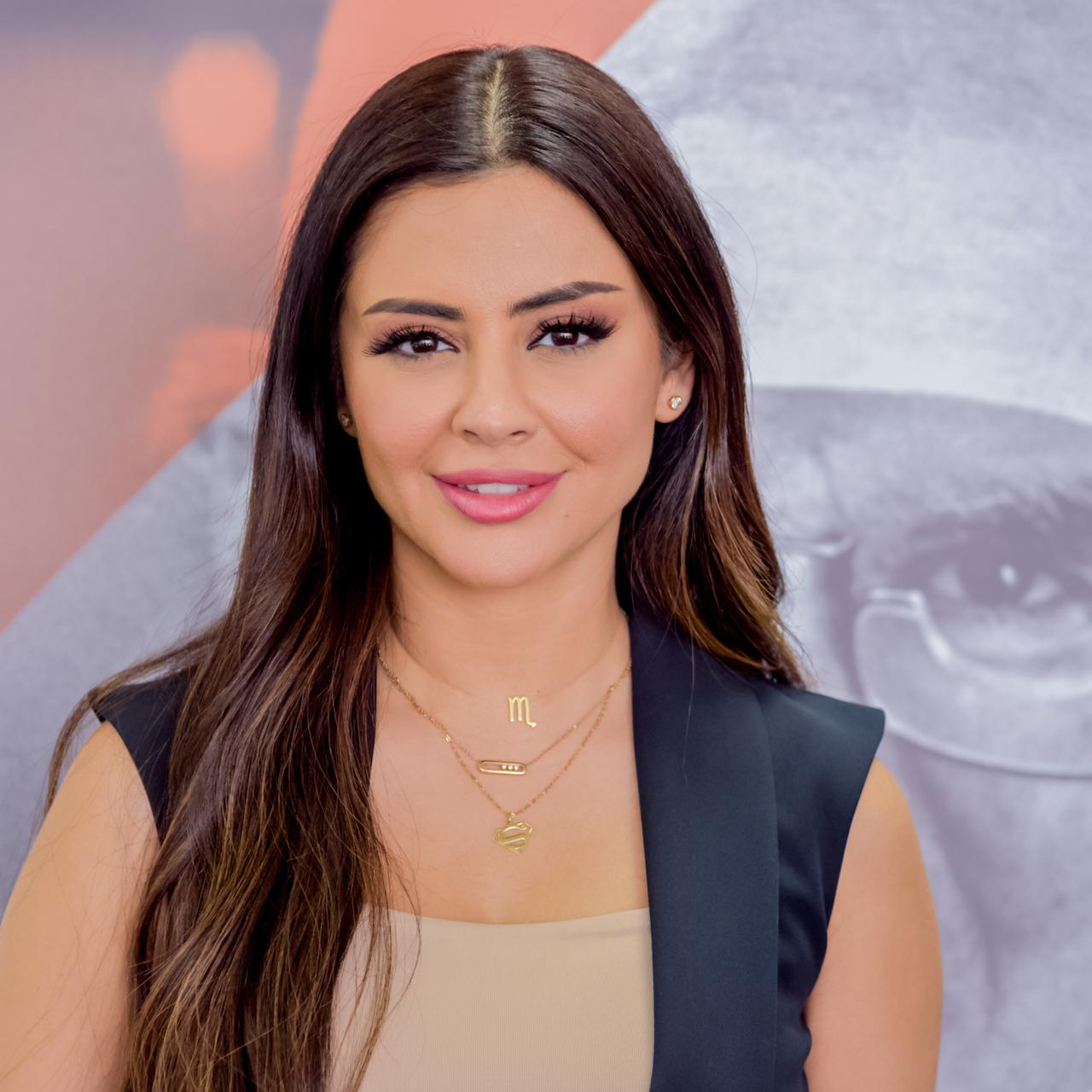
Let us begi n by you tel l i n g us about your sel f?
M y name is Shahd Al Jumaily,I?m an Iraqi architect,Events planner, and TV host.I?ve been living in the UAEfor over 15 years,and I consider it my second home where I studied and started my business
W i th your i m m en se body of w or k as a m edi a per son al i ty an d i n fl uen cer , w hat ar e som e of the hi ghl i ghts of your stel l ar car eer ?
I?ve been through many different stagesin my career and I loved watching it evolve as I got older, from starting my own business as a student to opening my events
that it sheds light on women in many struggling countries W e started by discussing our ideas and future projects,which can help promote this vision in the best way possible,and the relationship grew from there.
W hat does i t m ean ?en di n g avoi dabl e bl i n dn ess an d vi si on i m pai r ed?to Shahd?
It means doing the best we can,all of us as individuals,to help people get their lives back and give them a better future This is the power of vision,it improves not only the life of the person suffering,but also everyone around him/her,their families,and the society as a whole Especially,90 percent of blindness and vision loss can be prevented or treated using known solutions
Bei n g a m edi a per son al i ty an d i n fl uen cer , how can you pl ay an i n fl uen ci n g r ol e to con tr i bute to The Foun dati on ?s vi si on : cr eate a w or l d i n w hi ch n o per son i s n eedl essl y bl i n d or vi si on i m pai r ed
company after graduation,each step was a highlight for me at the time One of the thingsI value the most is hosting my talk show on M BC Iraq,because I was able to discusscontroversial topics that are mainly focused on women and gave them a platform to share their stories.
You have been appoi n ted r ecen tl y to becom e The Fr ed H ol l ow s Foun dati on ?s am bassador . Tel l us how thi s r el ati on shi p began an d w hy?
I washonored to be chosen by The Fred Hollows Foundation to be one of their ambassadors in the M iddle East.I was more than happy to join this role because of the incredible work and values that this foundation focuses on,especially
I think the main focus is to deliver the message,as simple as that Awareness is a very powerful thing,sometimes there are no solutions simply because people aren? t aware of them Our mission is to shed light on the issue,and explain how simple and attainable the solution is.That on itsown can change lives


The Foun dati on i s cel ebr ati n g 30 year s of i m pactful chan gem ak i n g thi s year , an y l ast w or ds?
I?m beyond proud of all the work that The Fred Hollows Foundation has achieved throughout these years,and even more proud that I can be a part of it and support in any way possible.I hope that this vision and message continues to grow,reaching and helping as many people as possible from all over the world,that?s the best thing we can do for our societies and people
"Doingthebest wecan,all of usasindividuals,tohelp peopleget their livesback and givethem abetter future Thisisthepower of vision,it improvesnot only thelifeof theperson suffering,but alsoeveryone around him/her,their families,and thesociety asa whole."


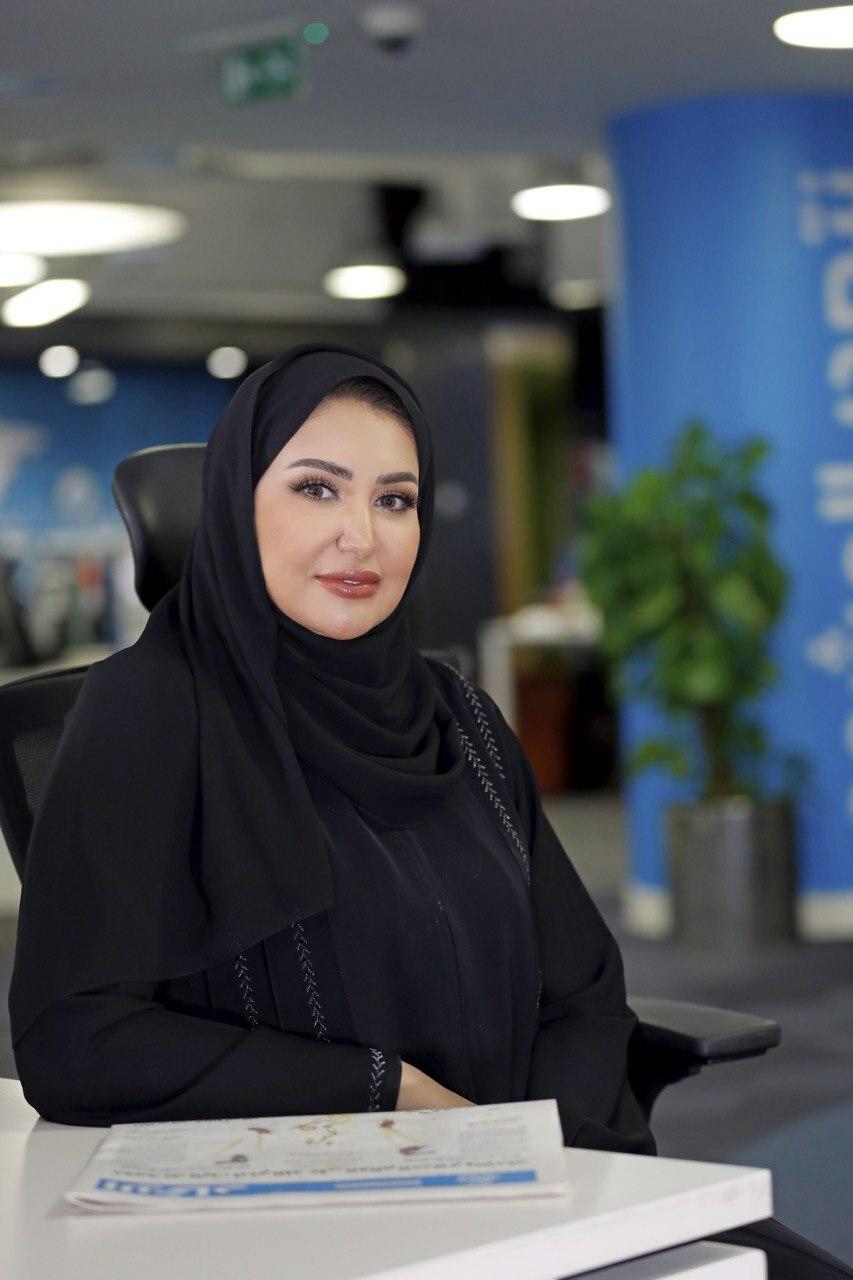
I am a simple, hardworking, and optimistic person who loves to help others. I always strive for integrity, perfection, and success. Wit h your im m ense body of w ork as a m edia personalit y and influencer, w hat are som e of t he highlight s of your st ellar career?

Currently I´ m working for Abu Dhabi Media and specifically as a journalist for Al Ittihad
in a male dominated workplace. Currently I am a member at UAE Journalists Association, Federation of Arab Journalists as well as the International Federation of Journalists. I was awarded the Best Anchor in Yas Excellence Award for 2019. I was nominated for ?outstanding employee?award in Dubai Government Excellence Award 2009 I won the first place in Habib Al Reda Award for Media Creativity for the year 2007
Furthermore, I was the first Emirati to who published a post graduate research on Expo 2020 Dubai And one of my work experiences that I´ m most proud of is my extensive media coverage of eye health projects in North Africa over the years of 2018 and 2019.

You have been appoint ed recent ly t o becom e The Fred Hollow s Foundat ion?s am bassador. Tell us how t his relat ionship began and w hy?
Newspaper I have more than 15 years of experience as a news anchor and previously hosted a number of local programs at Sama Dubai, Dubai Channel, Emarat TV and Abu Dhabi TV; not only covering local news but also regional and foreign affairs.
I was one of the first Emirati female anchors who specialized in covering financial and economic news. In fact, I was the only female
To be selected as the first Emirati and the first woman from the Arabian Gulf for this role made me feel extremely happy I found that it is worth participating and will give me a great opportunity to help in creating a world where no person is needlessly blind or vision impaired. Currently 43 million people around the world are blind and 1.1 billion live with some form of vision loss About 90 per cent of those affected live in low-income and middle-income countries. Women and girls account for 55 percent of the world?s blind and vision impaired. If we don? t act now by 2050 it is estimated more than 61 million people will be blind. However, The Foundation can fix the problem
More than 90 per cent of vision loss is preventable or treatable and we can address it using existing highly cost-effective interventions I hope I will play a role to support eye health cause and the Fred Hollows Foundation is giving me the opportunity by allowing me to optimize my influence, media skills and expertise to serve important cause at regional and international levels The Foundation is a leading international development organization that has restored sight to more than three million people around the world This helps me invest my influence capacity and use my digital media platforms to introduce the foundation and raise public awareness and education about avoidable blindness and vision loss. That was the first reason why I accepted this role The second reason is ending vision loss is a cause that is close to my heart. Both of my parents suffered from avoidable blindness and received many surgeries to restore their eyesight. Therefore I would like to help who are in need to access eyecare services.

As I mentioned before, this cause is very near to me because those who suffered from vision loss were the closest people to my heart. As an ambassador, I will help to shed light on vision loss and enable people to understand the importance of ending avoidable blindness. I will always strive relentlessly to educate the world about the impact of restoring someone sight
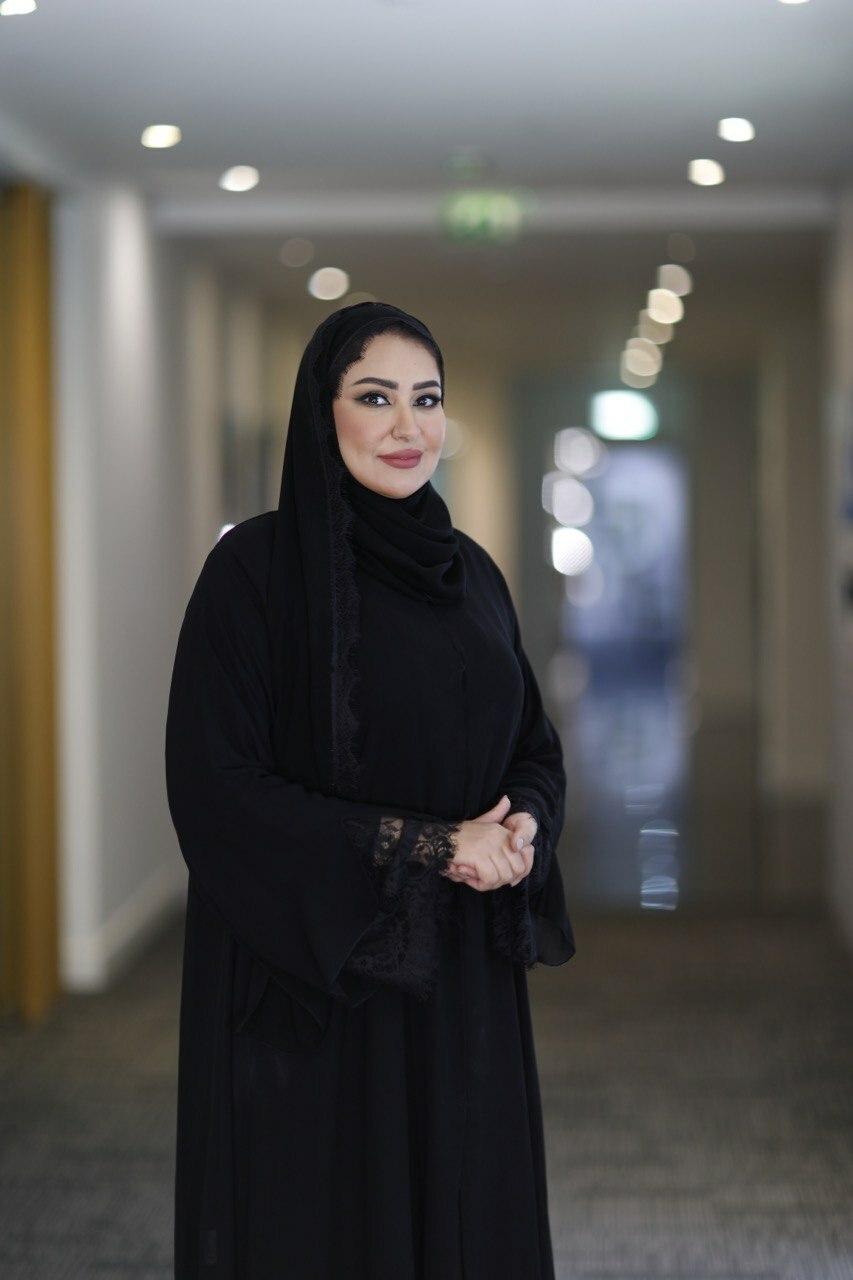

In addition, it is a very honorable humanitarian work, and I will put all my knowledge and what I know to serve this mission through my personal experience with my parents' illness, and my professional experience as well as through my media coverage of eye health projects
Being a m edia personalit y and influencer, how can you play an influencing role t o cont ribut e t o The Foundat ion?s vision: creat e a w orld in w hich no person is needlessly blind or vision im paired?

Since I joined the Fred Hollows Foundation last December, I have already started to present everything that highlights the great work of this leading international development organization and one of Australia?s most respected and trusted charities I have been telling and sharing the story of The Foundation, inequity in eye health, leading causes of blindness, challenges, solutions, and its impact around the world I utilized my social media platform and conducted interviews with local media outlets. Furthermore, I have been actively participating at The Foundation?s public events, the latest of which was a panel discussion held at
Expo 2020 Dubai, titled ?Media and Development in the Arab World?where we organized around table with The Foundation and journalists from the Emirates Journalists Association and Pan Arab media to discuss and debate:
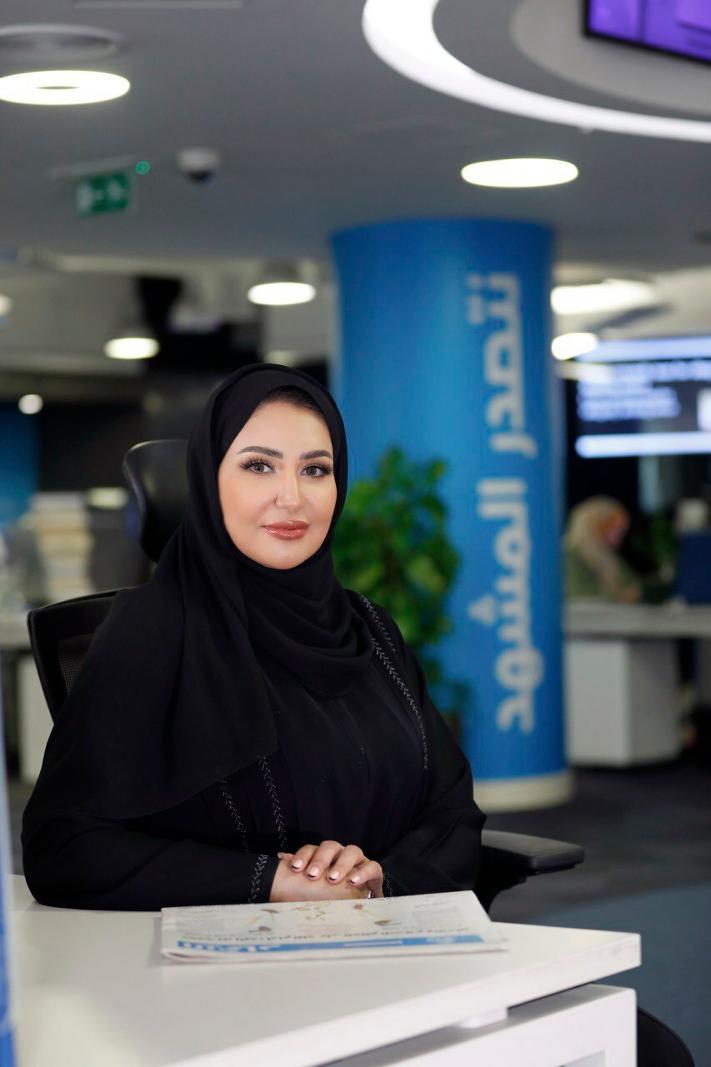
·The relationship between the media and international development sector: reality, challenges, and opportunities.
·Creating and shaping development and humanitarian news: Are international organizations a news maker or a source of news?
Building the capacities of Arab youth in the field of international developmentmedia.
The panel concluded with important recommendations and solutions to serve the future of international charities, including The Foundation, and how iNGOs should build a comprehensive and sustainable partnership with the national and Arab media in order to address development issues effectively
The Foundat ion is celebrat ing 30 years of im pact ful changem aking t his year, any last w ords also focusing t hat ?
I would like to say happy 30th anniversary to our wonderful organization and wish for its continuous success in helping people to see again. I hope together with other ambassadors we will be visiting eye projects soon and share stories and voices from the field to show the impact of restoring someone sight
Photography by: Ali Obaido

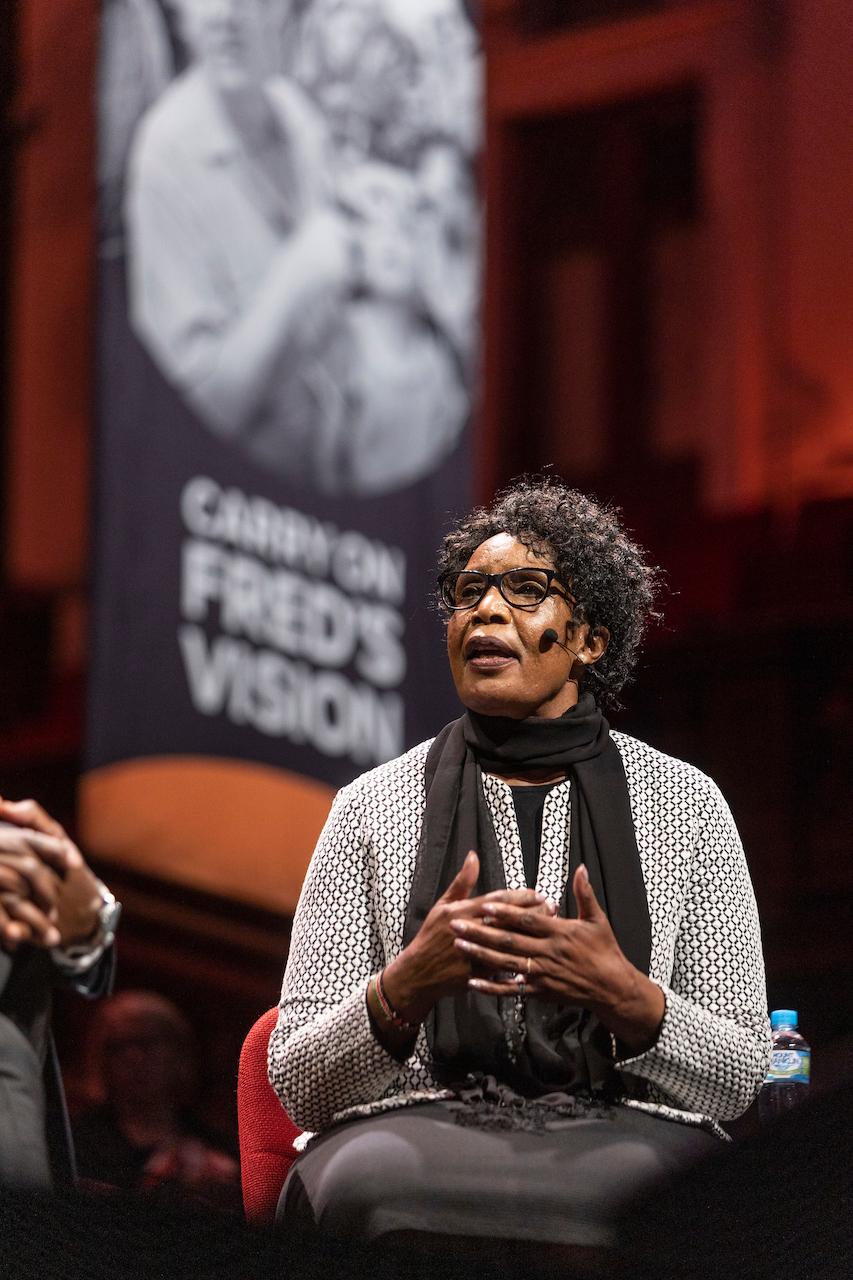
When COVID19 hit countriesacrosstheworld, thegreatest impact felt was on healthcareprogramsdue toresourcediversionsto counter theeffectsof the pandemic.Healthcare workerswerereassigned to copewith ailingnationsor non urgent healthcare servicessuspended either becauseof reprioritization or simply duetoinsufficient personal protective equipment Eyecareservices and programsfaced similar situation.Twoyearsdown theline,whilethepandemic isfar from beingover,itsrage hasrelatively abated Work on theground havealready begun.Thebiggest questions arehow doemergencies impact programsand what is theway forward? Cluster Lead Global Program,(Kenya,Rwanda, Burundi,Tanzaniaand Uganda),TheFred Hollows Foundation,JaneOhumain conversation with Sabin Muzaffar about the importanceof designingand implementingprogramswith apeople-centric, development approach in a world embroiled in emergencies?man madeand otherwise.
I w an ted to star t w i th an over al l pi ctur e as far as heal thcar e an d by exten si on eye car e i s con cer n ed.

All conversations begin with the pandemic Fortunately,the world is now seeing a decrease in COVID infection rates.Thankfully, we have also seen a decrease in many African countriesincluding Kenya There is much that has been lost:people,friends, livelihoods.Countriesare struggling to recover Then there is also the Ukraine war which has also affected many healthcare programs including ours.So we've had to look into the impact on our programs from the point of view of how communities are accessing services.W e have had to look at it holistically to re strategize our programming W e have gone deeper to see and understand patients as well as communities?experiences to determine how our programs can reach the most vulnerable,when people are unable to reach our services due to various reasons
The Foundation is committed to ensuring its programsconsider the needs of the poorest and most marginalized,including addressing those complexities relating to issues of inequity in access to eye health services so that we can appropriately design our programs to respond to those needs.

You have touched upon a ver y i m por tan t poi n t. In deed w hen cr i ses l i k e the COVID pan dem i c, Ebol a or even m an -m ade con fl i cts occur ; heal thcar e ser vi ces that seem n on -ur gen t ar e of cour se de-pr i or i ti zed. On ce the escal ati on subsi des, the i m pact i s then fel t on such pr ogr am s. So tak i n g thi s i n to accoun t, how does the Foun dati on w or k ?
If you look at Kenya and the region or specifically speaking Rwanda,Burundi,Uganda,and Tanzania,because this is the
cluster I work in.The impact of health challengessuch as Ebola or COVID is massive on people and not just people;but also the leadership even before it reaches the communities.So the focus changes;which essentially means all decisionsand planning are geared towards addressing those emerging challenges.
if I step back a bit,looking just at Kenya specifically and the region, there are other emerging issues in healthcare.Issues like alcoholism and depression now fall into the area of non-communicable diseases. Ebola was reported in Nigeria.In Kenya,health challenges are compounded by the fact that we have just had the general elections.So we now have a newly formed government and the leadership is changed W hat we have to see is what the focus of the new regime is.This is why we are continuously advocating and lobbying eye health to be amongst health priorities.
W ith issues like the Ebola outbreak etc,we also have to take into account that people assume
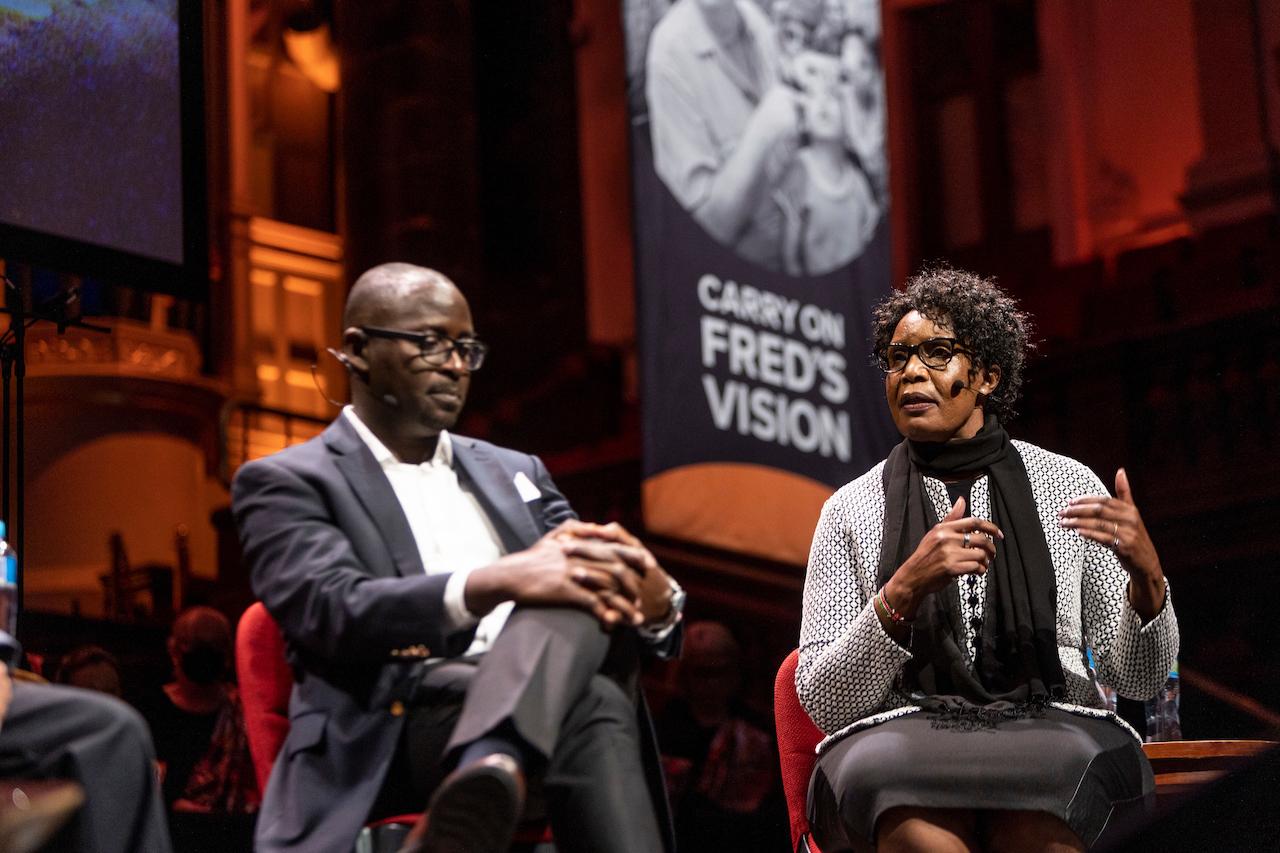

closure of clinics and non availability of healthcare workers and they tend to stay at home
In Kenya,we introduced a new approach.Normally in the country,we used to do outreaches But we have introduced the in-reach approach and work very closely with healthcare workers They are trained to do the screenings and put all the information down. Once we have a pool of 20 to 30 people who need further diagnosis Then the team will come to a central place nearby and this is how we are innovating to reach more and more people
An d w hat happen s w hen the gover n m en t or l eader shi p chan ges?
That is a real challenge In Kenya, once the leadership changes,we have to address at national as well as county levels.W hen new leadership steps in,they bring in new people who might have different aspirations.It can reduce the gains and positive. development made during the

outgoing regime.That said,the good thing is policies do not change But advocacy again is really important and working with the government M oreover, we are advocating to have a national strategic eye health plan not just at the national level;but also the district,county or provincial levels W e are continuously advocating and providing technical support to develop eye health at the county level and integrating it into the national strategic health plan which of course remains intact even if the regime changes Any government that comes in,we already have a framework in place and only have to begin the processof orienting them based on these documents that cannot be changed.
Also,it is really important for us to make sure that our programs are sustainable If we are entering a new country,we make sure that work is done in partnership.For example,we ask the local leadership to refurbish an eye health centre and we (the Foundation) then puts in the equipment.So it?s a 50 50 share.
W e work with a lot of other health organization and I must emphasize here that eye health is a development issue and we cannot work in silos I say this because eye health affects people?s lives,livelihood so integrating eye health into the broader development agenda, into the SDGsis pivotal.This integration is very,very important
W hat ar e som e of the chal l en ges i n eye heal th as far as gen der equal i ty an d fem al e access to eye heal th i s con cer n ed?

At the Foundation,we do conduct gender equity and inclusion analysis,focusing eye care.

There are many challengesthat prevent women and girlsfrom accessing eye care In Rwanda,for example,we are in the middle of conducting a gender equity and inclusion analysis.And one of the preliminary result was that 55 percent of women,as opposed to 45 percent of men,are accessing
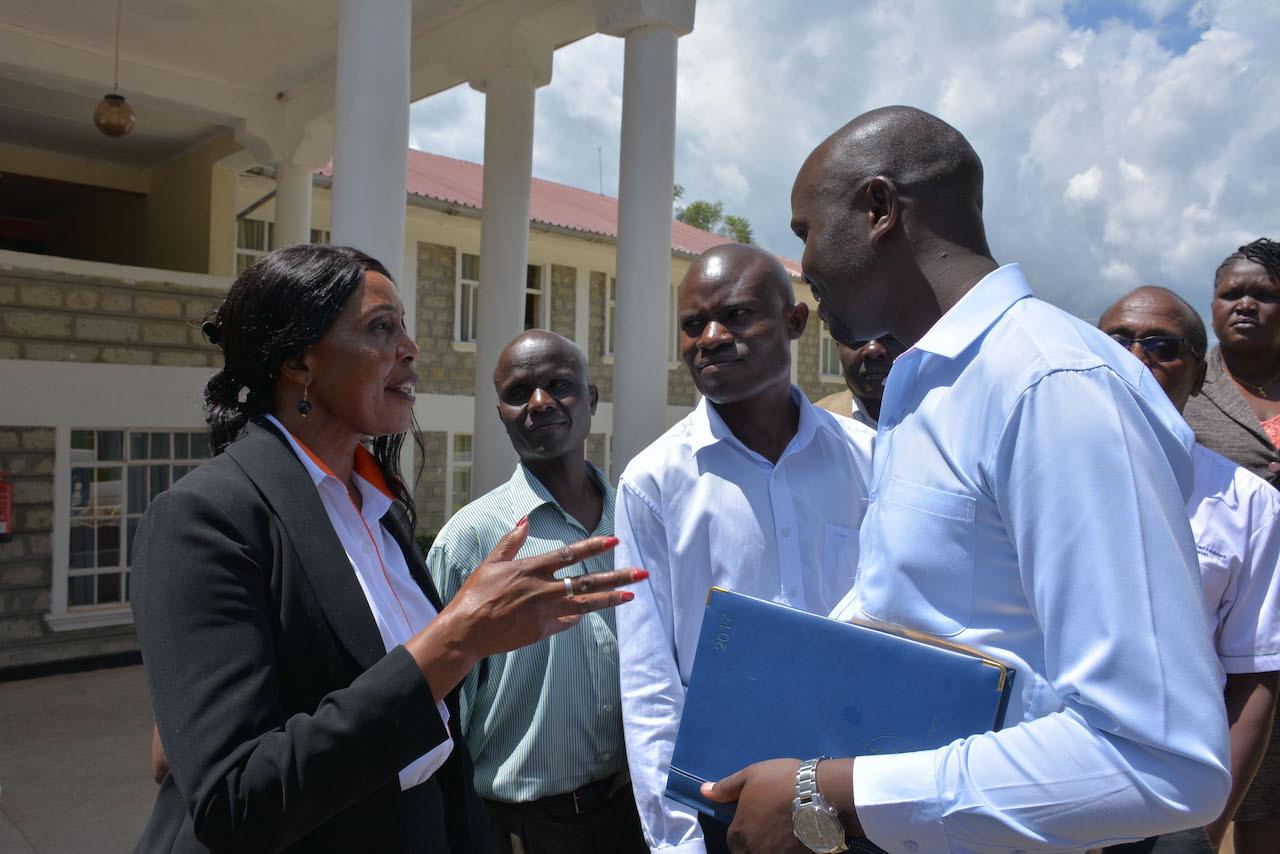
services.This also helps us design our program and also ask why accesslevel is comparatively low as far as men are concerned because we cannot leave men behind either.

There are so many factors affecting women's access If you look at transport,it's always a cost and when we talk of cost,it is cost of transport,cost of services, people have to go,they have to be accommodated,they have to eat. So it is also important to look at cost in general This is why at the Foundation,we are taking the outreach as well as in-reach approach so that services are closer to the people,to bridge that gap
W hat i s your vi si on . W hat n eeds to be don e?
I think everyone is in full agreement that more investment is needed.W e need to have strategiesin place and advocating as well as lobby for more investment in eye care to make sure services are not just affordable but also accessible and acceptable to the entire population and more so for women and girls.W ith
investment comesownership and that is how we can also achieve sustainable development It is also important to make sure that proper services are available.If a hospital does not have nurses or drugs to administer then people tend to stay at home.It is incumbent on the authorities to make sure that these and other services are available and running smoothly.W e also have to raise awareness about leveraging public health insurance,whether in Kenya, Rwanda or any other country There is a public health insurance which people must register to so that they are able to get affordable services.These are some of the systemic issues that really need to be looked into
The W orld Health Organization has a framework on integrated people-centred eye care.It is a great tool that,if adopted,looksat all systems and also at designing services closer to the community

If the IPEC Framework is adopted, we can realize the desired goal of eliminating avoidable blindness collectively within the development sector.
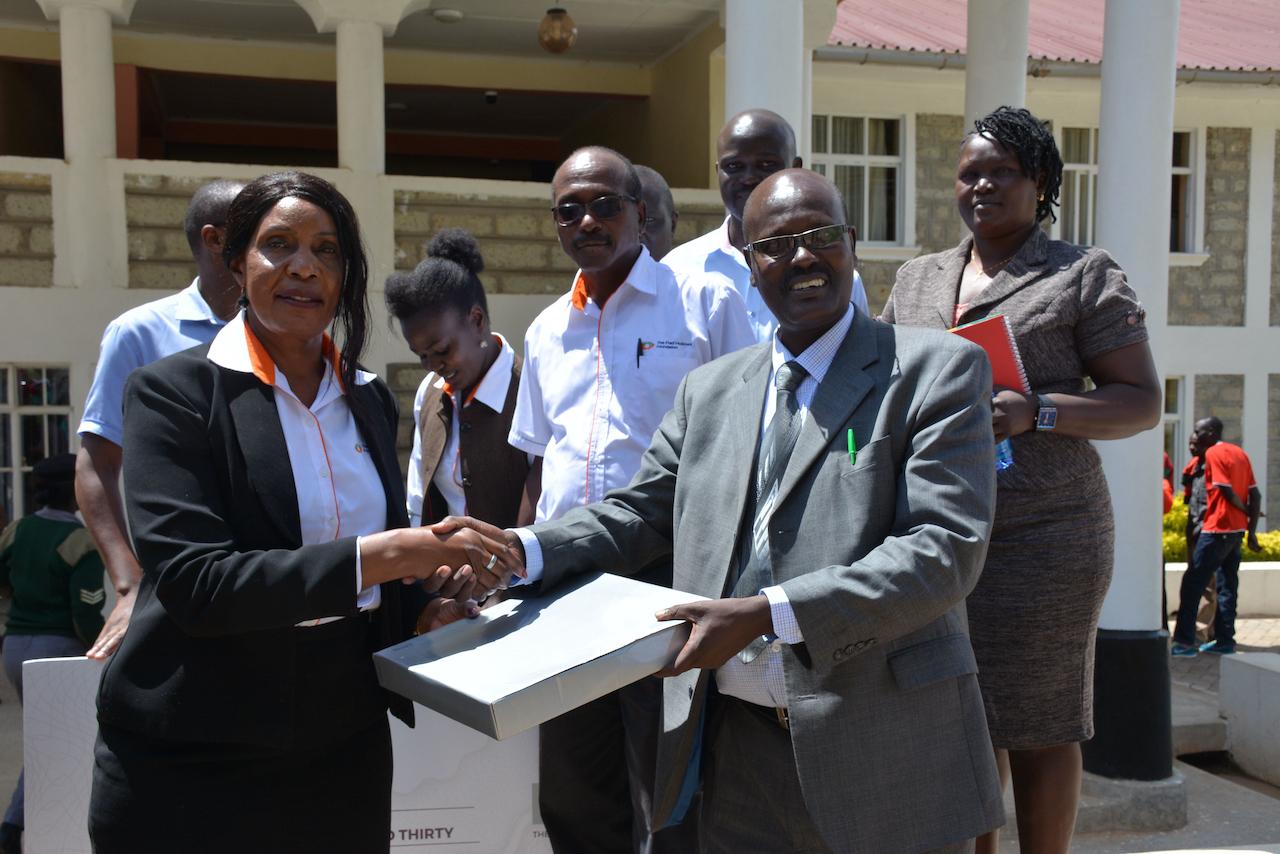



Tel l us about the w or k The Fr ed H ol l ow s Foun dati on does i n Afghan i stan an d Pak i stan , an d how you began w or k i n g i n the devel opm en t sector .

W e started the program in Afghanisation from the Pakistan office back in 2006 I used to write reportsfor the country. Initially I didn? t really understand about the locations, where Jalalabad,Kabul or Asadabd etc were located Then I decided to visit the place and that really changed my perception especially because when you see work on the ground,it simply gives you another dimension of understanding and for sure the impact amplifies Coming from a remote area in Pakistan with many challenges made me realize that I wanted to work at the grassroots,for the people,especially the vulnerable. Village life teaches us to help othersand this is part of who I am Through my government job,I came across many organizationsincluding The Fred HollowsFoundation.W hile
working with the government,I learnt so much about the field of development,one is going to communities and helping so many people.
I saw a great opportunity to work for the Foundation in 2007and now it has been more than 15 great years of being a part of this amazing family The fact that I have been working in this field, with this organization for such a long time,is a clear indication about the impact and my passion for this line of development
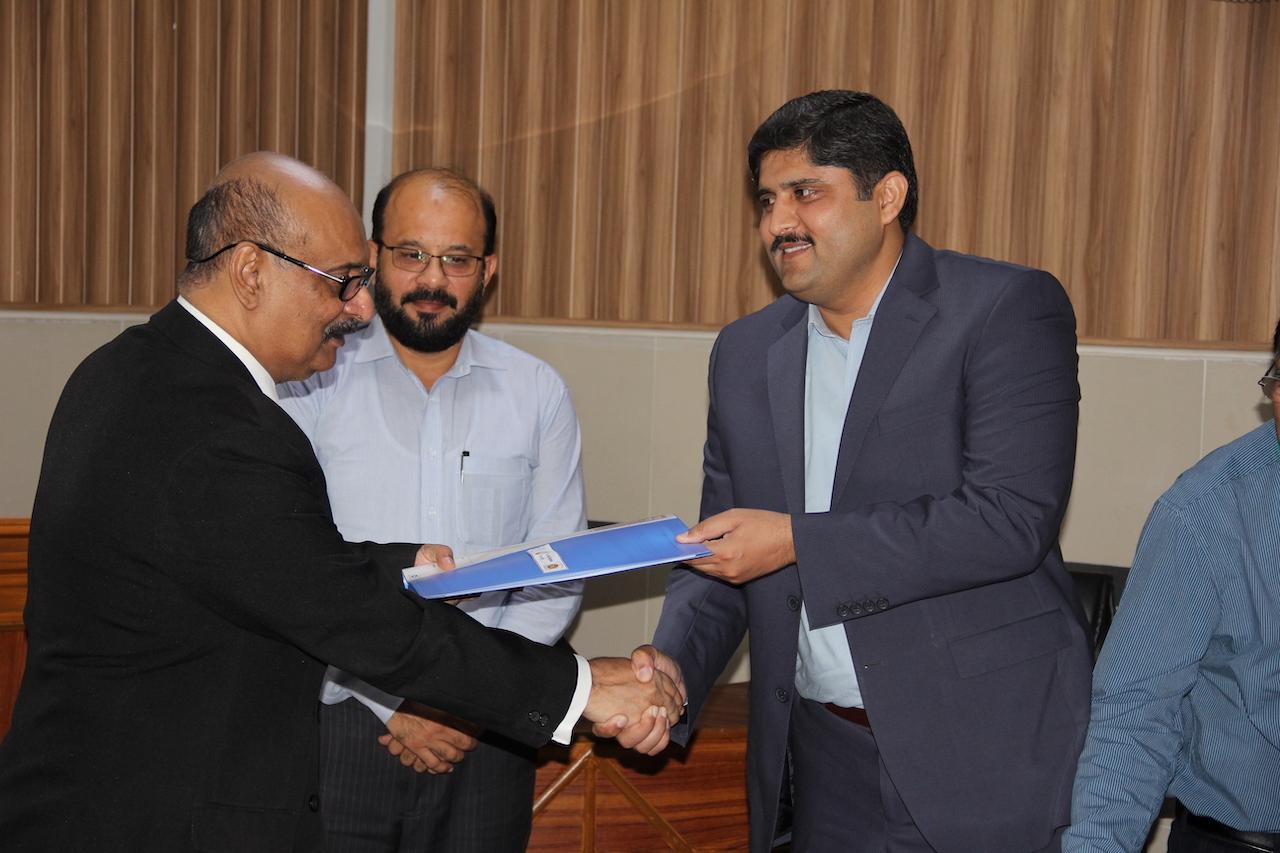

Thi s cl uster i s al so ver y sen si ti ve i n the sen se of em er gen ci es an d con fl i cts
True.W hen I joined The Fred Hollows Foundation back in 2007and if you look at those years;this region wasessentially an active war zone.The Foundation had been working in Afghanistan since 2006 from the Pakistan base W e began our work by identifying a partner in Afghanistan who we are still working with.It is a Netherlands based organization called HealthNet They had penetration on the ground Afghanisation?s
healthcare sector is actually outsourced So all health services are provided by international organizations on behalf of the government HealthNet basically covers the entire eastern side of Afghanisation which is why we have partnered with them and have included eye health in general health services
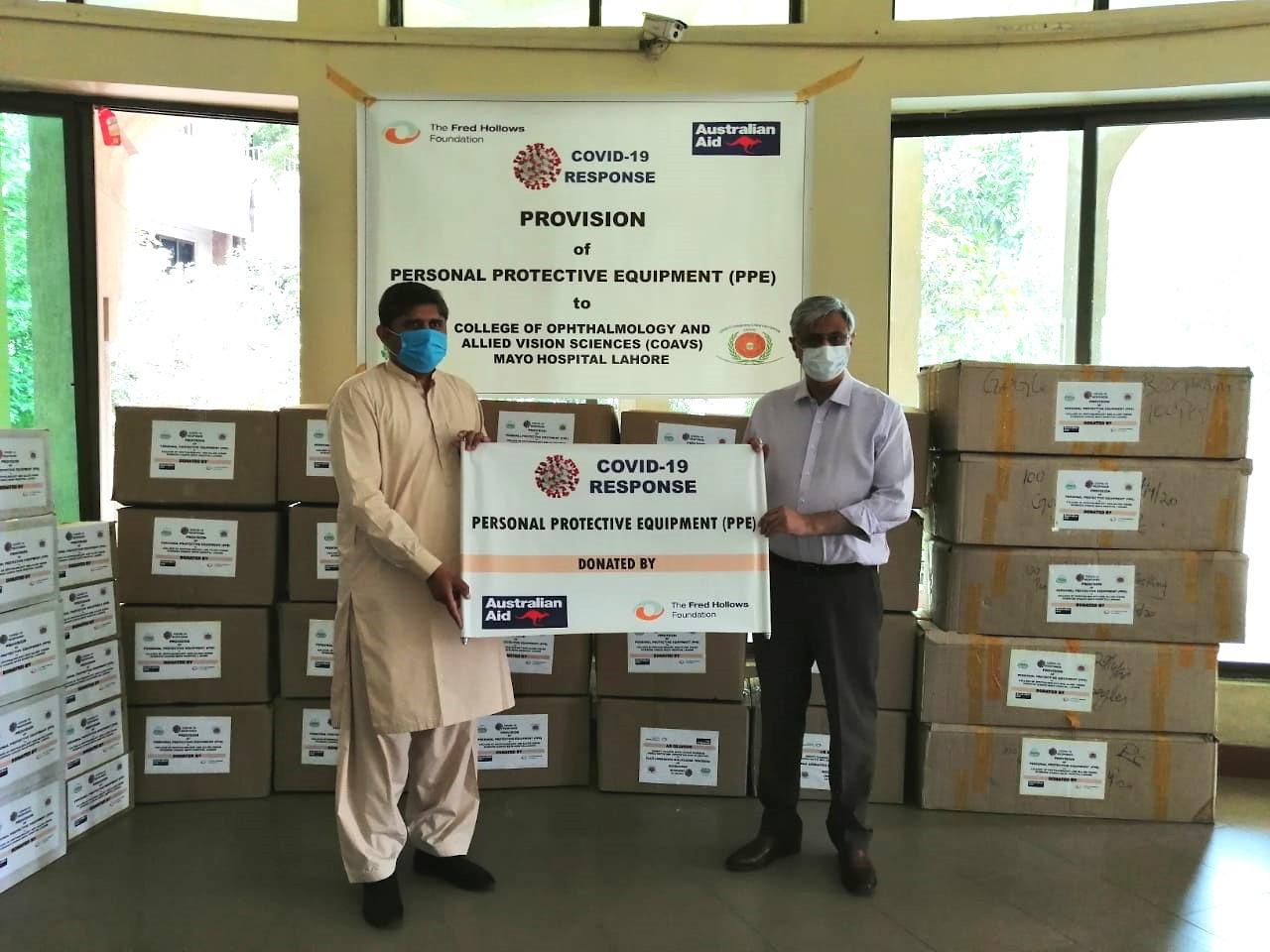
Coming back to your question, yes I agree it wasa very challenging situation in every way.W e conducted a massive capacity building initiative to train the local people so that we can rely on them to deliver eye care services without our presence on the ground.W e trained their doctors and healthcare workers W e brought and trained their optometrists in Pakistan and sent them back equipped with learnings and skills This partnership with HealthNet worked and still worksvery well by integrating eye care in the existing healthcare framework.
H ow do you m an age or str ategi ze to pr ovi de ser vi ces i n coun tr i es w her e soci al str uctur es pr even t the m ost vul n er abl e fr om accessi n g heal thcar e an d by exten si on eye car e ser vi ces?

It literally brings tears to one?s eyes that when you look at countriesravaged either by war or other forms of emergencies, women are the most vulnerable when it comes to poverty and accessto healthcare services.A
woman?s mobility is not just impacted culturally,this impact is amplified due to war and strife In addition to this,families in such conflict areasalso have low income In such families,men are culturally prioritized with women?s and children?s health going on the backburner. Initially,healthcare services were charged because they were outsourced and the government was unable to properly compensate financially This further made treatment inaccessible for women and girls because of cultural and societal norms.They were not a priority. This made it impossible for

women to get any significant eye care treatment
So when we began working in Afghanistan,we said that we will provide all services free of cost and that all procedures conducted should also be free of cost.Of course mobility was still an issue but even then the positive impact was great for women who could come in for treatment
W e also began setting up treatment base in nearby areas like Jalalabad,Kunnar etc.so that more and more women could
accessservices and treatment. W e also partnered with the governmentby setting up camps in remote areasfrom where people were unable to travel
At the moment,however,the campshave been closed down due to the change in government.But we are still working with HealthNet over there
As far as Pakistan is concerned, there are obviously many challenges.Lack of awareness is one of the biggest issues.People
through lady health workers. W hile their primary purpose is maternal and child health;now their scope has been broadened The government assignsthem to various tasks at the grassroots, such as for polio campaigns etc. So we also make use of this large network of lady health workers for eye care.The government has also integrated eye care in their course curriculum upon our request and a lot of advocacy from our end So whenever any new lady health worker is inducted,her course includes
still don? t know if vision impairment or loss is treatable or not.Accessibility is yet another huge challenge due to constraints on a woman?s mobility M ore than often, women have to be accompanied by a male family member in order to access eye treatment. Cost of surgery and finance is another barrier to treatment and eye care services.So to counter all these issues,what we have done over a period of time is to leverage the government?s framework of health services
eye care as well.W e also engage them through our own projects and programs,also providing them with training and capacity building
W e have also made sure to bring services closer to areaswhere accessibility is a major barrier. W e work on district as well as sub-district level.
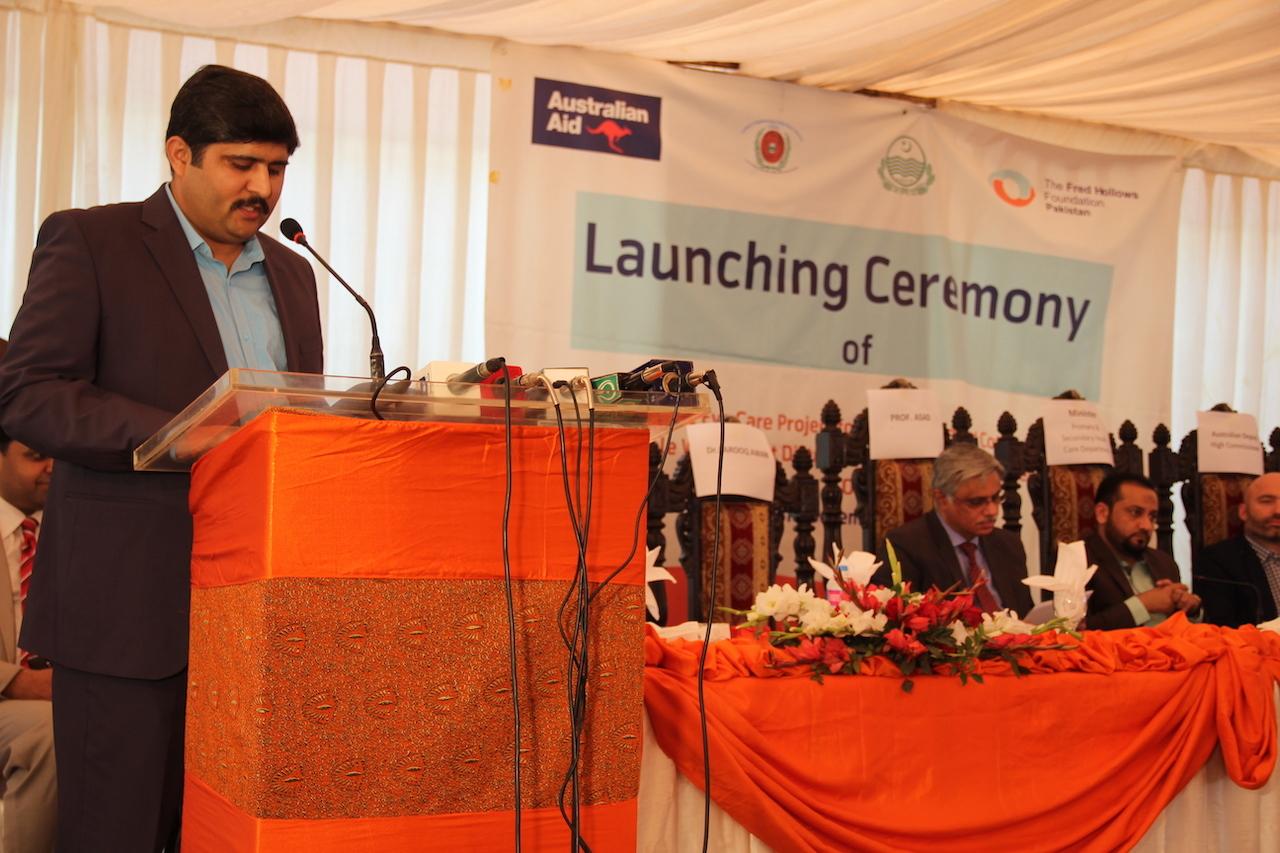

W e focus on children?s eye health by going to schools and train teachers to conduct first level of screening and then at the next level,our optometrist

conducts the second screening W e also counsel teachers on how to make sure children wear their spectacles W e also share three samples from which a child can choose from.This raises the level of acceptability in children as far as wearing glasses is concerned. This way we are directly impacting SDG 3,4,and 5 (health, quality education and gender equality respectively)
In addition to this,The Fred Hollows Foundation has assisted to the Government of Pakistan to develop a five year plan for eye care based on the recommendations of W orld Health Organization Report (2019) that talksabout Vision This plan IPEC ?Integrated People centered Eye Care ?is now formulated and we are continuously contributing to that plan

H ow does n atur al em er gen ci es l i k e the r ecen t fl oods i n Pak i stan i m pact pr ogr am s?
W e have an inherited challenge, which is whenever an emergency occurs ?eye care is de prioritized This happened during the pandemic and as a result the backlog increased massively.The resources were of course redirected to cope with the emergency.People?smobility was again impacted Similar is the case with the recent floods Obviously,the biggest challenge is to respond to the emergency to save human life;with the most vulnerable being impacted the most.
But also because of the floods, there is a huge number of eye infections on the rise Sindh is hugely experiencing this and clinics and healthcare outlets are gravely impacted by floods.W e are working to see how we can support to health serviceson the ground But of course the gains
we made over the past many years,have been lost due to the emergency and we are now working towards achieving them

An y l ast w or ds?
The Fred Hollows Foundation is a beacon of hope for eye health and the development sector Our strategy has always focused on providing access to services, equipment and creating programs organically to make sure they are sustainable.It?s been 30 years that we have been carrying the light and vision of Professor Hollows and have impacted livesof millions,giving them hope and confidence to lead a better life.So this is a huge privilege for not just me but for all of us.
We counsel teacher s on how to make sur e childr en wear their spectacles. and shar e thr ee samples fr om which a child can choose fr om. This r aises the level of acceptability in childr en as far as wear ing glasses is concer ned. This way we ar e dir ectly impacting SDG 3, 4, and 5 (health, quality education and gender equality r espectively).



Tel l us about your sel f an d your w or k focusi n g devel opm en t, heal th an d eye car e.

I hold a master's in business administration and a diploma in project management I worked for ten years in Al Quds University in student affairs and was handling 11,000 students. After that I worked for five years in planning and development, then I started working in the eye hospital,first in fund raising then I became in charge of projects I joined the hospital in M arch 2020 when Covid 19 had started to spread.I started in fundraising and then became responsible for two projects of the hospital in Gaza and the W est Bank
I mostly work in the office,but also conduct field visits when I need to assesseye health projects.However,that is difficult in Gaza due to the situation,which hasn? t allowed me to visit the project yet In the W est Bank on the other hand,I can visit the project to meet with organizationsand the schools with which we work.Therefore,I can describe my work as both in an office job and in the field.
I'm a mother of a 13 years old boy I spend my time helping him in his education and extracurricular activities. In fact,I?m not specialised in eye care but in project management I like to volunteer,and that?s why I did volunteer on different projectsthat happened to be personal initiatives For instance, I used to help orphans and older people.W hen I started my recent job,I felt that my volunteer work,which I used to undertake irregularly and informally,hasbecome formal since I started working with St John Hospital and handling bigger funds.Thanks to the outreach team,we were able to accessareas that I wasunable to
access in the past,including displaced villages,where life differs significantly than that in the city
Thi s spi r i t of hum an i tar i an i sm i s al so a cor e vi si on of the Fr ed H ol l ow s Foun dati on . Tel l us about the pr ojects you ar e w or k i n g on
I started managing two projects in the W est Bank and Gaza,in January and February.There,I began to deal with people from The Fred Hollows Foundation I met Ghana Bola from the Global Programs,and through our conversations I got to learn more and more about the organisation.

W hat ar e som e of the bar r i er s as far as access to eye heal th i n Pal esti n e i s con cer n ed?
Many Palestinianslive below thepoverty line, which meansmany peoplecan? t afford healthcareservices includingeyecare. When I visit these areas,I noticethat peopledon? t havethe basicnecessitiesof life, which arealways availablefor us,such as electricity and water. It ishard tobelieve theselifeconditions areexistingin 2022.
M any Palestinians live below the poverty line,which means many people can? t afford healthcare services including eyecare W hen I visit these areas,I notice that people don? t have the basic necessitiesof life,which are always available for us,such as electricity and water.It is hard to believe these life conditions are existing in 2022 Some people can? t access treatments of preventable diseases because there is no clinic that offers such services.For example,we see diabetic patients with a very high blood sugar rate,but have never had their eyes checked.Poverty and restricted mobility,in addition to the economic situation,prevent these people from accessing these simple services.All of these obstacles represent challenges for me because I can? t imagine that there are people who can? t accesssuch services Additionally,the siege in Gaza denies entry of medical equipment necessary to perform simple operations.These are the obstacles we see on the ground.
Reaching the largest proportion of marginalised people whether in the W est Bank or In Gaza,as well asin Jerusalem Additionally,there were Covid 19 outbreaks in several health centres,including the eye hospital in the W est Bank,which was subsequently closed and all patientswere transferred to our hospital for treatment W e saved many people who would?ve otherwise lost their eyesight Furthermore,we concentrate at the moment on orphanages.W e perform regular check ups on the children as part of our regular check-up programme that we organise every six months W e try to reach as many marginalised people as possible
In si tuati on s of cr i ses as w el l as affor dabi l i ty,how do
or gan i zati on s an d hospi tal s m an age?
Relying on our donors,we try as we might to provide the necessary funds so the patients don? t have to bear any expenses in light of their current economic situation W e aim that patients pay as little as possible or even nothing W e don? t want people to lose their sight because they can? t afford treatment.
As I said,the major eye hospital in Ramallah wasclosed and turned into a Covid-19 quarantine and treatment centre Subsequently,many patients who were being treated there were no longer able to receive the necessary health care.Therefore,the fact that St. John Hospital wasthere and able to remain open during these circumstances,helped many people to save their eyesight and were not affected by the lockdown
During the first period of the lockdown,the situation was extremely difficult due to restrictions on movement and other lockdown measures such as roadblocks Therefore,many people were facing difficultiesto access treatment.
W e were working in shits,i.e.the whole team was never working all together at the same time W e also observed safety measures such as keeping a physical distance,wearing masks and disinfecting,in order to reduce contact.
The situation improved and we don? t hear here about corona,as if the wave has vanished Thanks God
W hat w oul d you l i k e to say about the Foun dati on , w hi ch i s cel ebr ati n g 30 year s of w or k on the gr oun d?

I would like to thank The Fred Hollows Foundation and its

people for their support of marginalised areassuch as Pakistan and Palestine They support people who are unable to care for their health due to poverty The Fred Hollows Foundation help these groups of people save their vision,which is very important for us as humans. The blind become a burden for their families and children Their mental health deteriorates, affecting their economic situation as well The foundation also helps people to be independent financially,so they can provide for their families.
I believe that vision and eye care is not prioritised enough in termsof awareness and covering the costs of treatment W e can raise awareness among children through outreach projects,so we can follow up on them at an early age and make sure they don? t face problems as they grow up I believe that we can organise projectsthat inspect their vision, in order to avoid any problems in the future.Unfortunately,we are a country that relies on external support and without it many projectswill shut down.

I can see myself taking charge of more projects that can be implement if we had the funds W e do our best to provide comprehensive servicesto all of those who need it.M y dream is to provide as many services as possible for children I would like to see children receiving the health care they need without any financial,social or even geographical obstacles I would love to see this happening in the coming years.




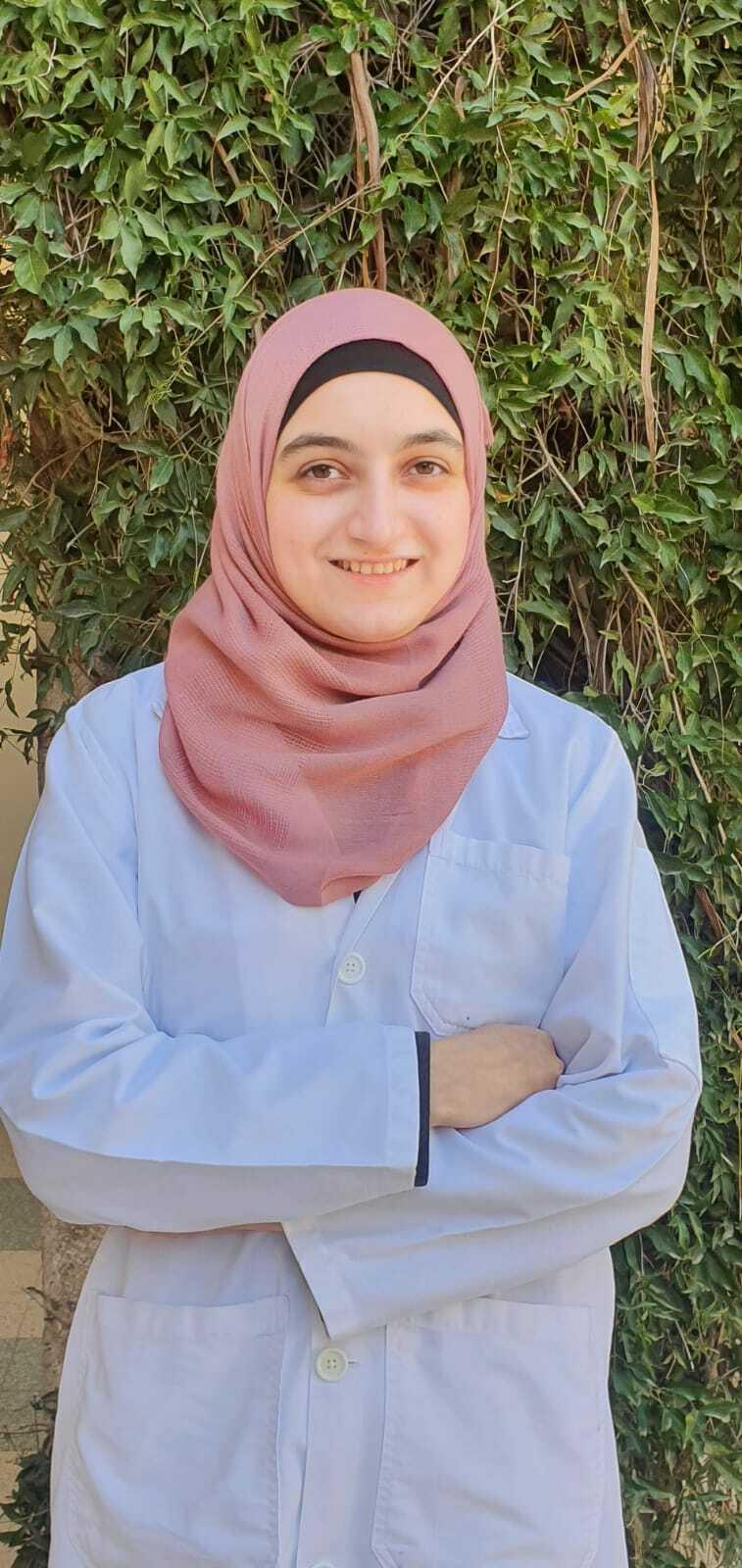
Tel l us about your sel f an d your jour n ey as a doctor ? W hat w as the aspi r ati on behi n d choosi n g to be a m edi cal pr acti ti on er ?
I was always the top of my class throughout school?s years.I graduated school and came in first across the whole of Palestine,and I wasthe second best graduate of the medicine college at university.I made all this effort and hard work in order to achieve my dream, which is to work asa doctor at St. John Eye Hospital Thanks God I realised it.I soon become an ophthalmologist,which was my ambition all along This was made possible thanks to the Fred Hollows Foundation that supported me and gave the opportunity to work in this place
In my fifth year at medicine school,we had to take an English language course The professor showed us a video about blindnessin Africa and I was shocked to hear about the termavoidable blindness.I always thought that a blind person is simply blind.I was very surprised when I learned that the causes for blindness are so simple,and that all you need is a simple operation,such asa cataract operation,and a person will have a new life instead of losing one?s vision.W hen we,as doctors,operate on cataract patients,we give them new lives, so they can care for their familiesand communicate with them I wasshocked to hear that and felt becoming an eye surgeon is a tremendous opportunity so that one day I can focuson the main cause of blindnessaround the world That wasmy dream.Hence,I worked hard to pursue this specialisation,which only very few can take every year.

Other than medicine,I'm the only daughter in my family,so I'm somewhat an emotional person I was raised by people who loved helping others,which also made me fond of ophthalmology I consider the gift of vision to be the greatest.I also like handicrafts a lot, especially embroidery W hen I operate on patients I remember how hard it wasfor me to learn embroidery.But with practice, you get used to it and it becomes easier
I was born in Tulkarm,Palestine, where I lived until I was accepted at the eye hospital,so I moved out to pursue my specialisation asan ophthalmologist.

W e k n ow the chal l en ges peopl e face i n Pal esti n e, tel l us how you w or k an d go about especi al l y bei n g the on l y daughter i n your fam i l y?
I live in Ramallah,near Jerusalem,because residing in the latter is very difficult Hence, I live in the closest city in the W est Bank I have to cross checkpoints every day in order to get to work.
It takes me two hours back and forth.
Since I'm my family?s only daughter,the decision to move out was very tough for them.But because they know how hard I worked to realise what I want, they always supported my decisions I alwayswanted to become an ophthalmologist and I wasn? t going to give up until I was in.W hen I got accepted,I was very happy.This was great news not only for me but also for my family.I can? t forget that day, with all itsdetails As I said,I was the country?s top graduate in high school.But my happiness when I was accepted for ophthalmology was bigger than
that when I came in first in school.M y family knew how important thiswas for me and they were supportive This was no doubt difficult since I only visit them twice a month.Today I'm going to visit them For me this is a journey that started years ago and hasa human goal Each person hasto go through their own life journey.
Tel l us about your w or k an d your r esi den cy.
I?m in the third year of my residency programme,which attracts medicine graduates who want to become ophthalmologists W e begin with general knowledge about eye diseases,then we start our surgery training in the second year.Today,I wasin one of the surgery theatres and operated on two cataract patients I'm very grateful for this opportunity Additionally,the hospital hasan outreach team that visitsmarginalised villages on a daily basis to provide primary health care services. W e examine patientsand transfer some of them to hospitals.
H ow di d you en coun ter the Fr ed H ol l ow s Foun dati on ?
First when I joined the hospital,I met The Fred Hollows Foundation?s representative, Ghana Bola,through whom I learned that the Fred Hollows Foundation is my sponsor. That?show I joined the programme M y training includes lectures,surgical operations and a theoretical part.Thisprogramme allowed me to specialise in ophthalmology at the oldest eye hospital in Palestine.This opportunity spared me the trouble of traveling abroad in order to pursue a similar opportunity and obtain the same quality of education.Jerusalem's
eye hospital offers currently numerous sub specialisations that are not available elsewhere in the W est Bank For instance, there are specialists in eye pressure,paediatricseye care, intraocular Infections,eye nerves and other disciplines that are only available in the eye hospital in Jerusalem Since this is such a time honoured Hospital,I think it deserves the support that allows Palestinians an opportunity to study in it.
I really feel grateful for joining this programme that receives such a great support

W hat ar e you pl an n i n g to pur sue, an y speci al i zati on s that you ar e i n ter ested i n ?
I would like to specialise in retinal diseases because current statistics indicates that cataract and diabetic retinopathy are the leading causesfor vision loss Therefore,I want to target avoidable blindness and treat it in Palestine M y specialisation in retinal diseases will allow me to communicate with diabetic patients and be in charge of their treatment and follow up.At the same time,I will be able to operate on cataract patients.So if I had the opportunity,I would like to pursue this sub specialisation.
W hat n eeds to be don e to i m pr ove eye car e ser vi ces?
According to my knowledge and based on statistics,cataract is the leading cause of blindness and 80%of the cases can be treated and avoided W e have around 130,000 people with different degreesof vision impairments People with disabilities are three times more likely to have an eye condition compared to others.This wasan important piece of information because the outreach programme,where I also work,

targets thisgroup of people and provides them with services. This gives me the opportunity to contribute in order to reduce these odds.I was also shocked, yet encouraged to develop myself,when I learned that the vision of 50 percent of the patientswho were treated for cataract at our hospital over the years waswell improved,while the vision of 25 percent deteriorated in spite of the


operation.This means that we need to invest more in surgical talents across Palestine and train newcomers and those who are already in fellowship programmes,whether at the eye hospital or by sending them abroad.This will afford us better surgical talents and allows us to reduce the rates of thisdisease The 50 percent rate of improvement is not enough when compared to the 90 percent rate across other countries,hence the need to improve This encourages me to
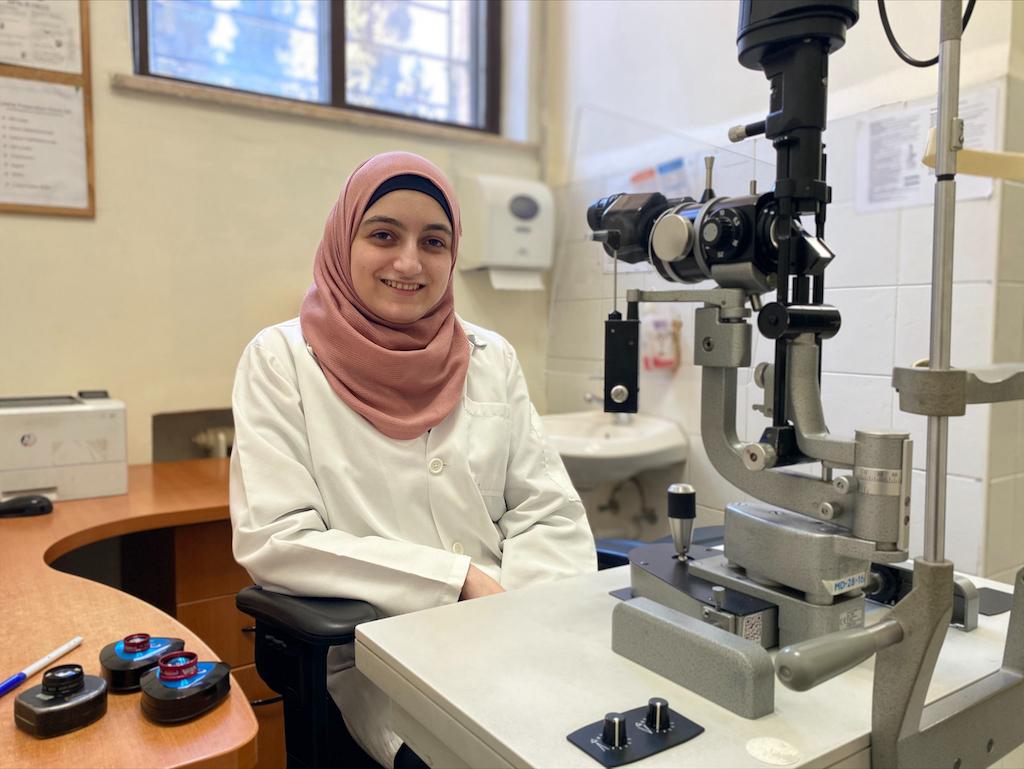
work harder in order to provide each patient with a satisfying results after the operation. The majority of people are unable to afford this treatment and the government support doesn? t cover all expenses.Some people receive free of charge treatments paid by the funds this hospital receives.W e have a hospital that doesn? t turn back any patient because of their financial situation.So the available funds are what defines our capabilities to operate on patients.
W e see on daily basis patients who are unable to afford simple and routine check-ups and tests. Therefore,we transfer them to the social affairs department where they can receive the necessary support if the funds were available.Therefore,funds are essential for our services to continue and reach the whole community.
W hat ar e som e of the m ost
cr i ti cal chal l en ges as far as vi si on i m pai r m en t i s con cer n ed?
Vision problems that require corrective glasses are the most dominant problems,especially among children,while diabetic retinopathy and cataract are the main problems for the elderly These are the most common casesin the hospital;they account for 80%to 90%of the patients I see every day.
although there is no clear and real treatment for this disease yet.M ost of the patients are completely blind This pushes us to support them and follow up on them regularly.It encourages us to pursue a cure for thisdisease.
I would like to thank them for giving me an opportunity to learn and I call upon them to keep giving Our society needs
becausewedeal with the greatest gift ahuman can have;thegift of vision.Themost touchingstoriesI encounter areduringtheoutreach programme, when I visit villagesand seedifficult casesamongolder people whoareneglected and marginalised If it weren? t for our visits, they wouldn? t haveheard about their own health issues.
Humanitarian storiesareabundant

Humanitarian storiesare abundant because we deal with the greatest gift a human can have;the gift of vision.The most touching stories I encounter are during the outreach programme,when I visit villages and see difficult cases among older people who are neglected and marginalised If it weren? t for our visits,they wouldn? t have heard about their own health issues Once I examined a young child who had retinal detachment.It seemed that she had had it for a while and nobody had noticed.It was painful for me to know that such a young child in the beginning of her life will lose her vision.
Hereditary retinal diseases are very upsetting aswell.They are very common here due to consanguineous marriages that still exist and make these diseases so common W e have a weekly clinic for these patients,
trained people who can perform major surgeries in order to improve our healthcare services.So I call upon them to continue to support this programme,so we,as doctors, can have a chance to pursue sub specialties beyond the regular ophthalmology.The current global trend is to pursue sub specialties that are very rare here in Palestine.I would like to go on with my education journey,specifically to pursue a sub-specialisation that takes a year or two to completed following my fellowship programme There won? t be any financial burden compared to the result.The services that I could be able to provide to people would be priceless.I hope they continue their support after the fellowship programme at the hospital. Thisinterview hasbeen lightly edited for cla
 Name:Zehni Chang
Location:Pakistan Photoby Lannon Harley
Name:Zehni Chang
Location:Pakistan Photoby Lannon Harley


Forty five year old Zehni Chang had been blinded by bilateral cataracts for seven years Zehni and her family are farmers who earn 25 000 rupees a year (approximately $460 AUD).
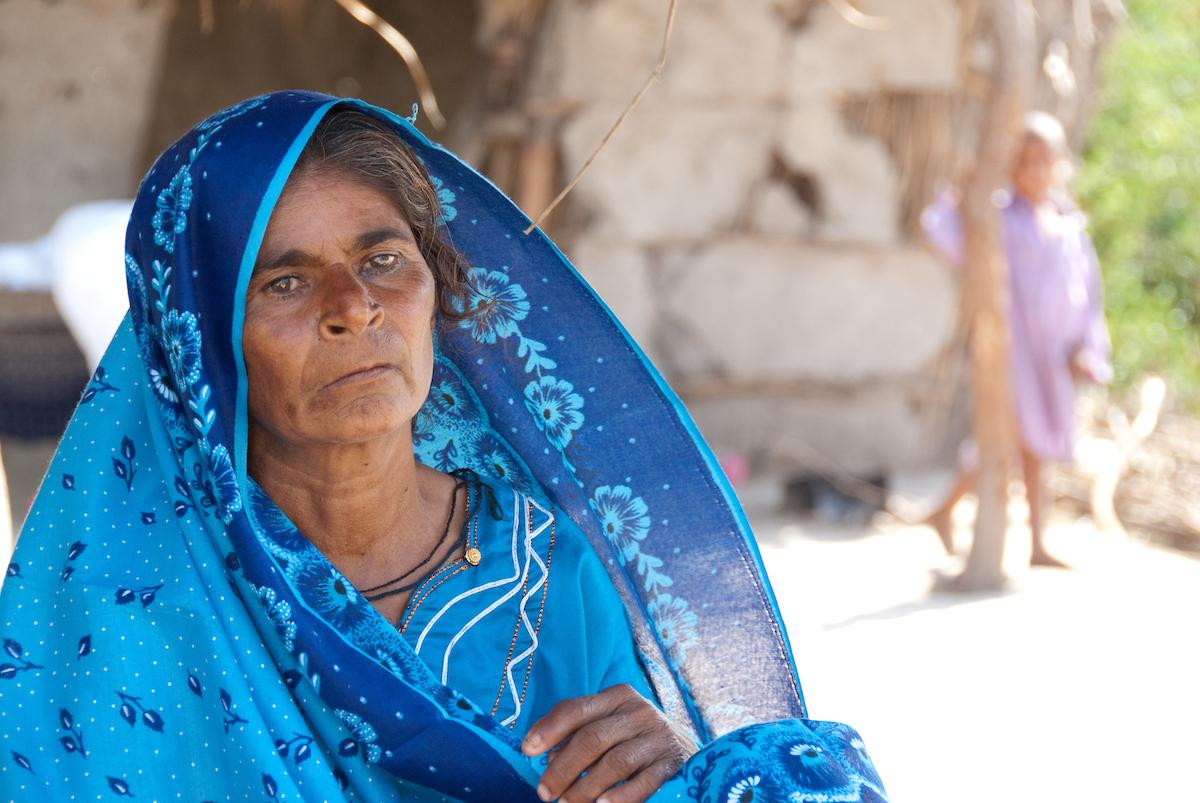
Zehni remembers all the activities that she used to perform before blindness had set in such as going to the farm,looking after cattle and seeing her grandchildren.She does not know anyone else who is blind and does not know anything about cataract surgery and what it involvesbut has a firm belief that god will ensure she sees again.
Zehni had her sight in her left eye restored at the annual eye camp help at the Badin District Hospital.The eye camp wasfunded by The Fred HollowsFoundation and paid for the surgeries for all patients Zehni lives with her daughter (Hassina) and son in law (Ghulam M ohammed).
